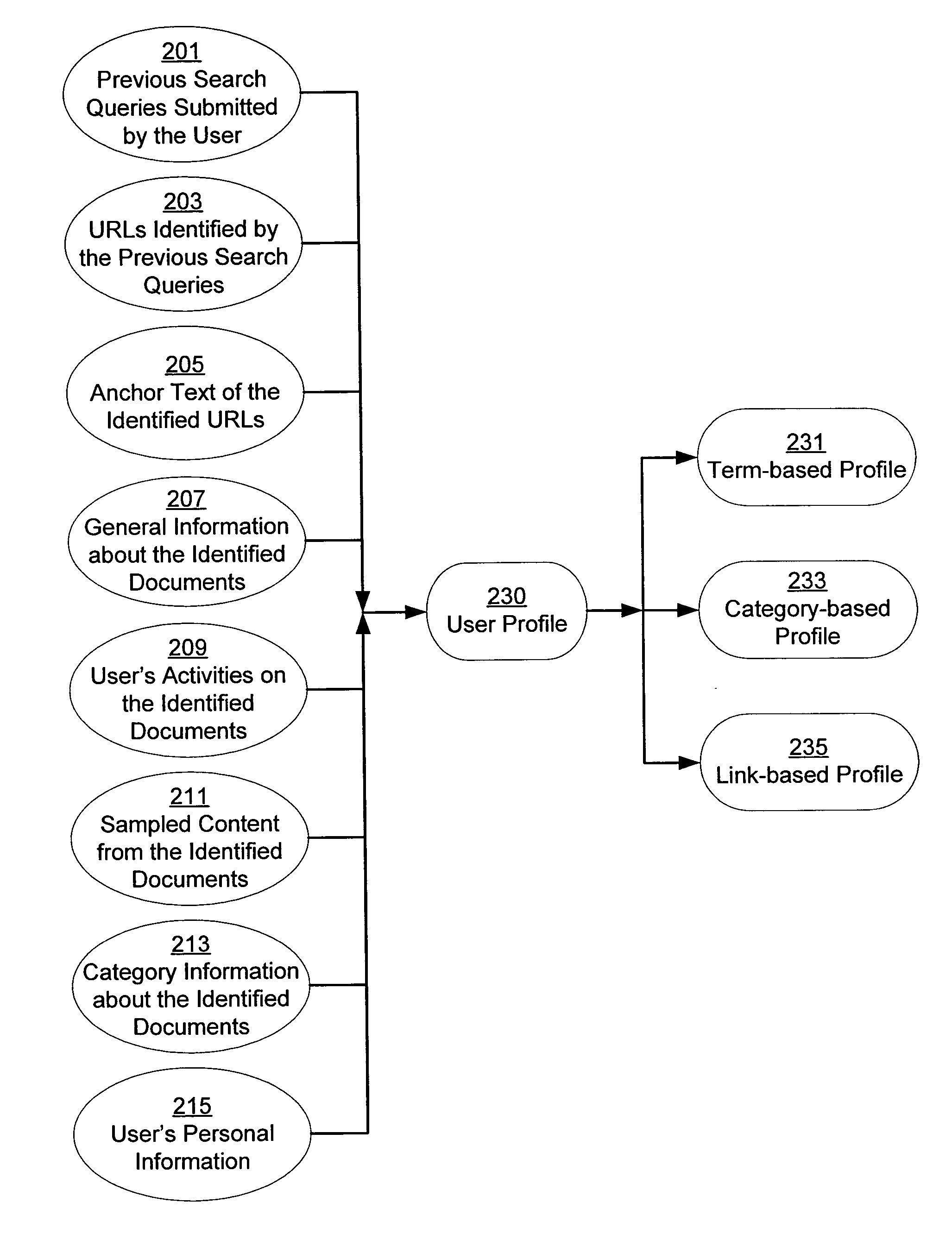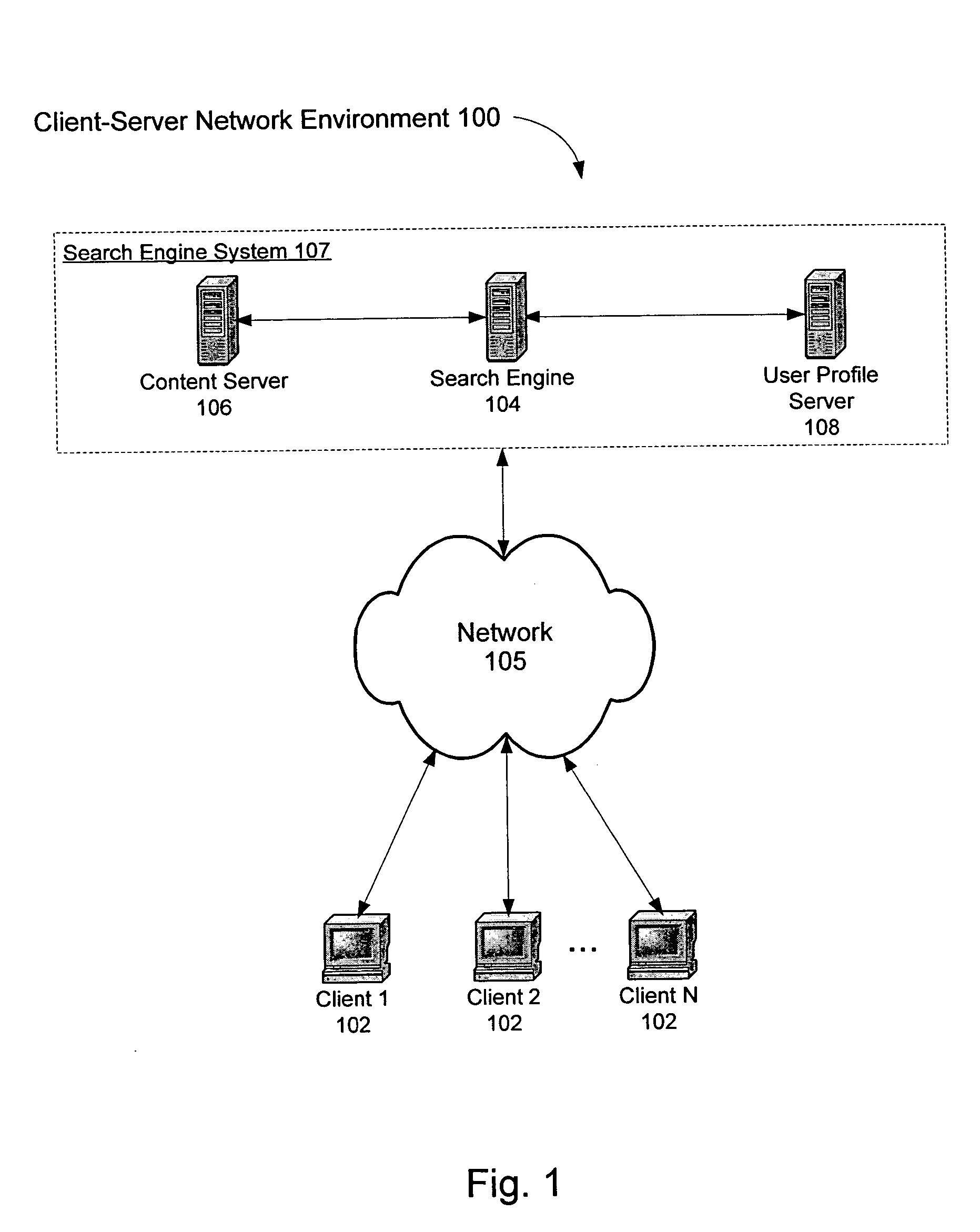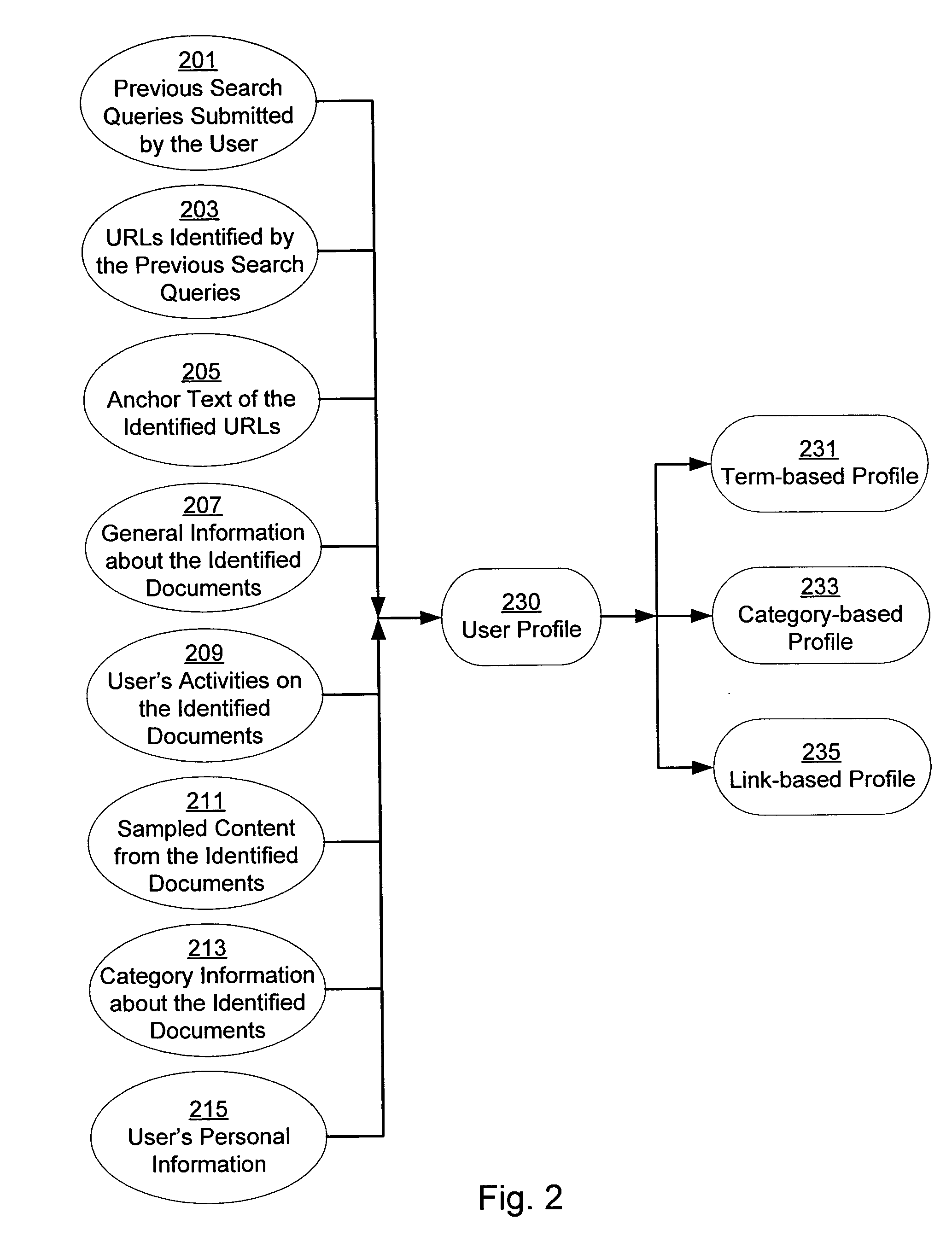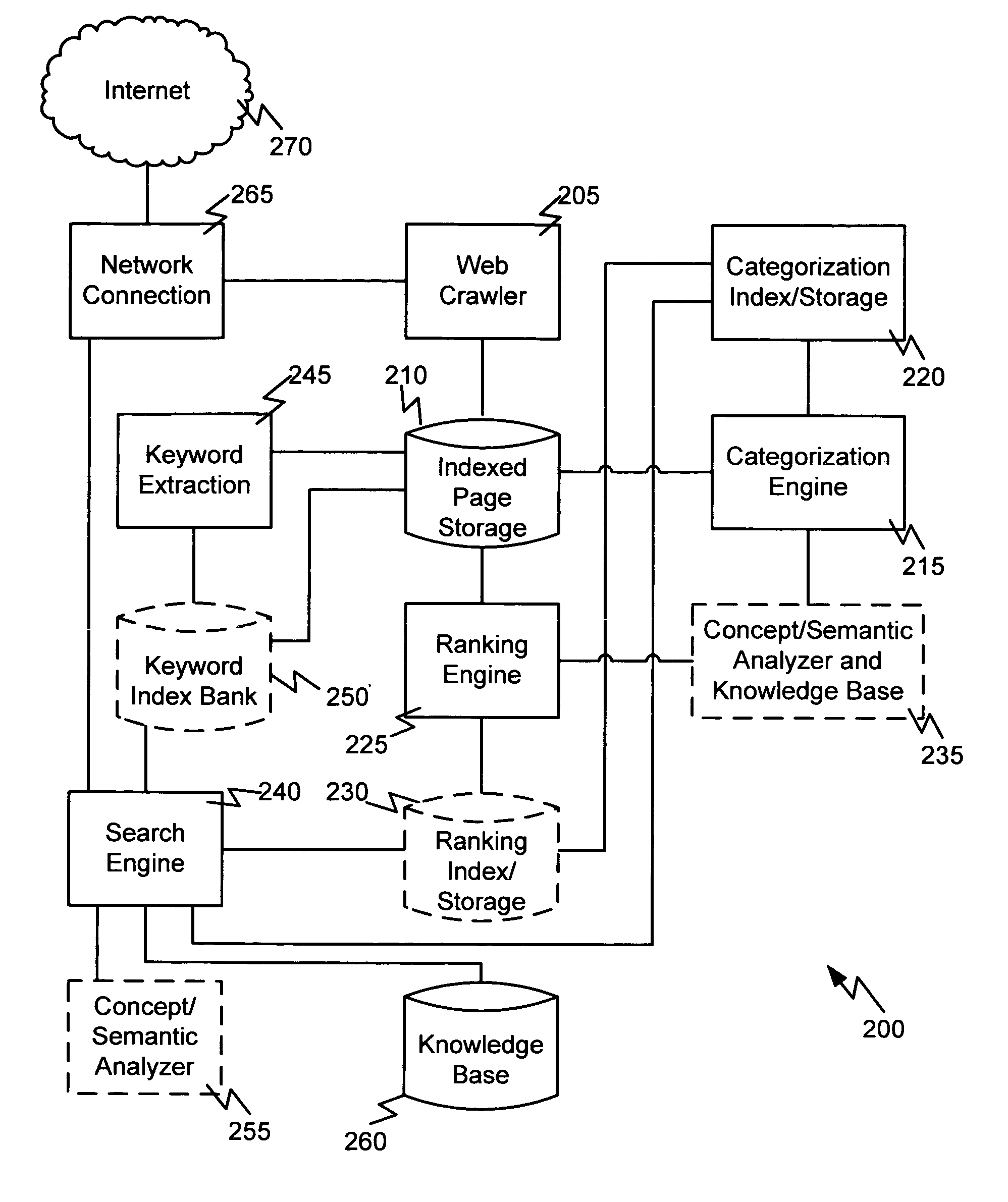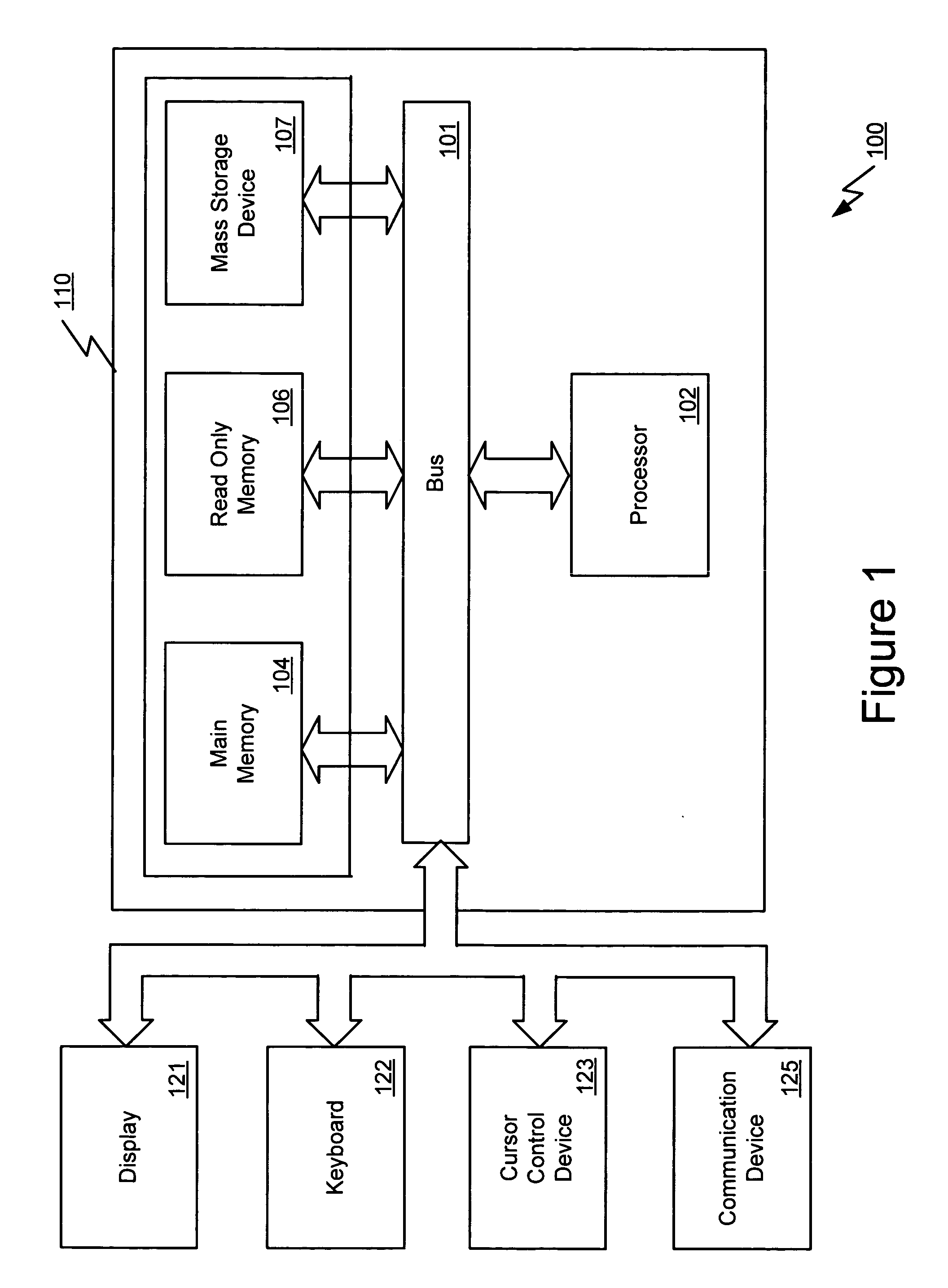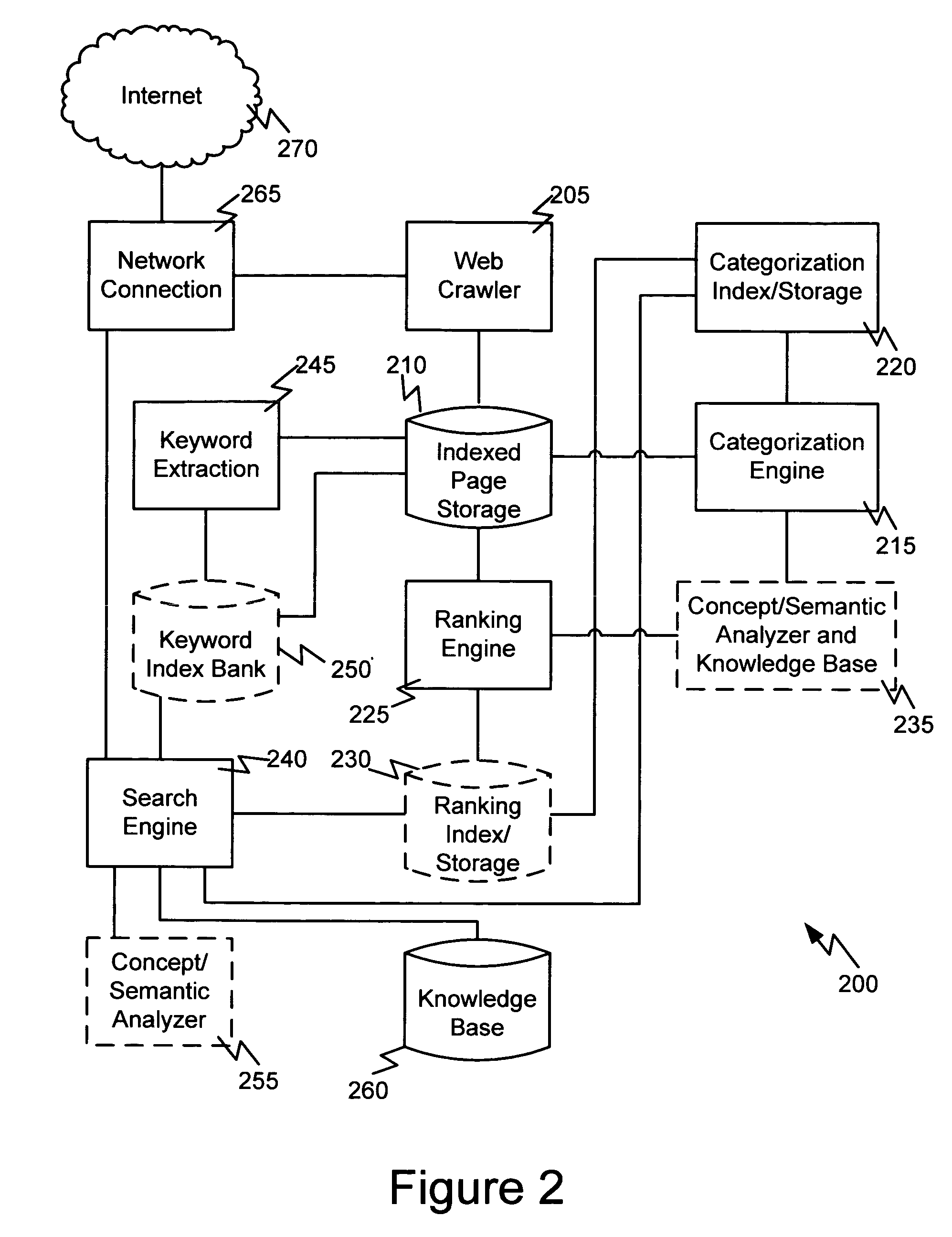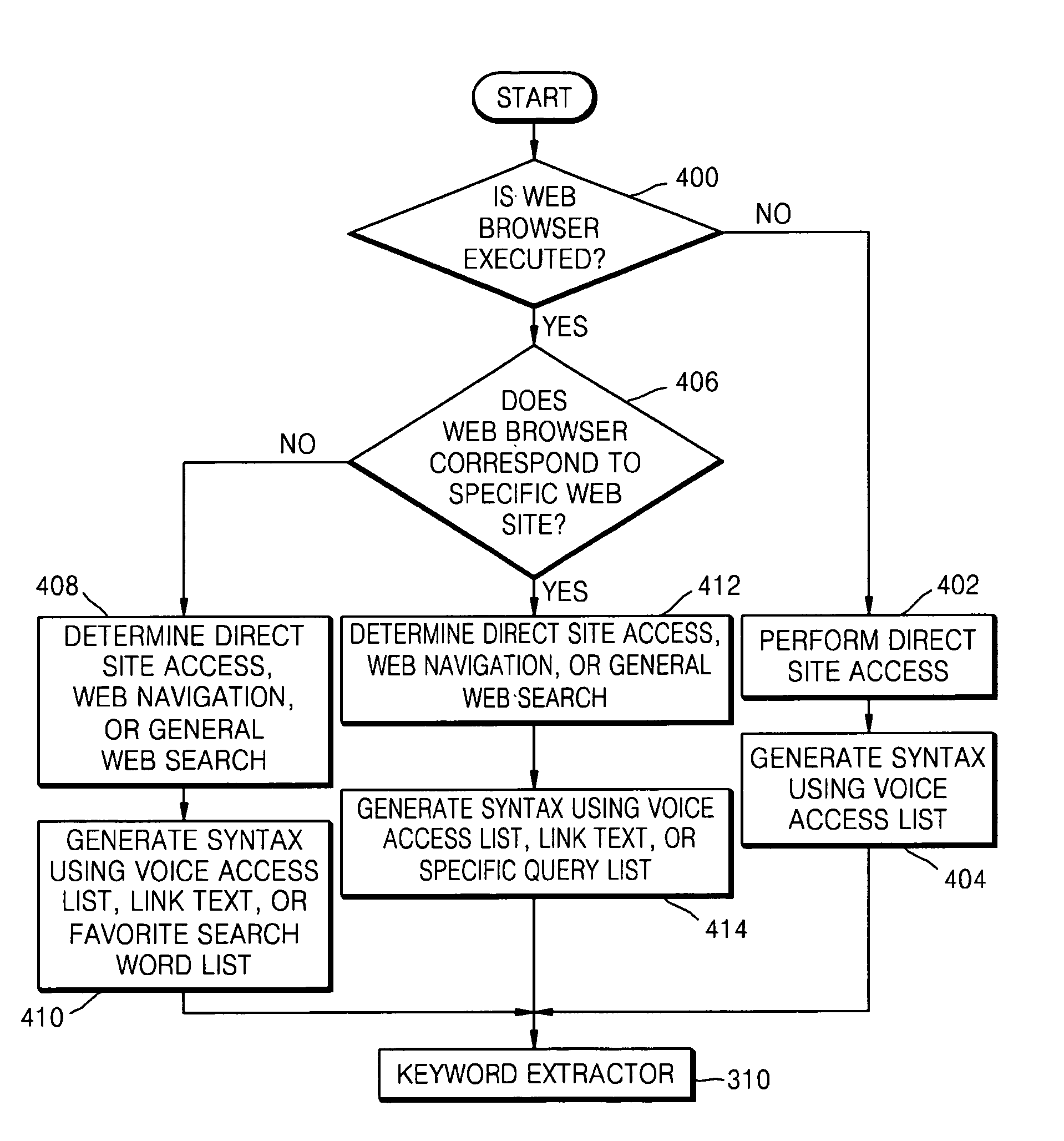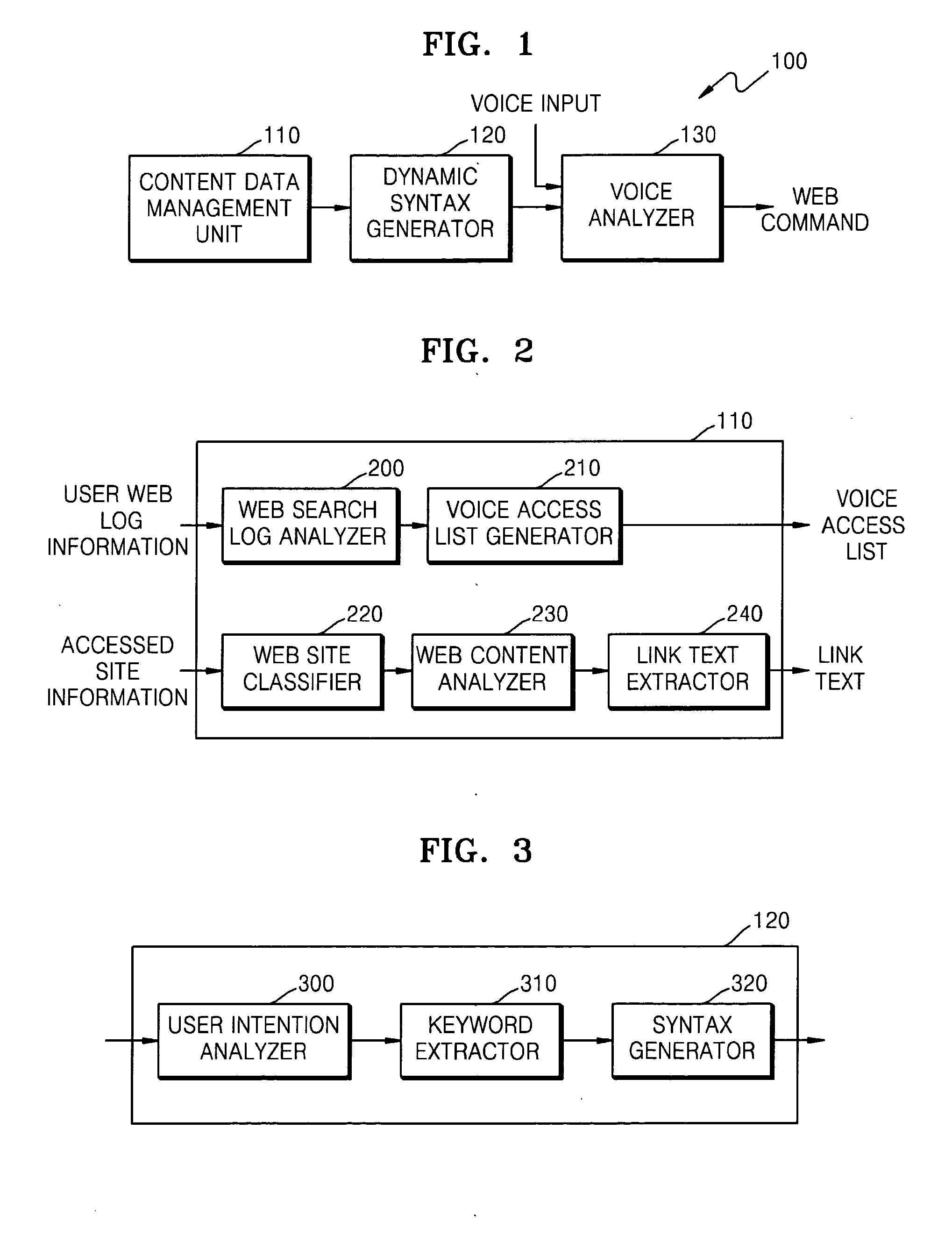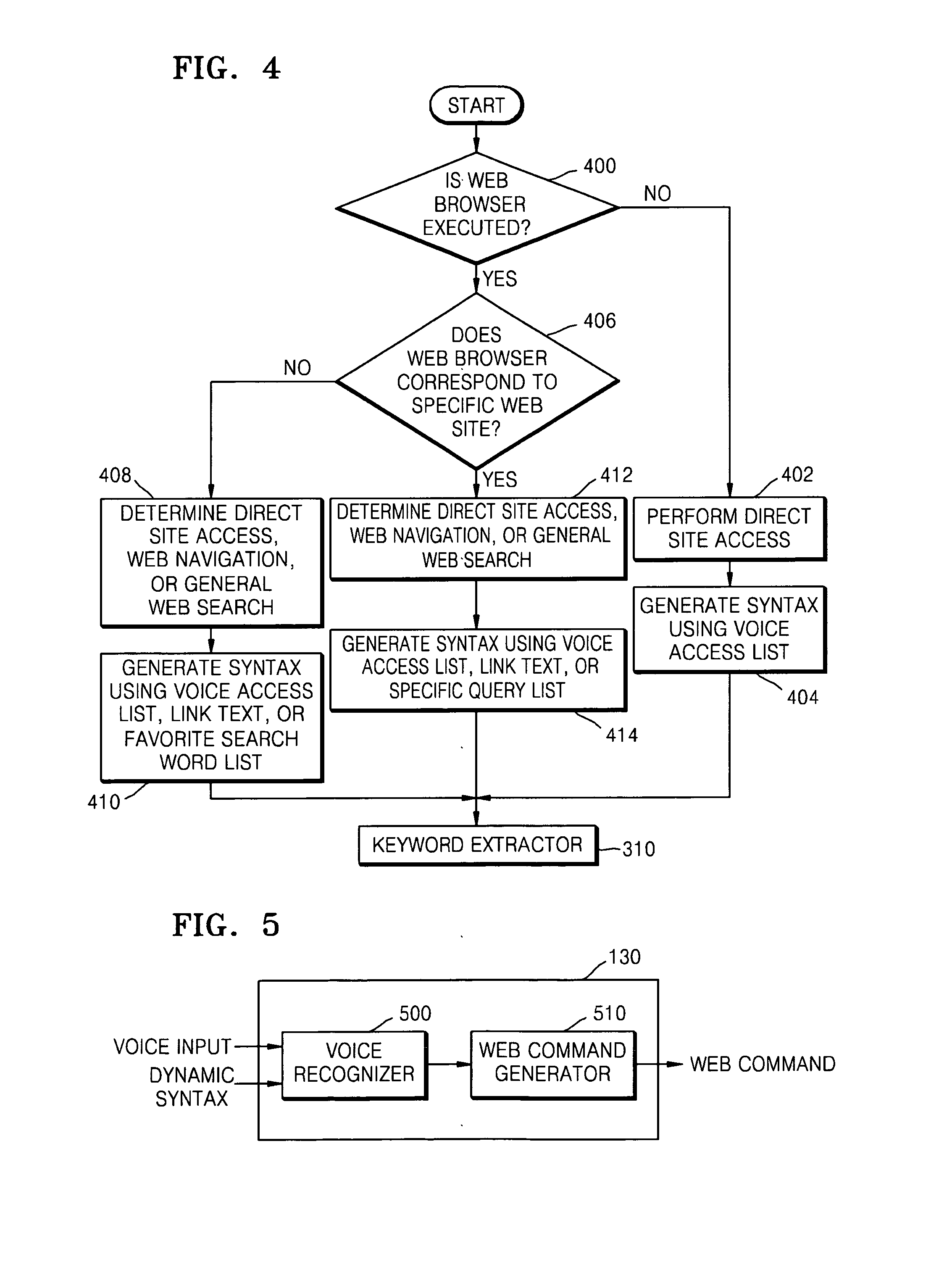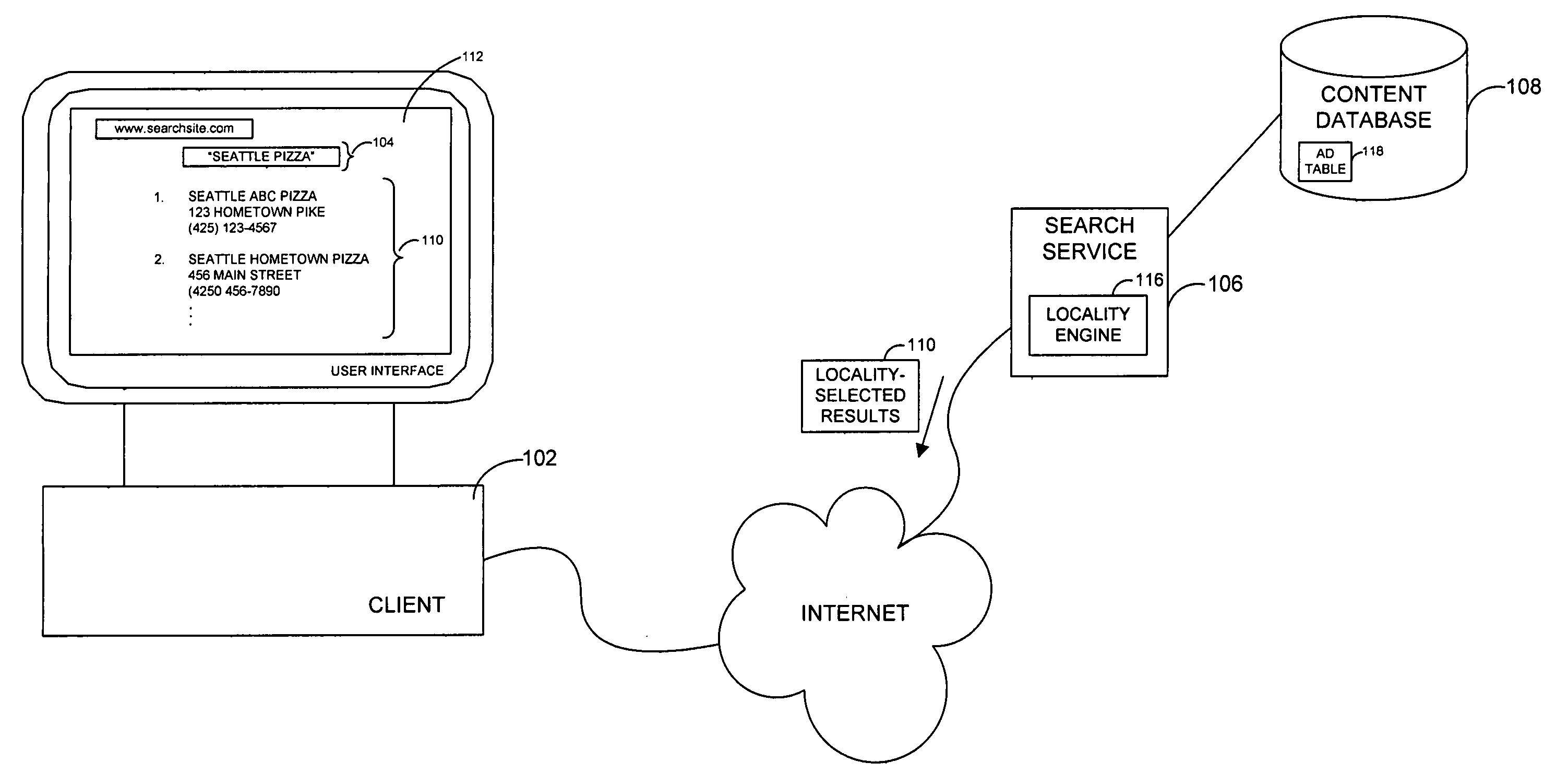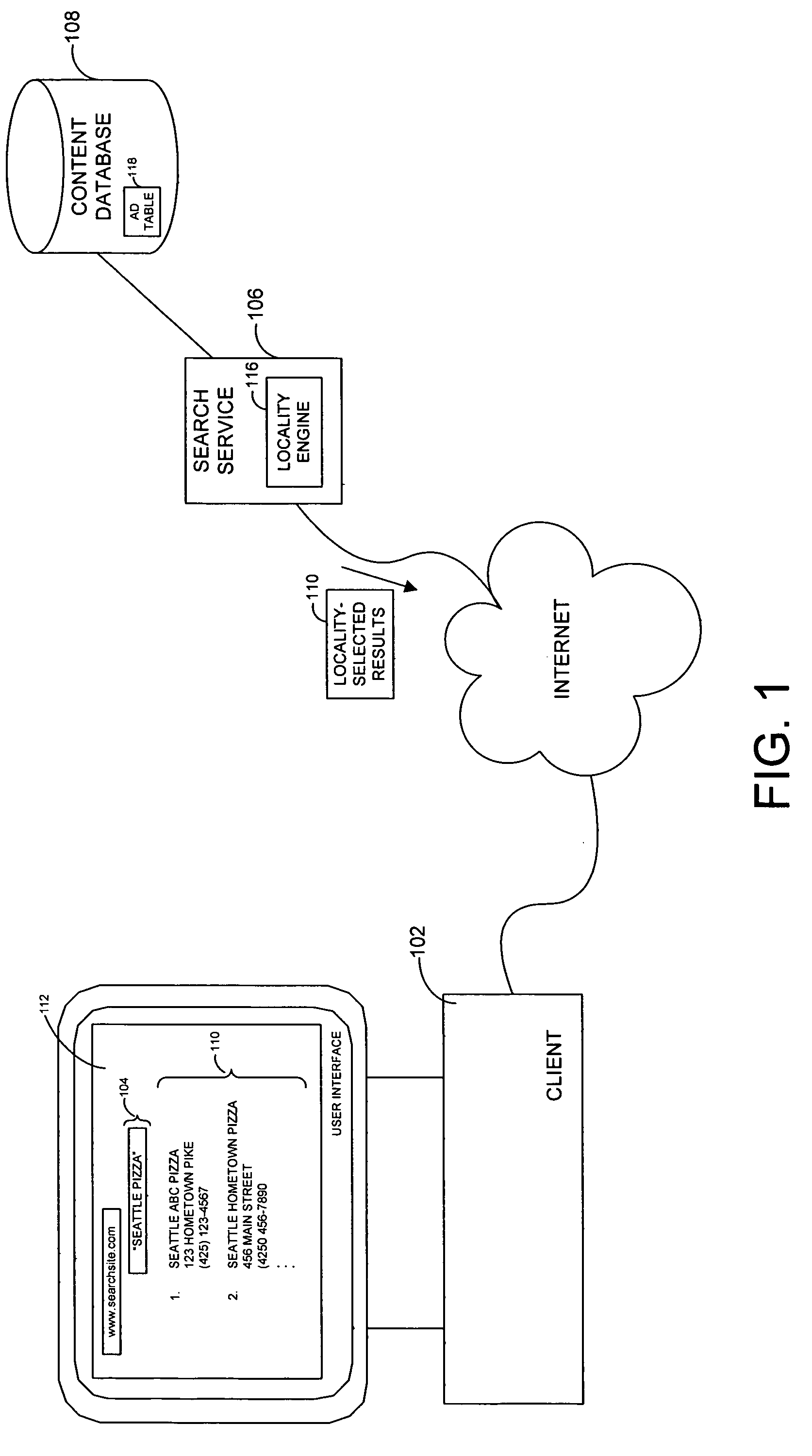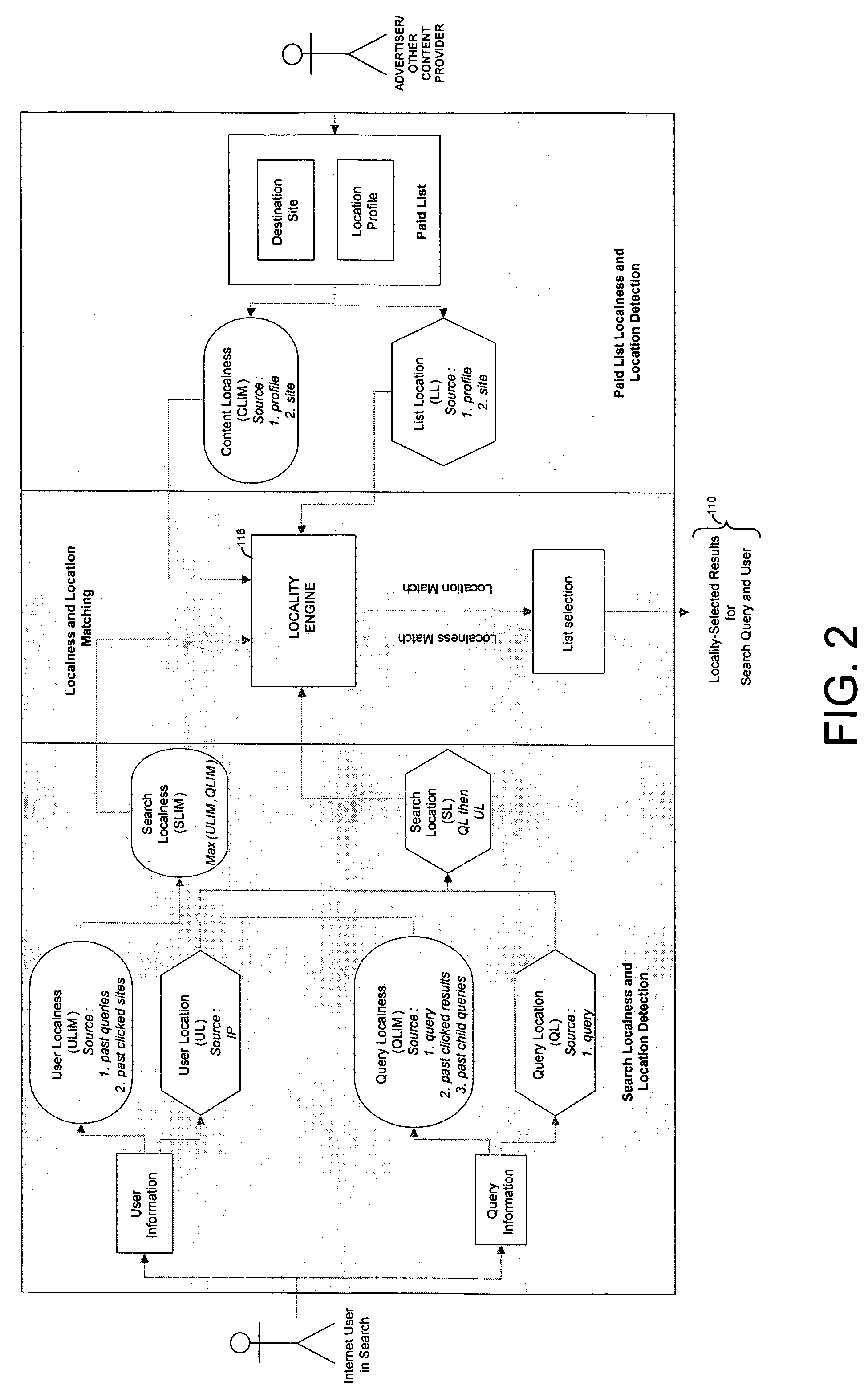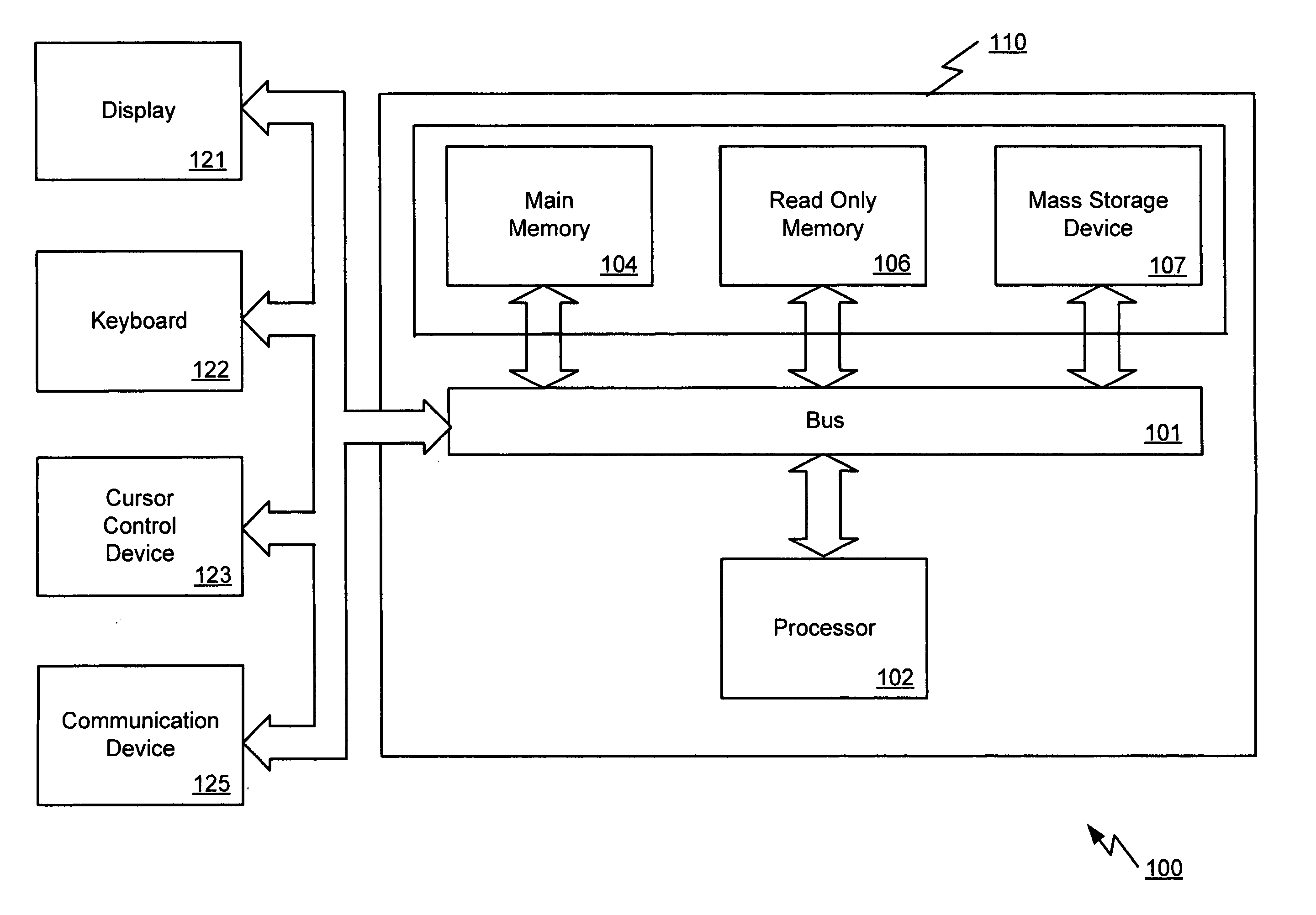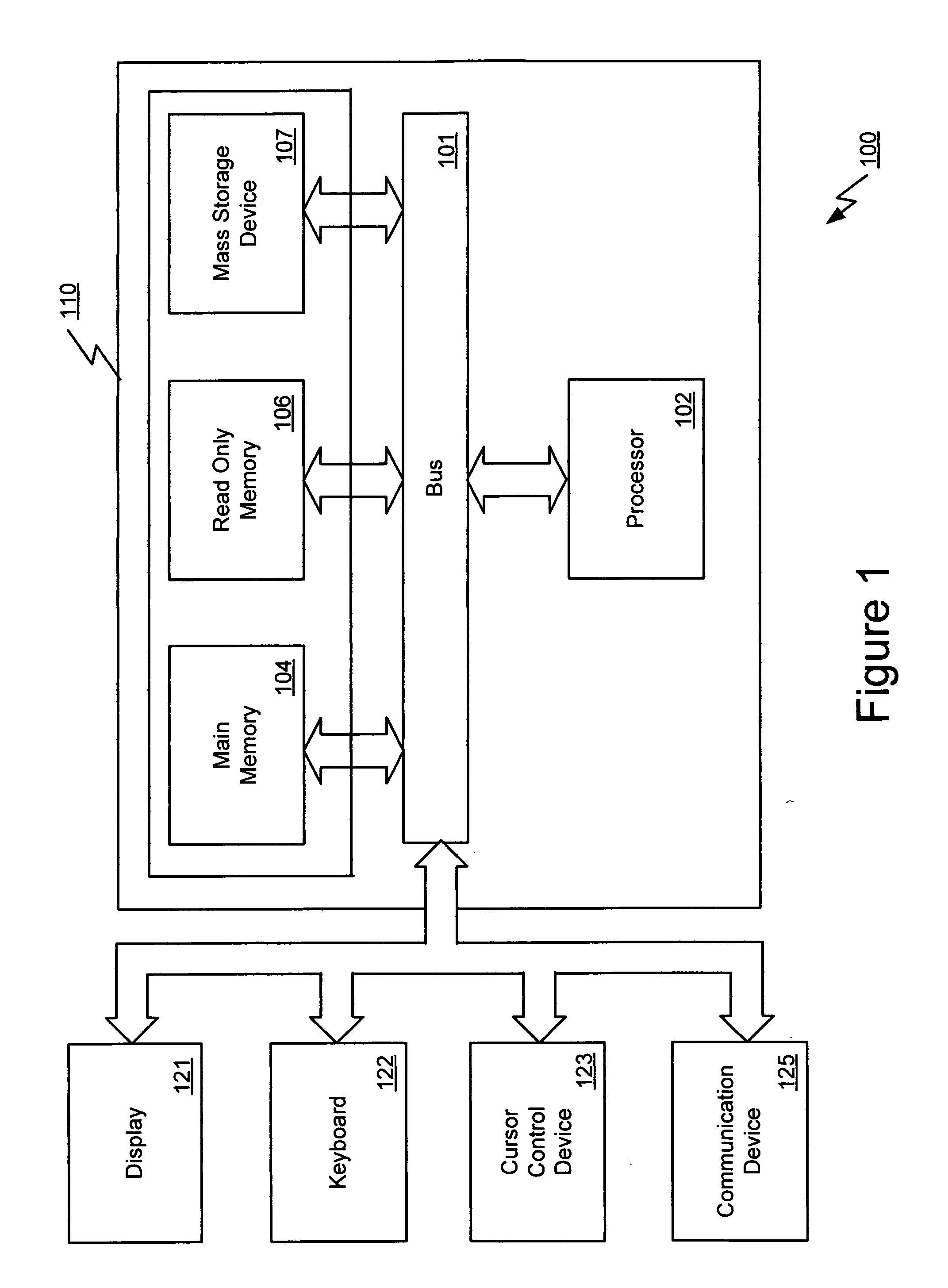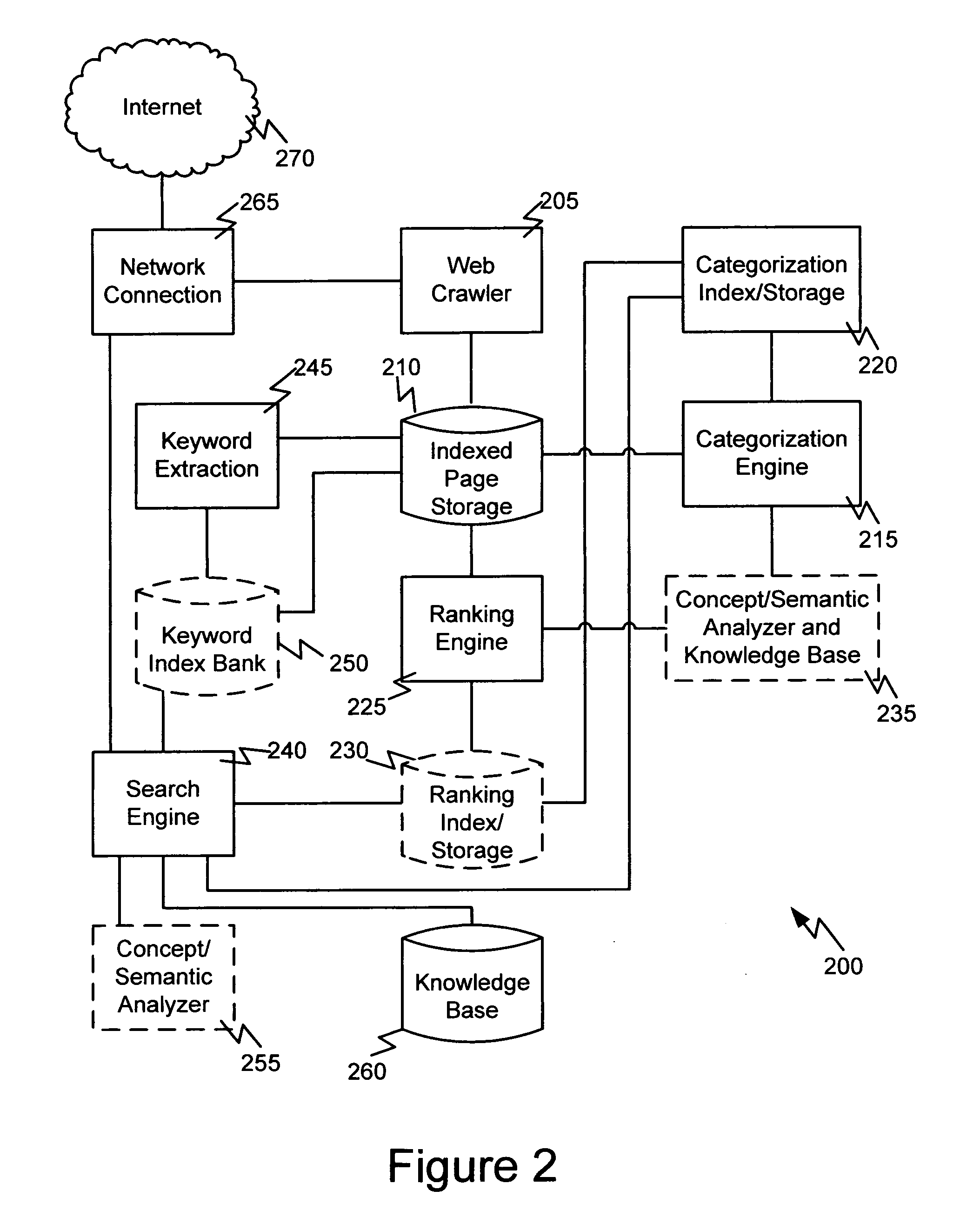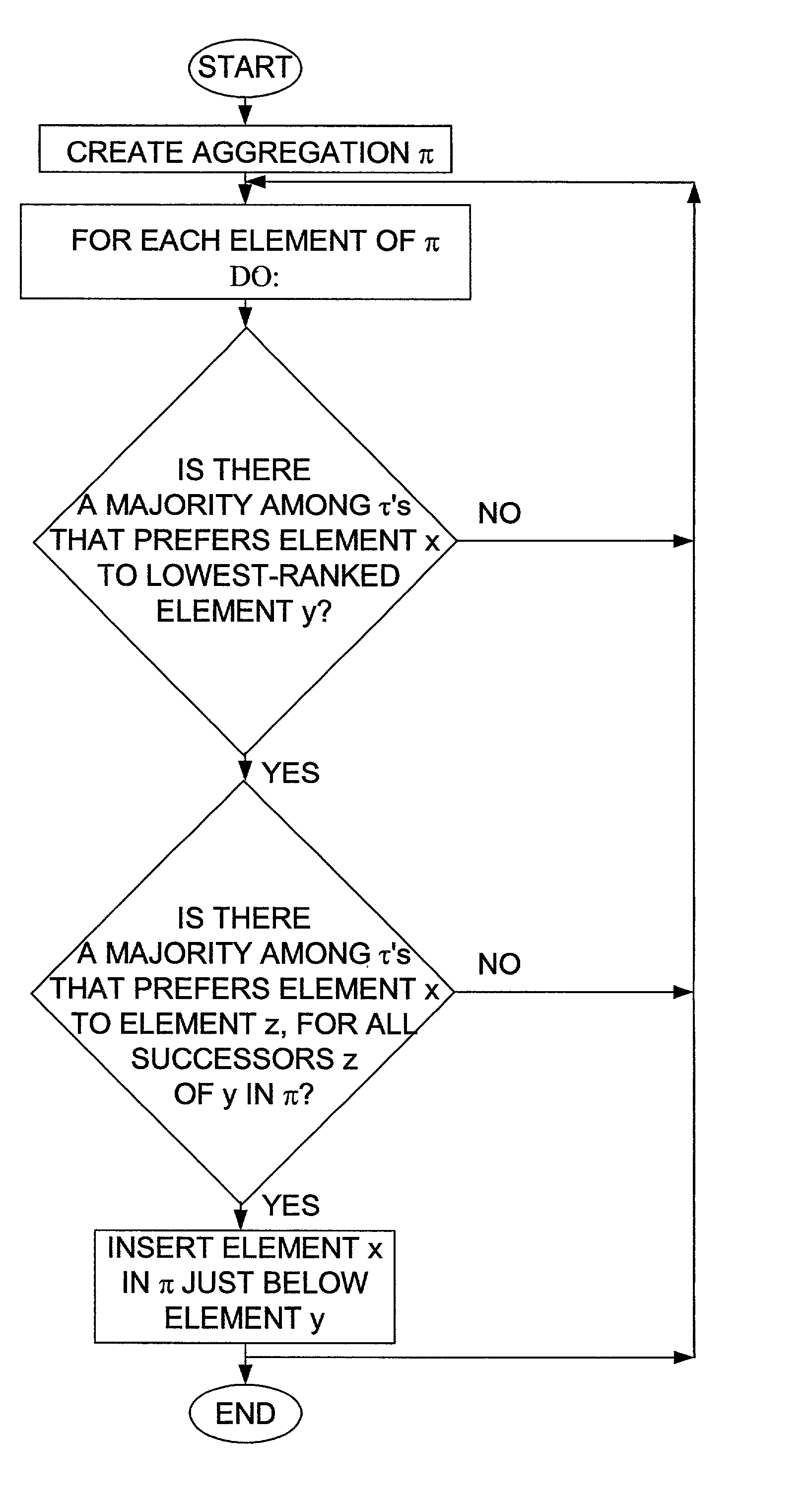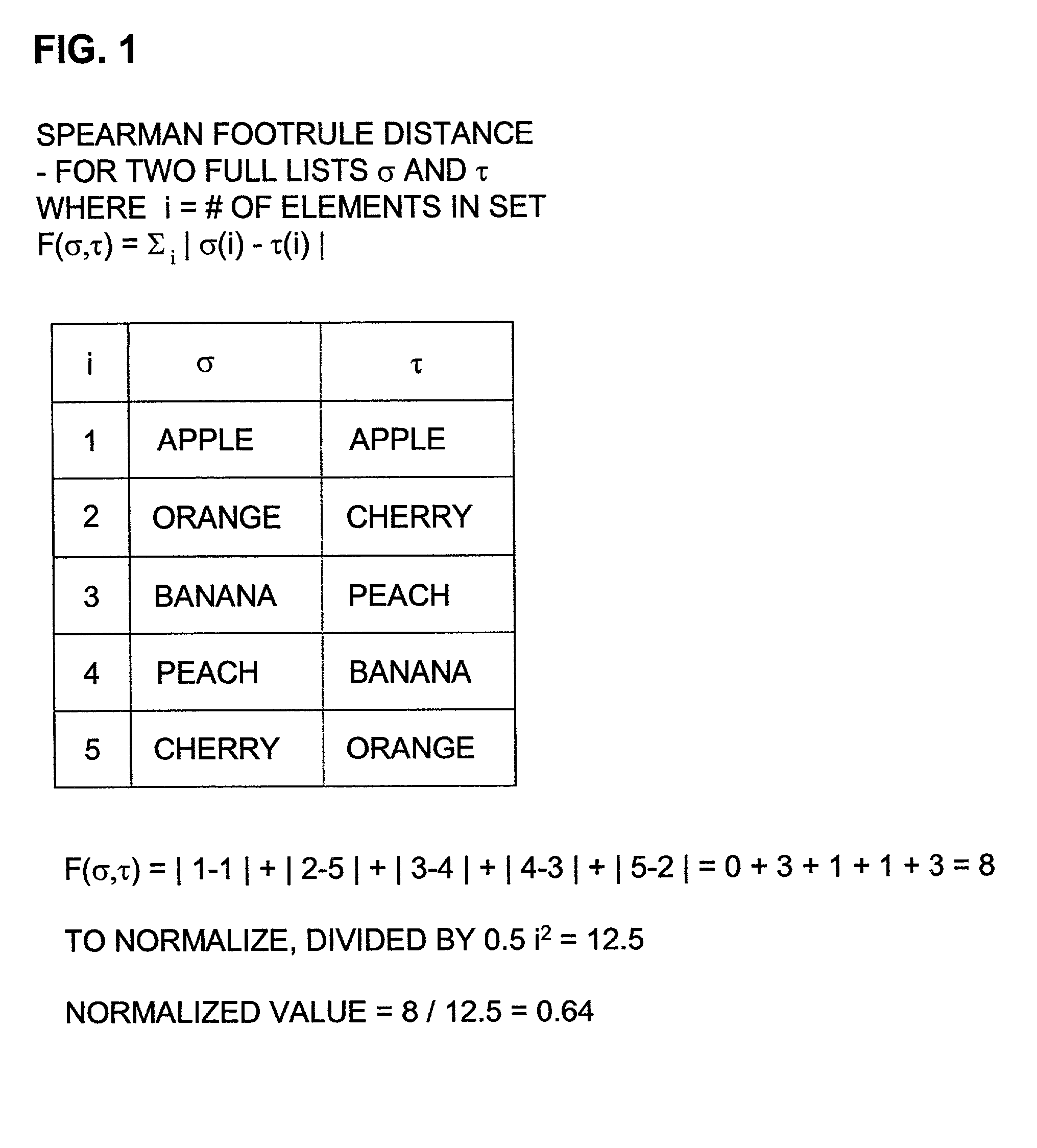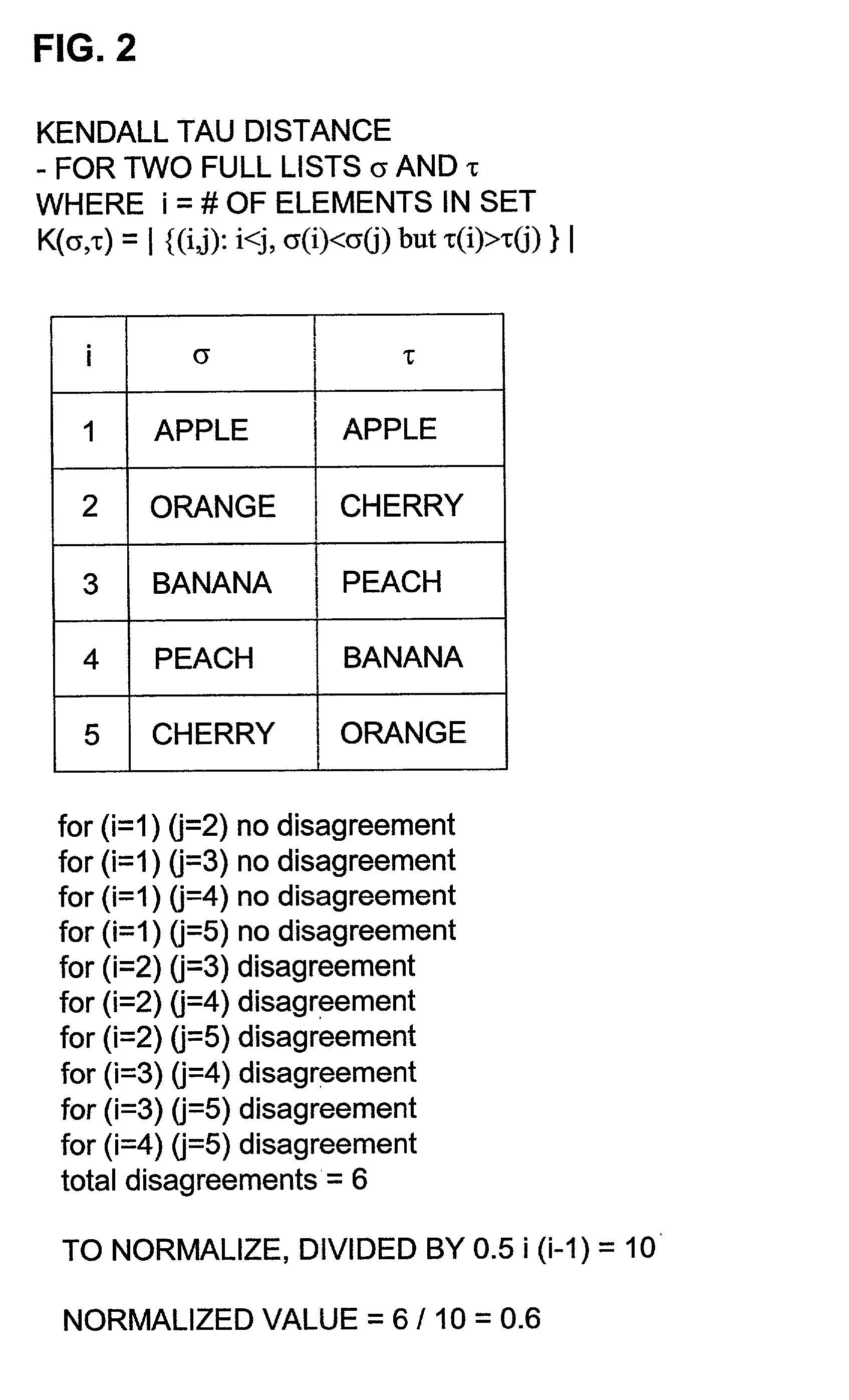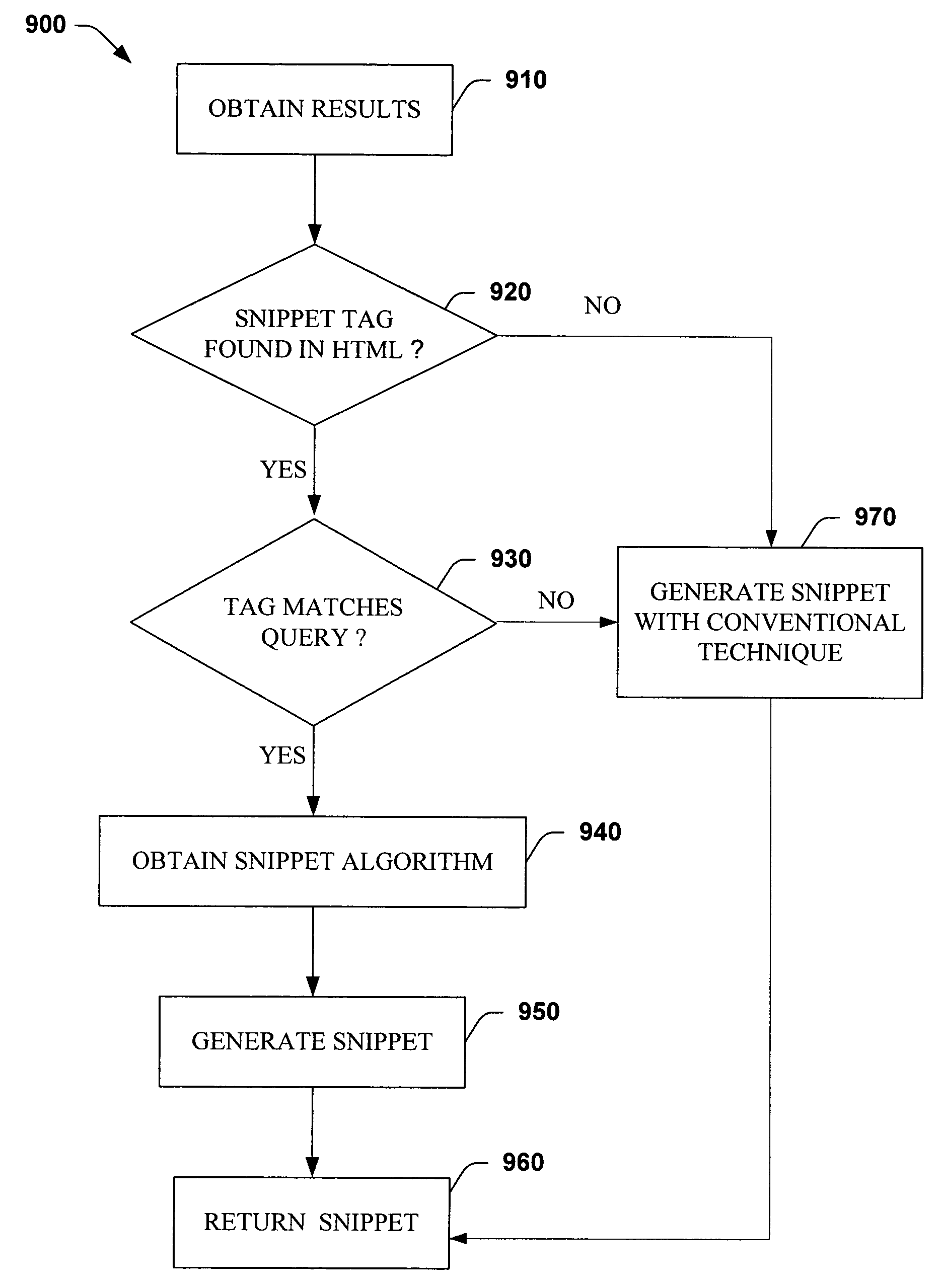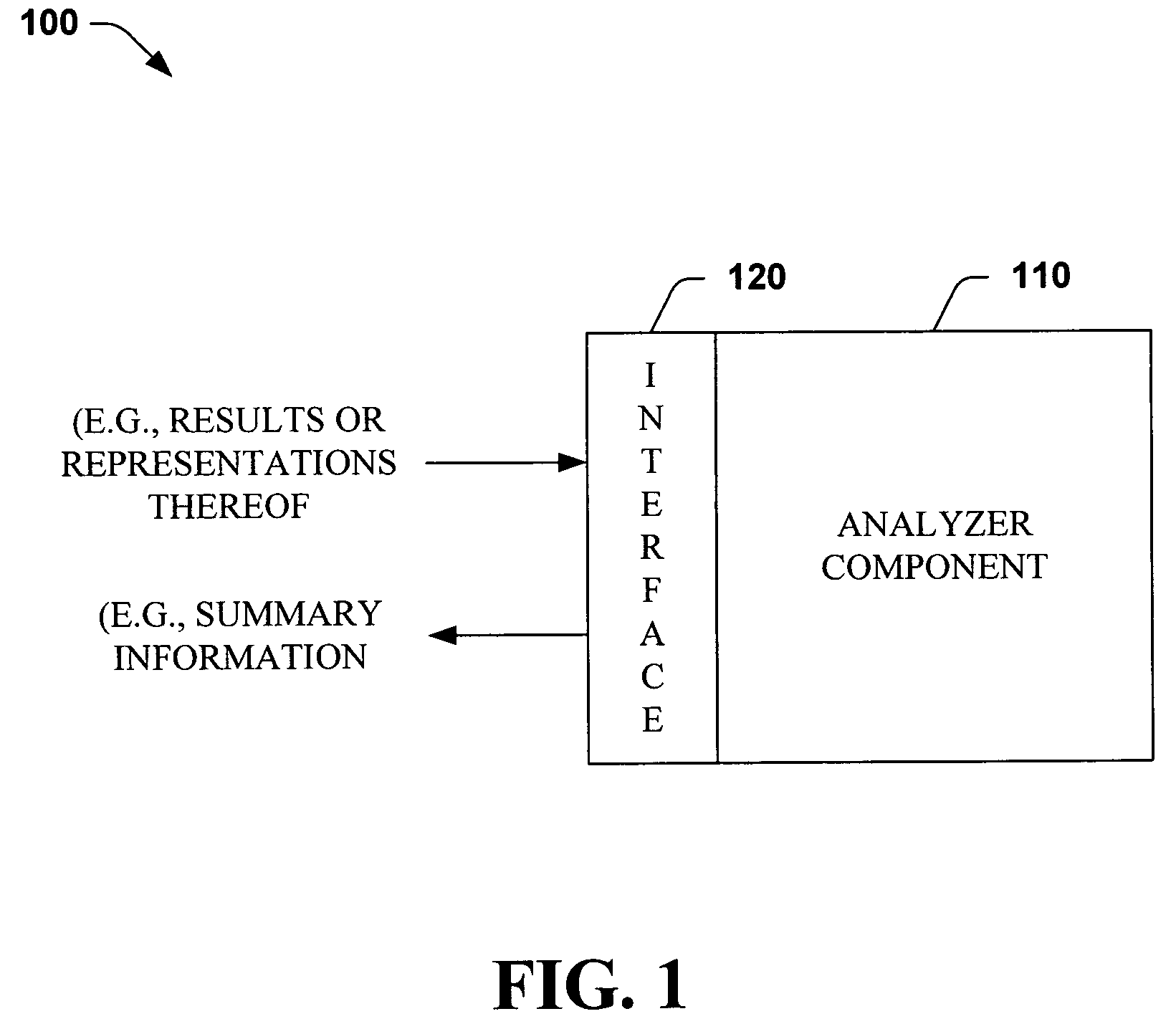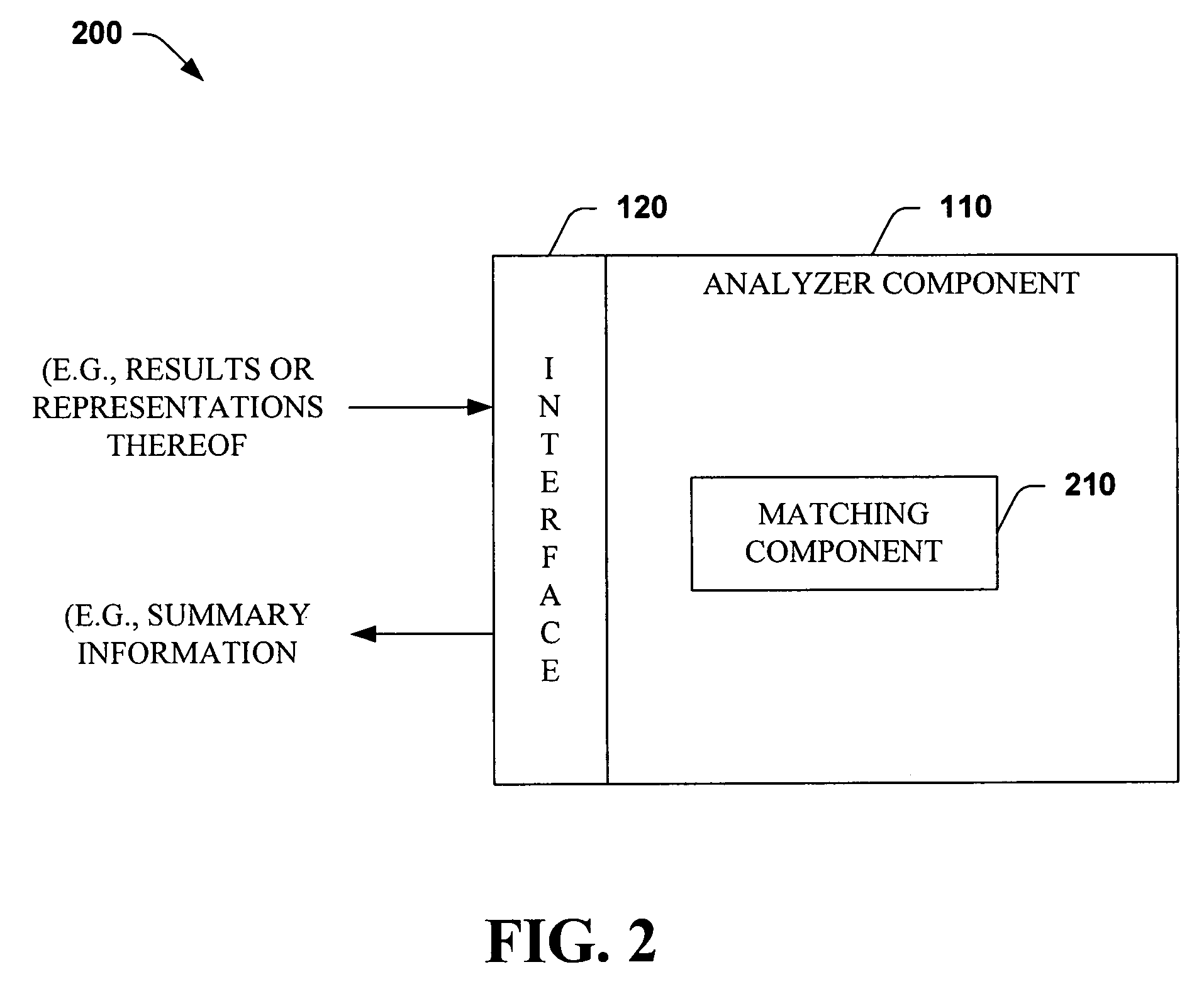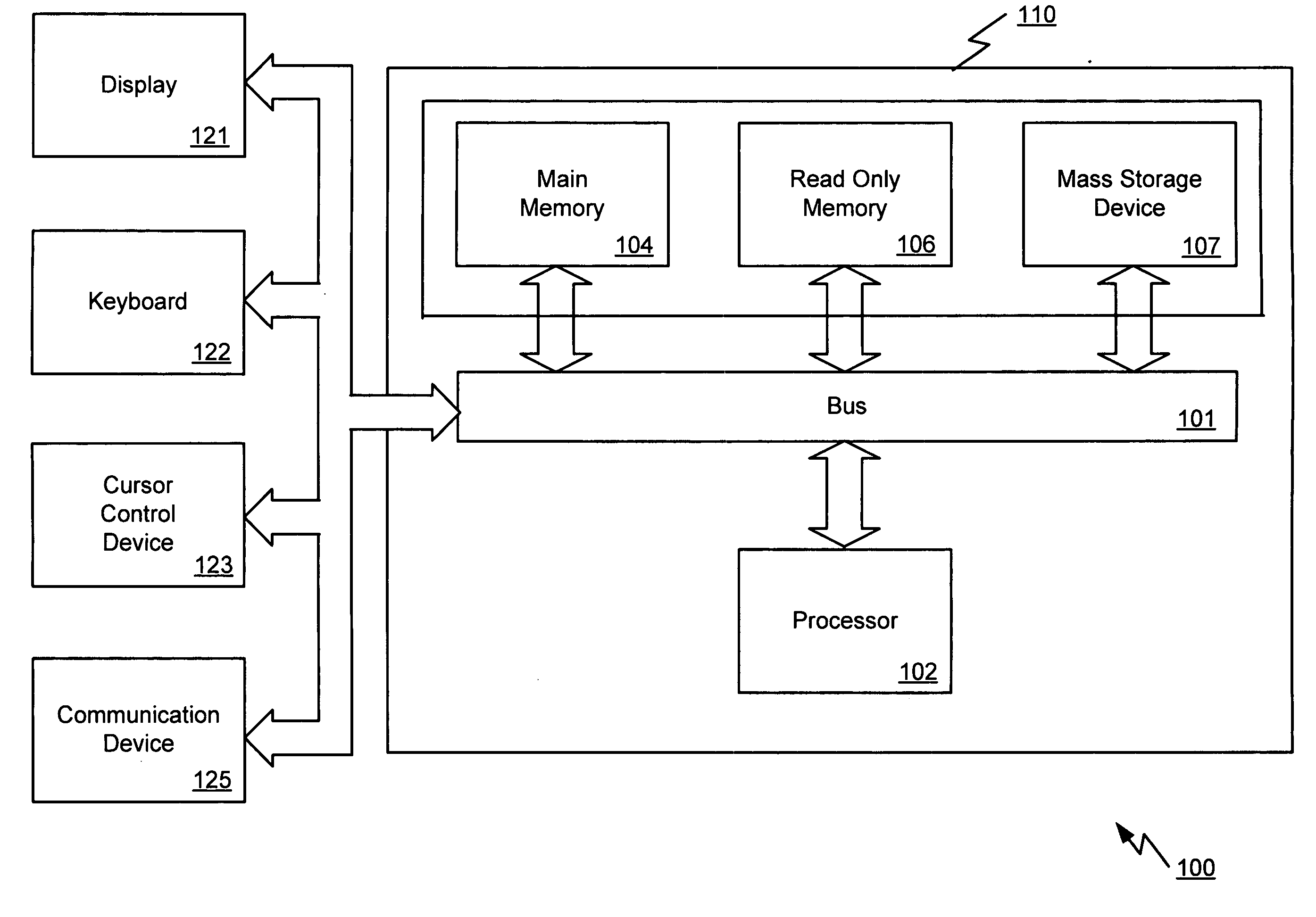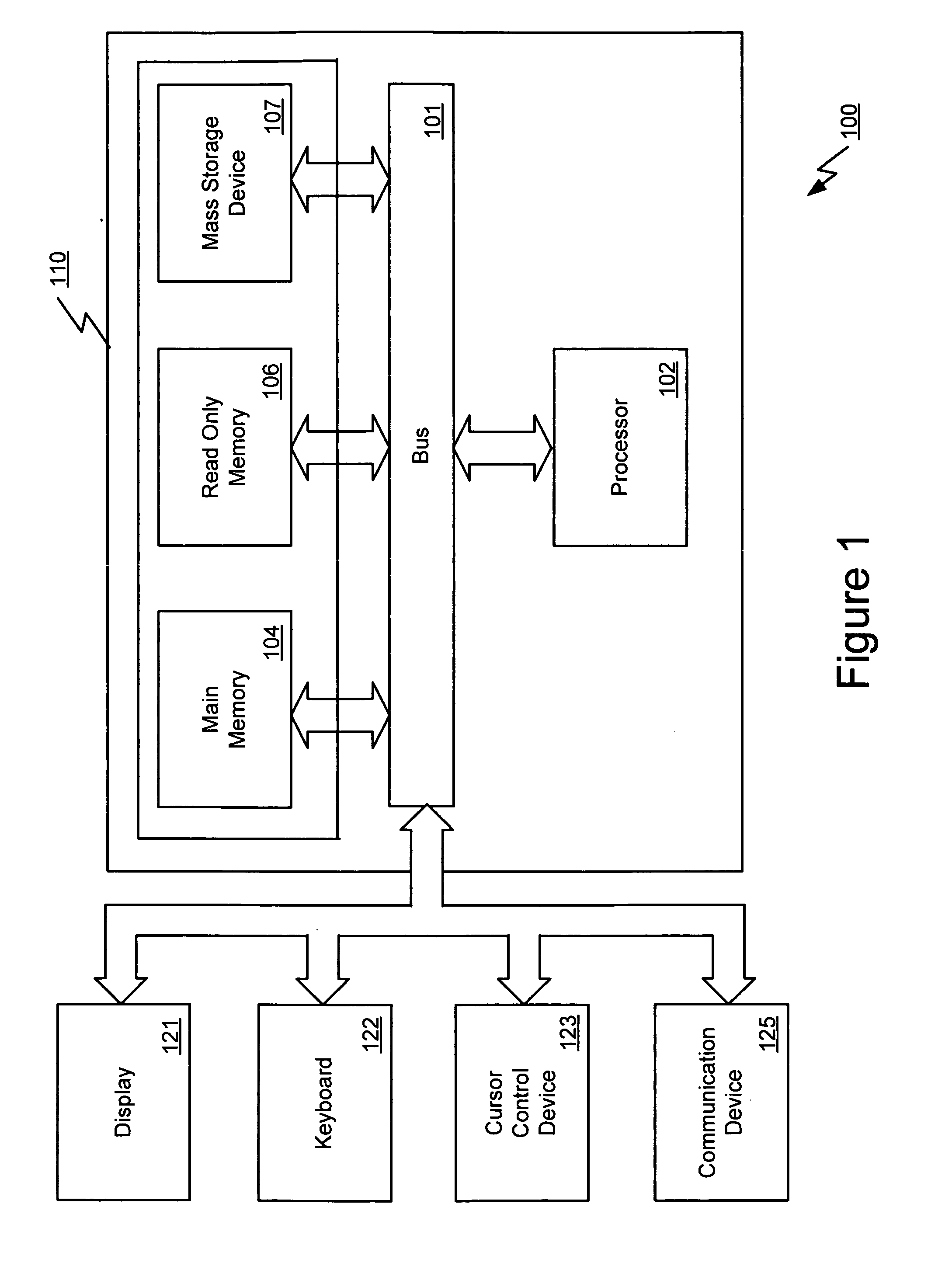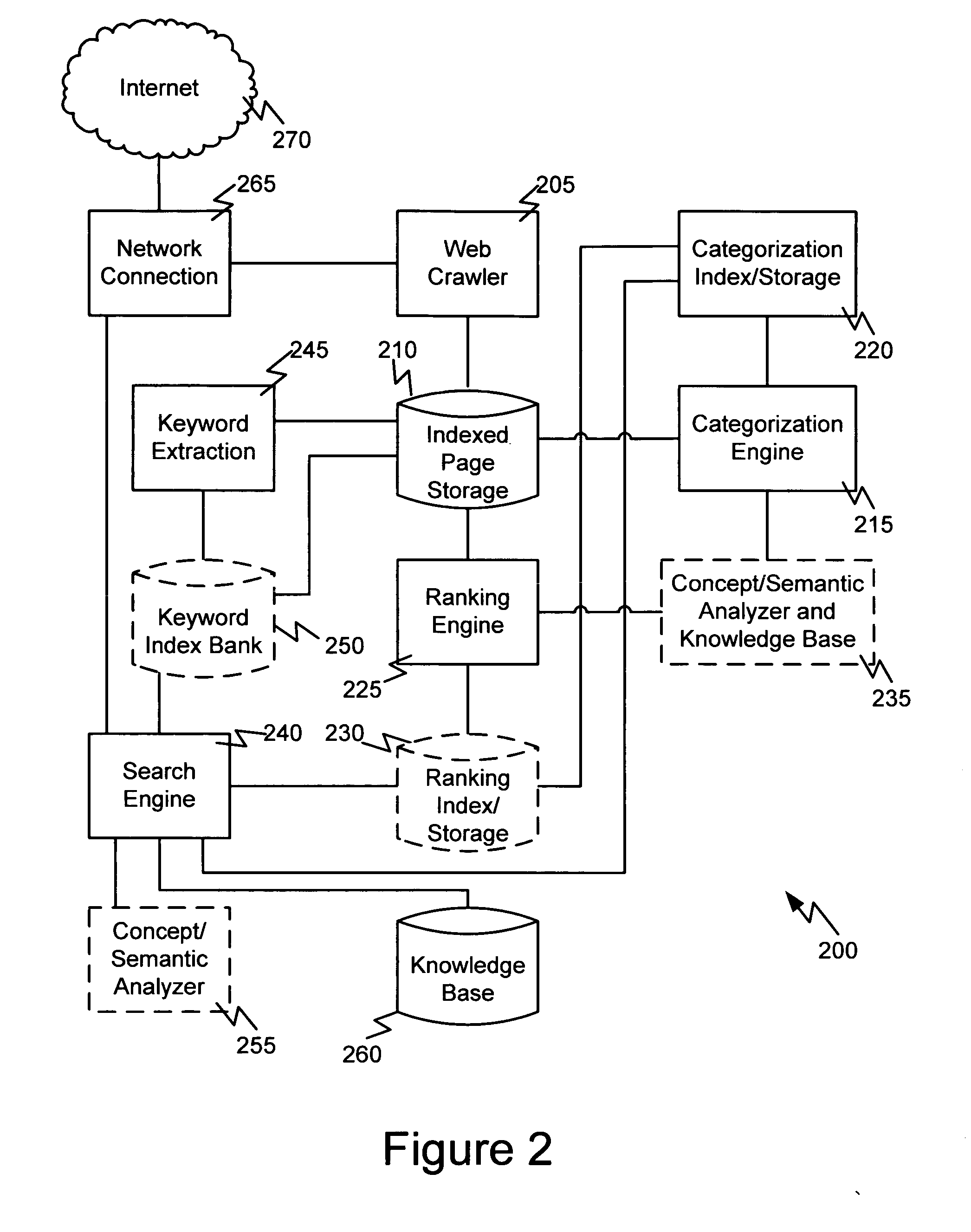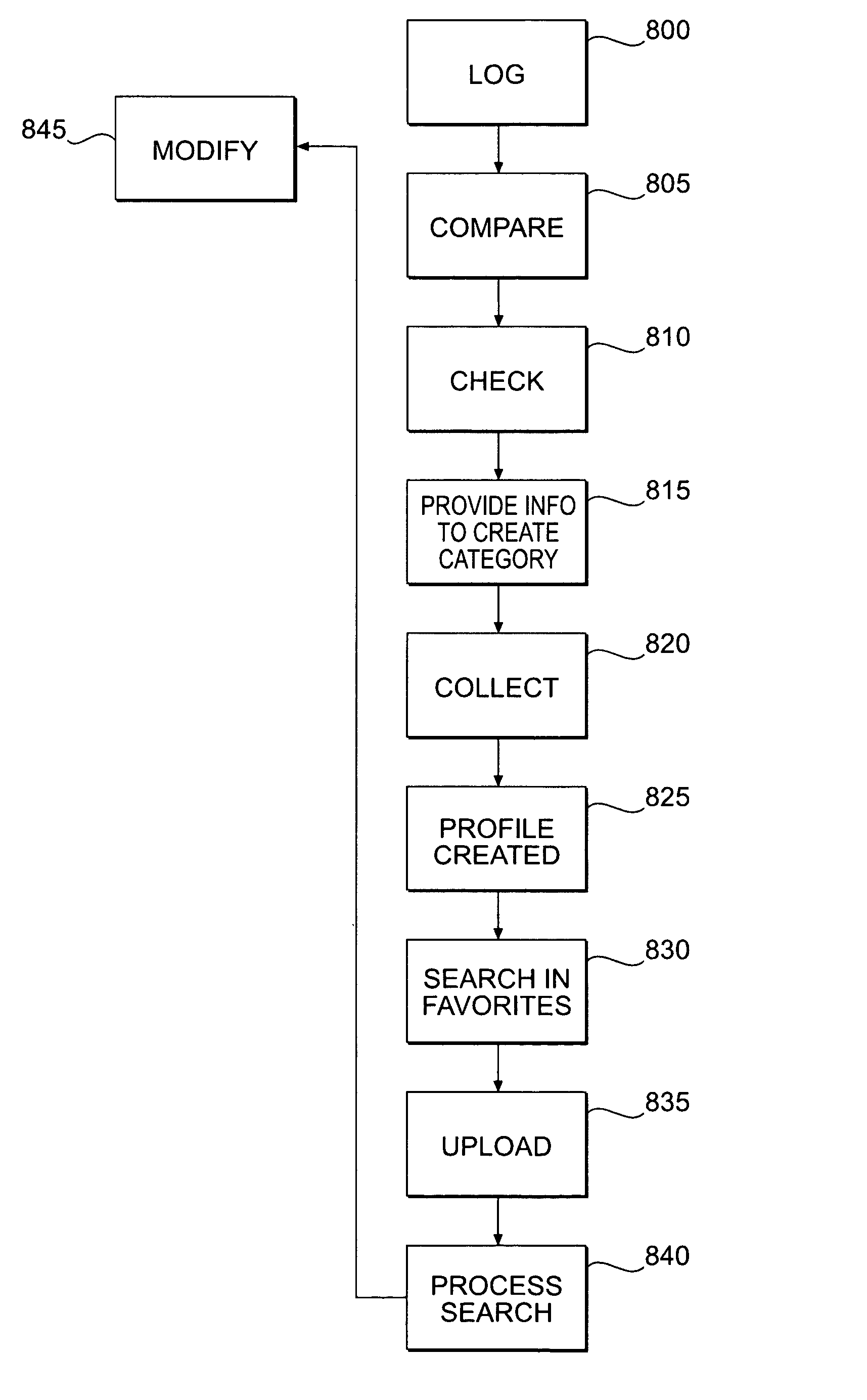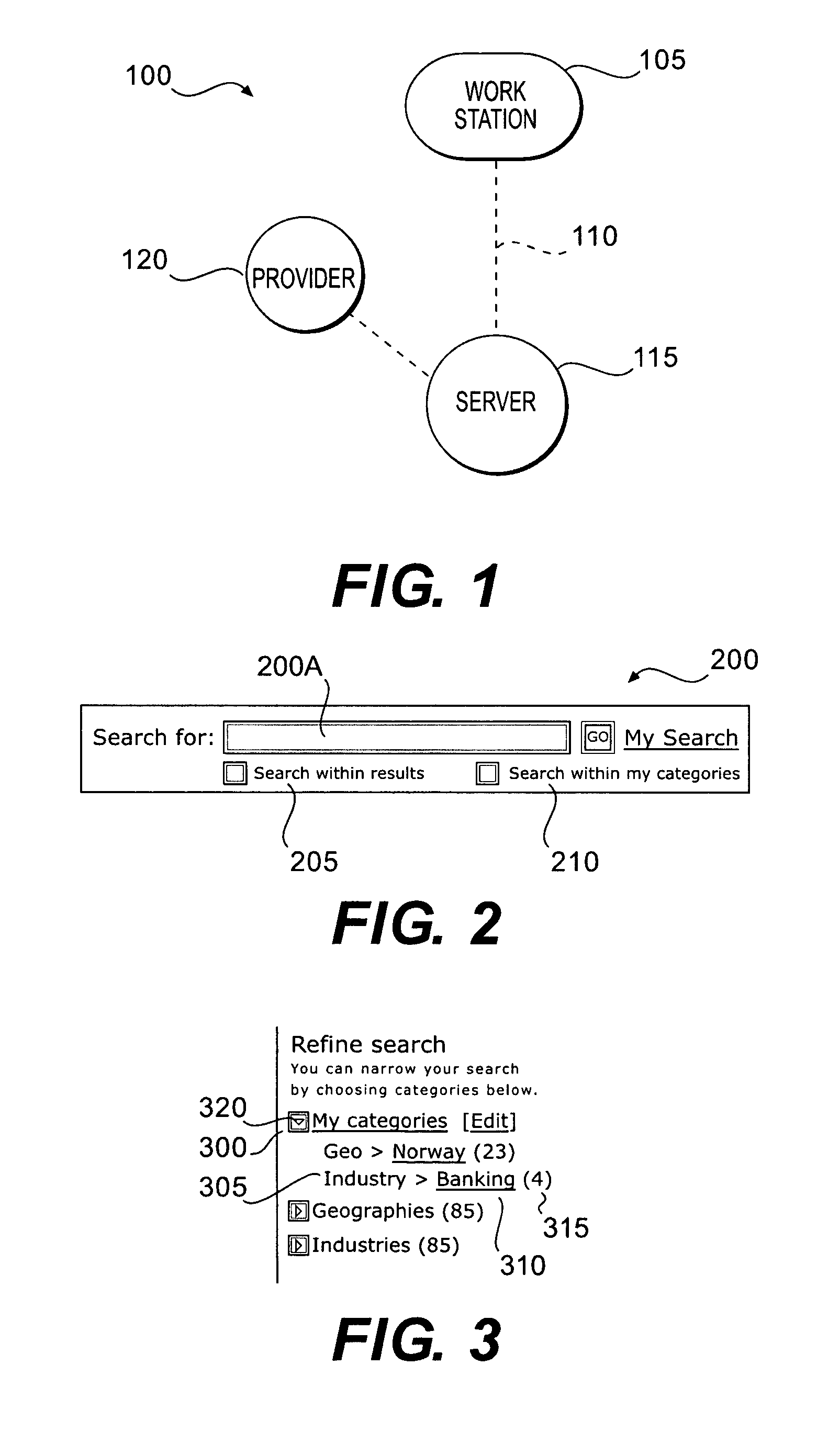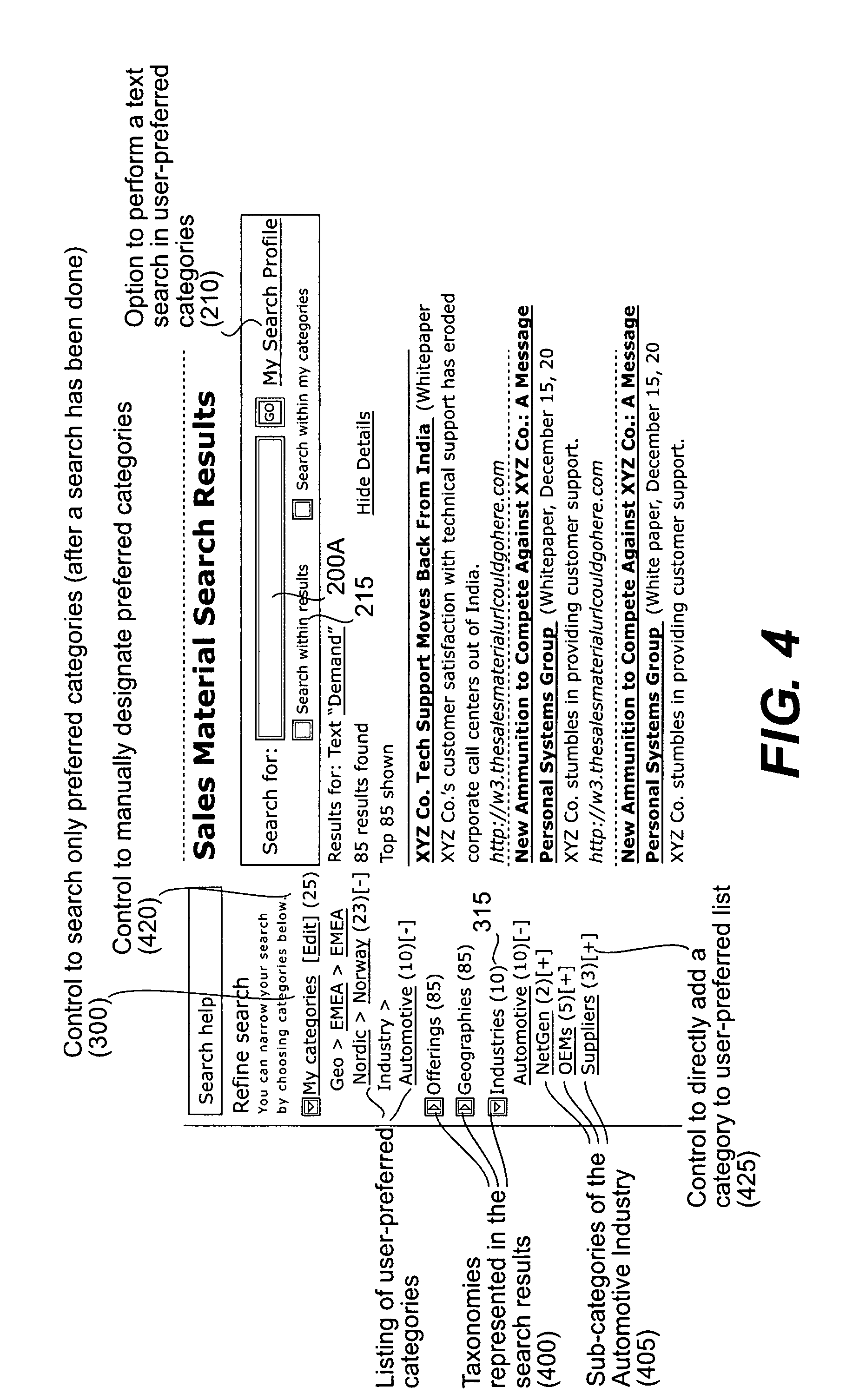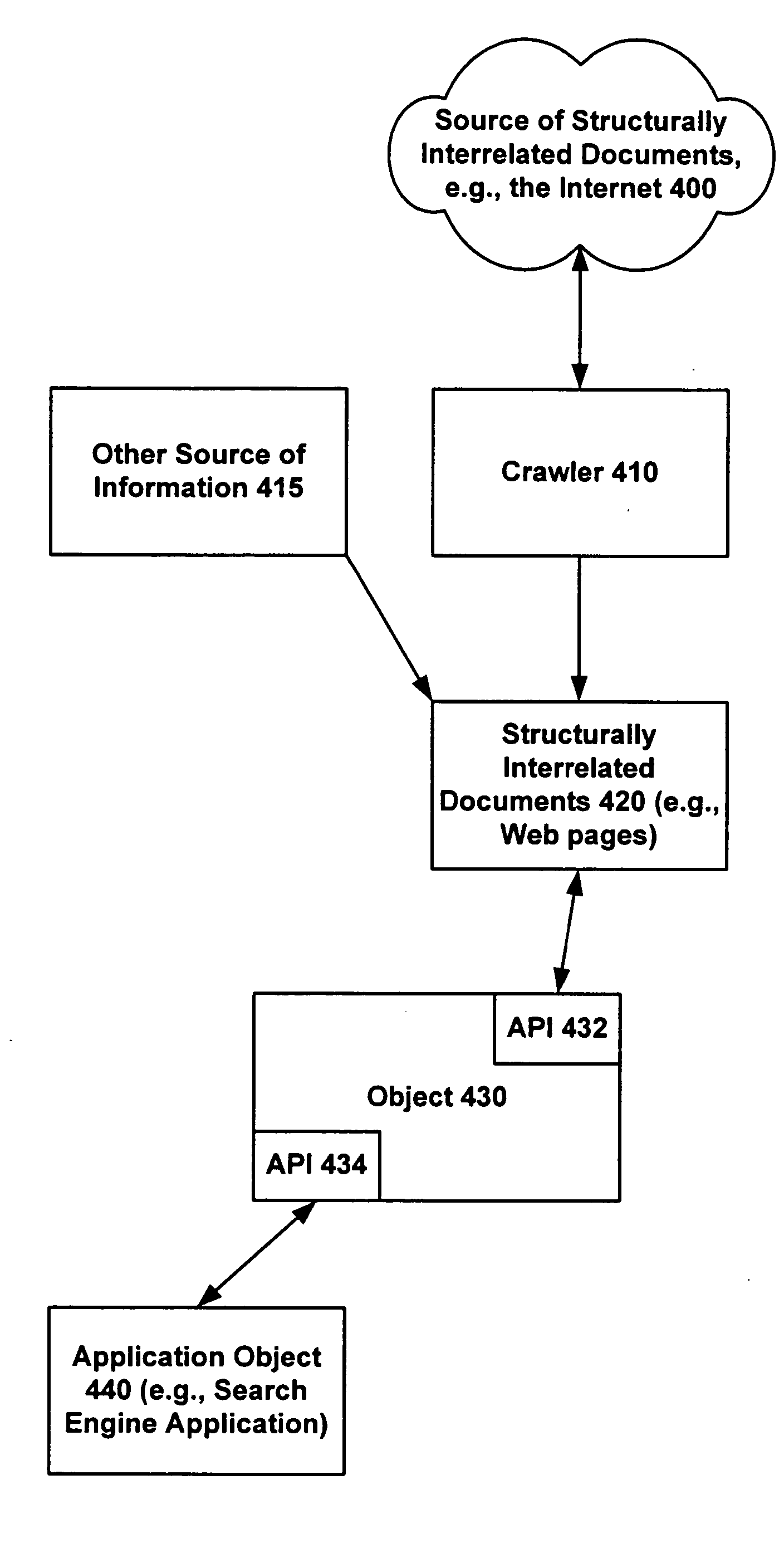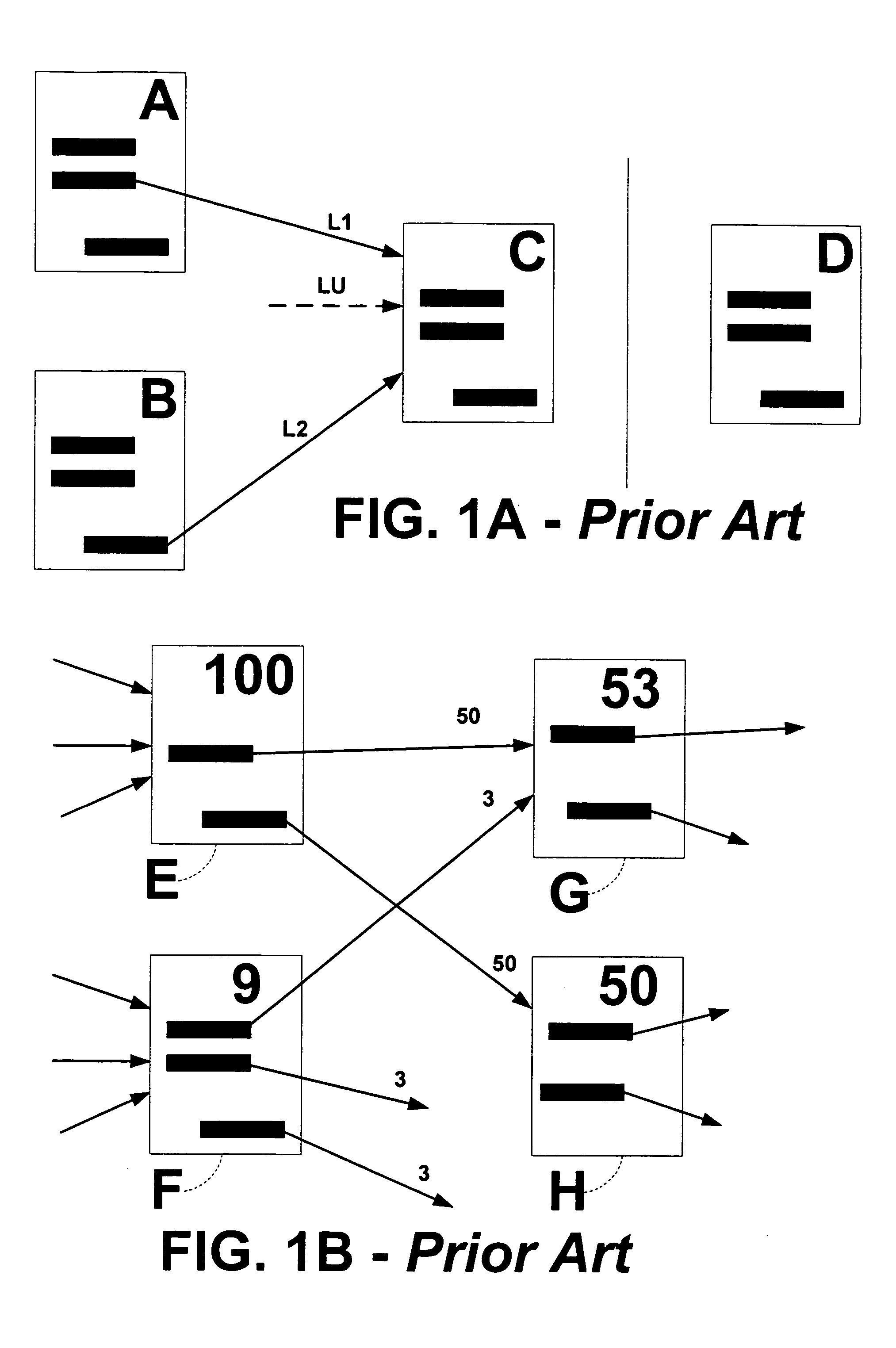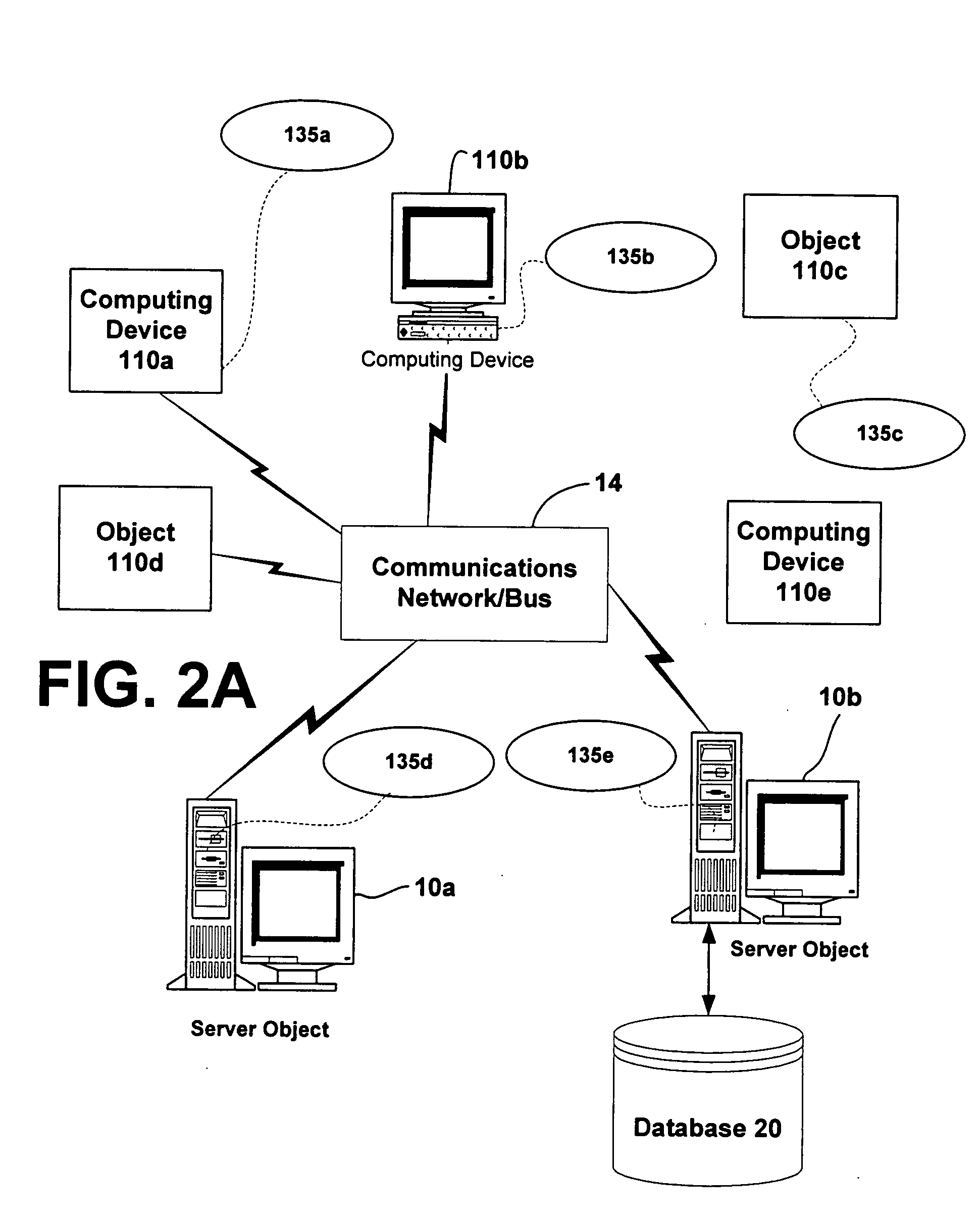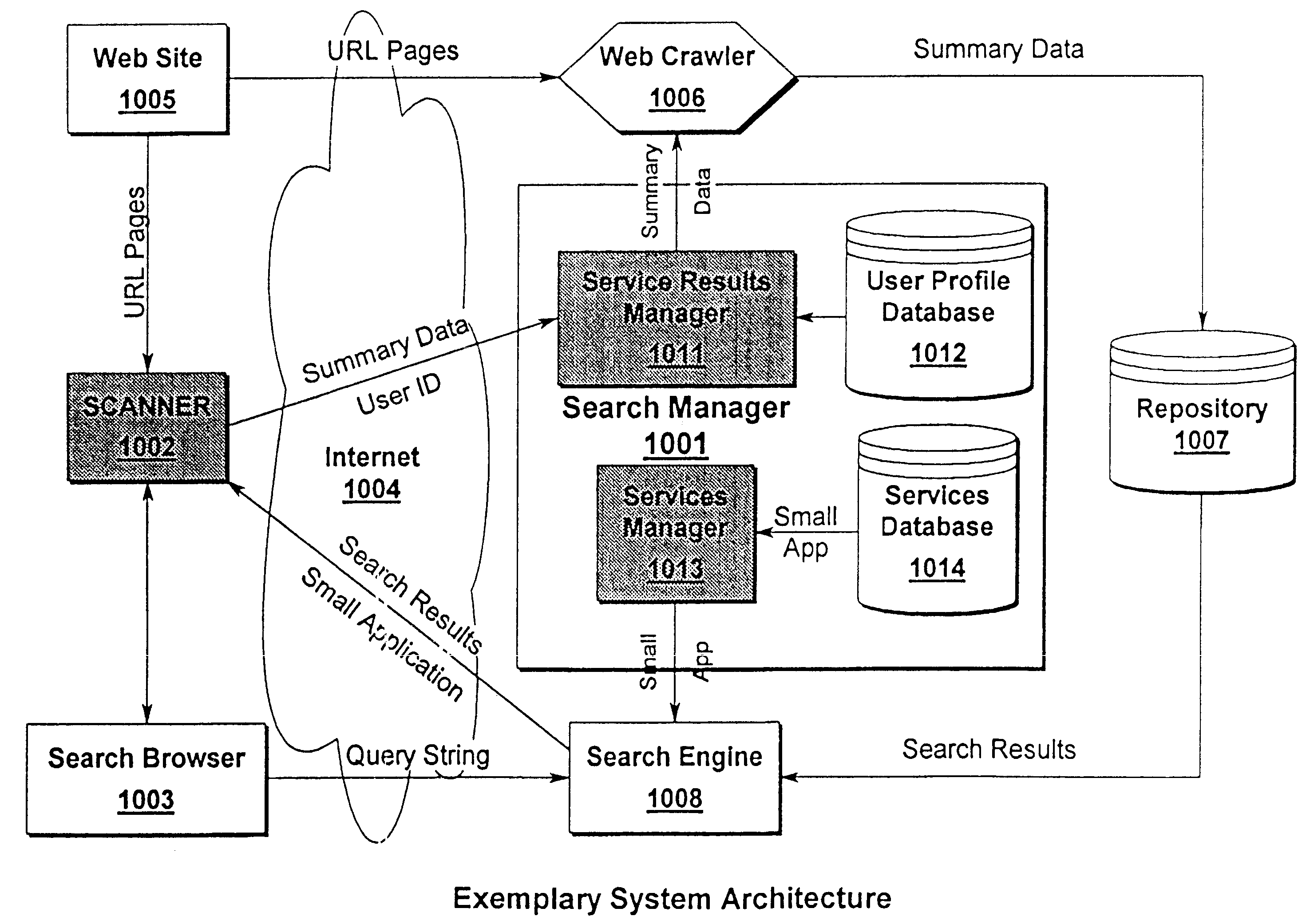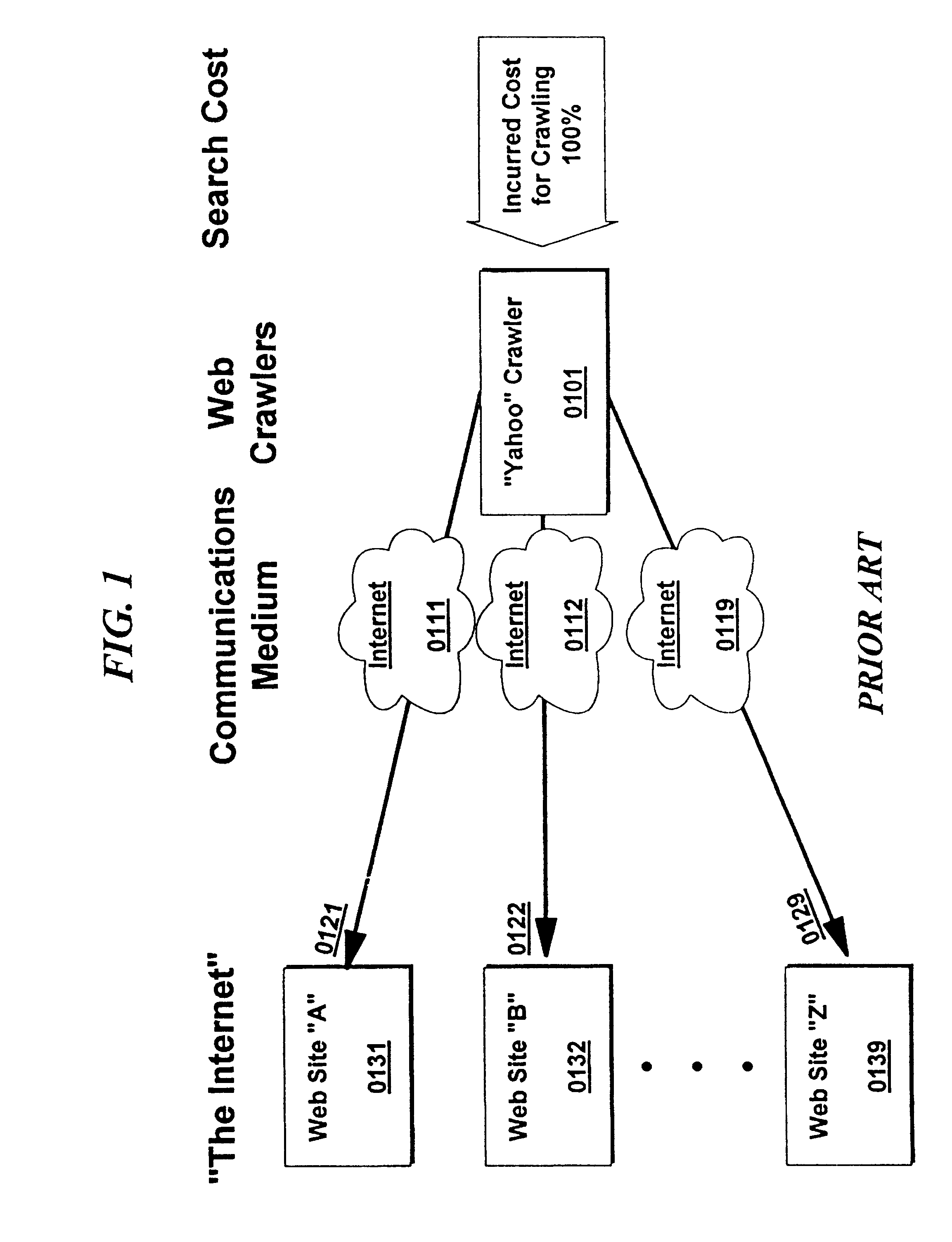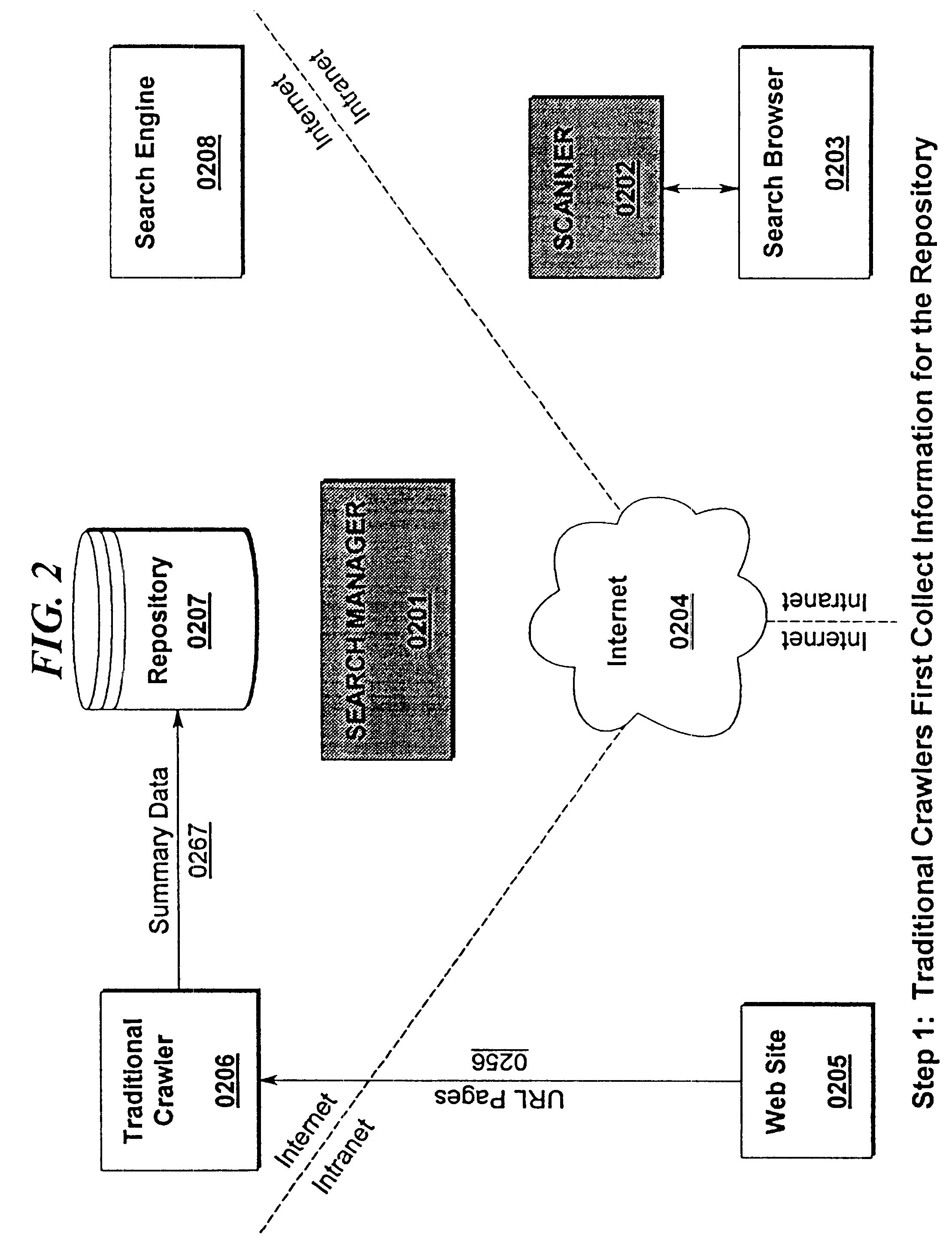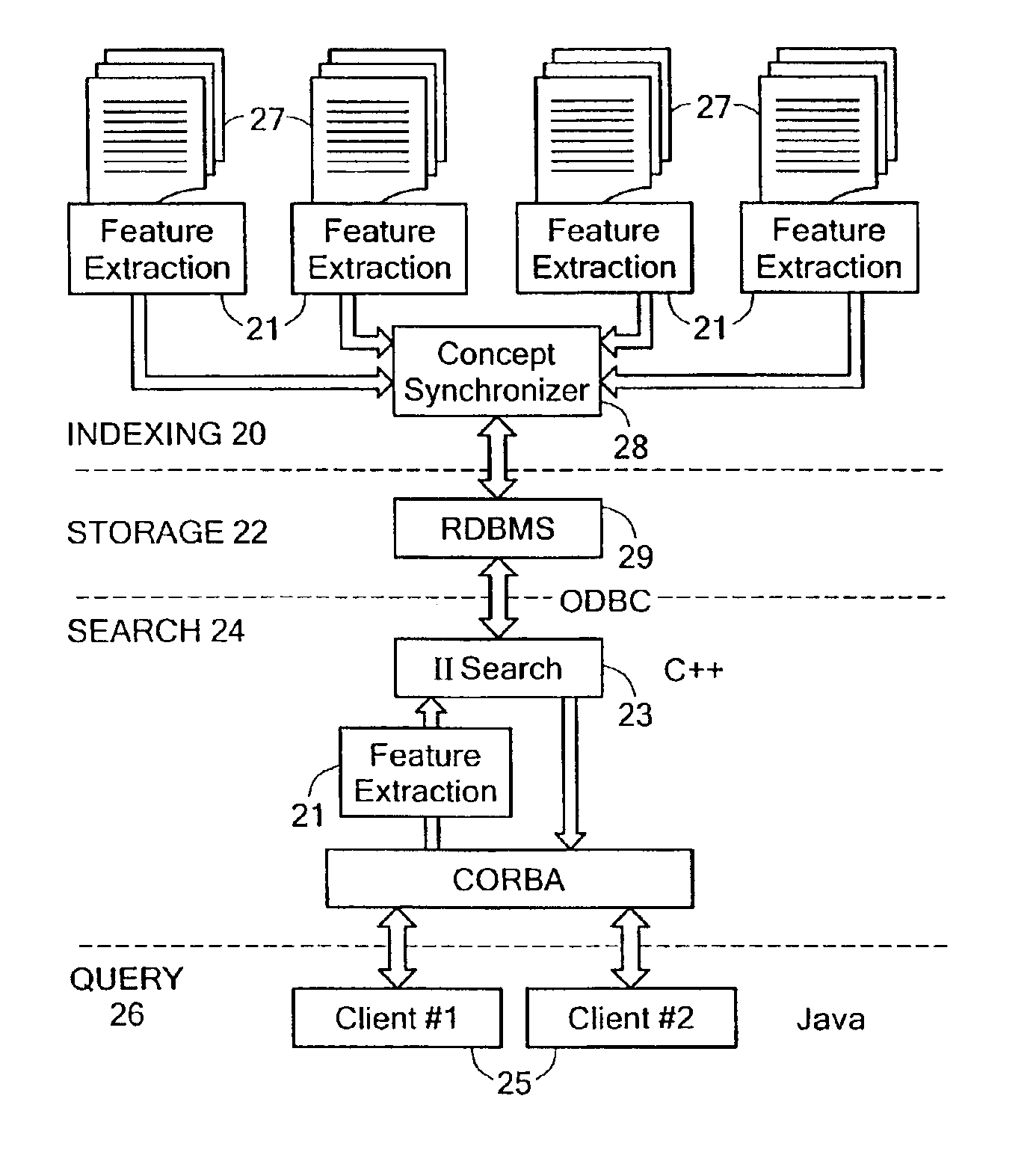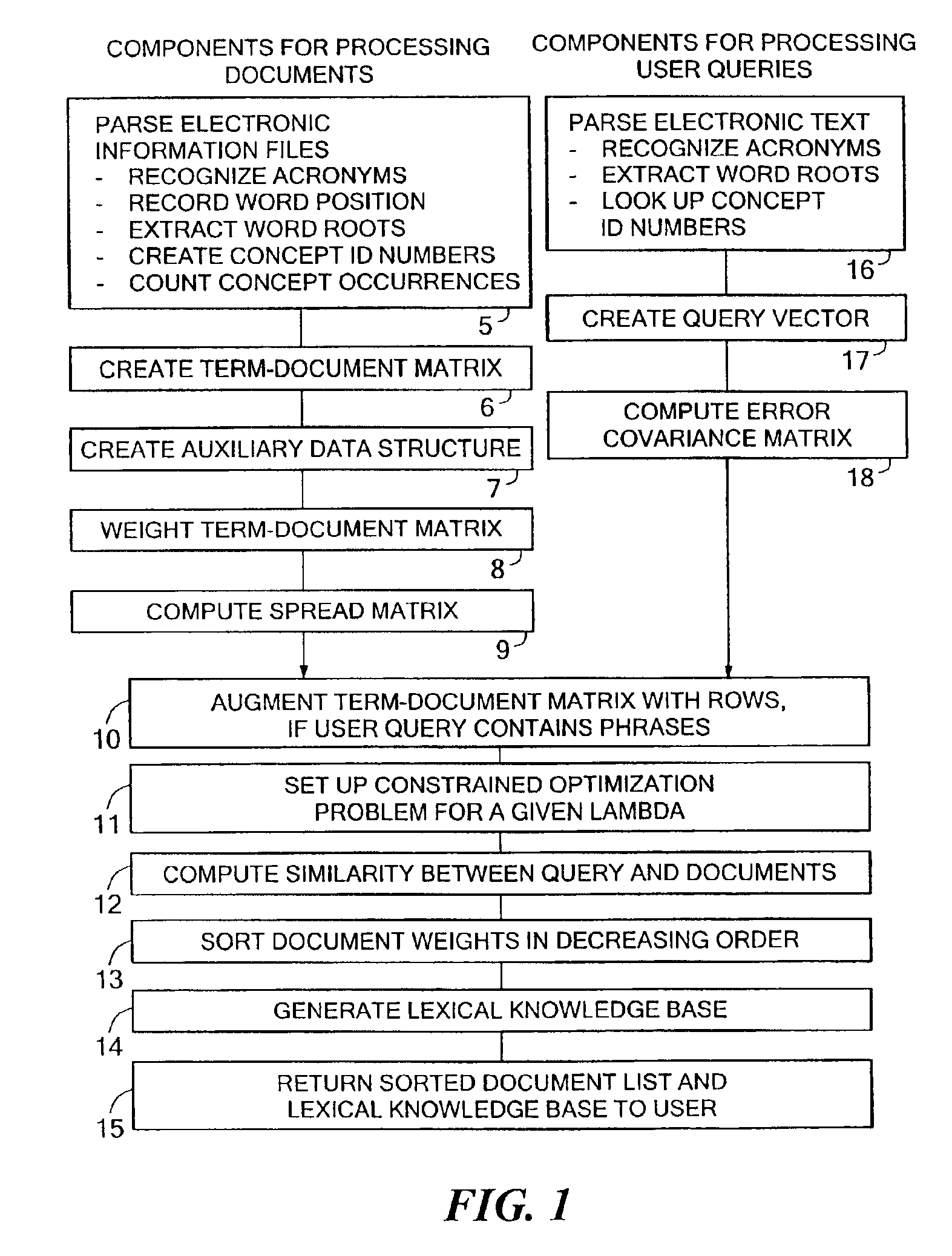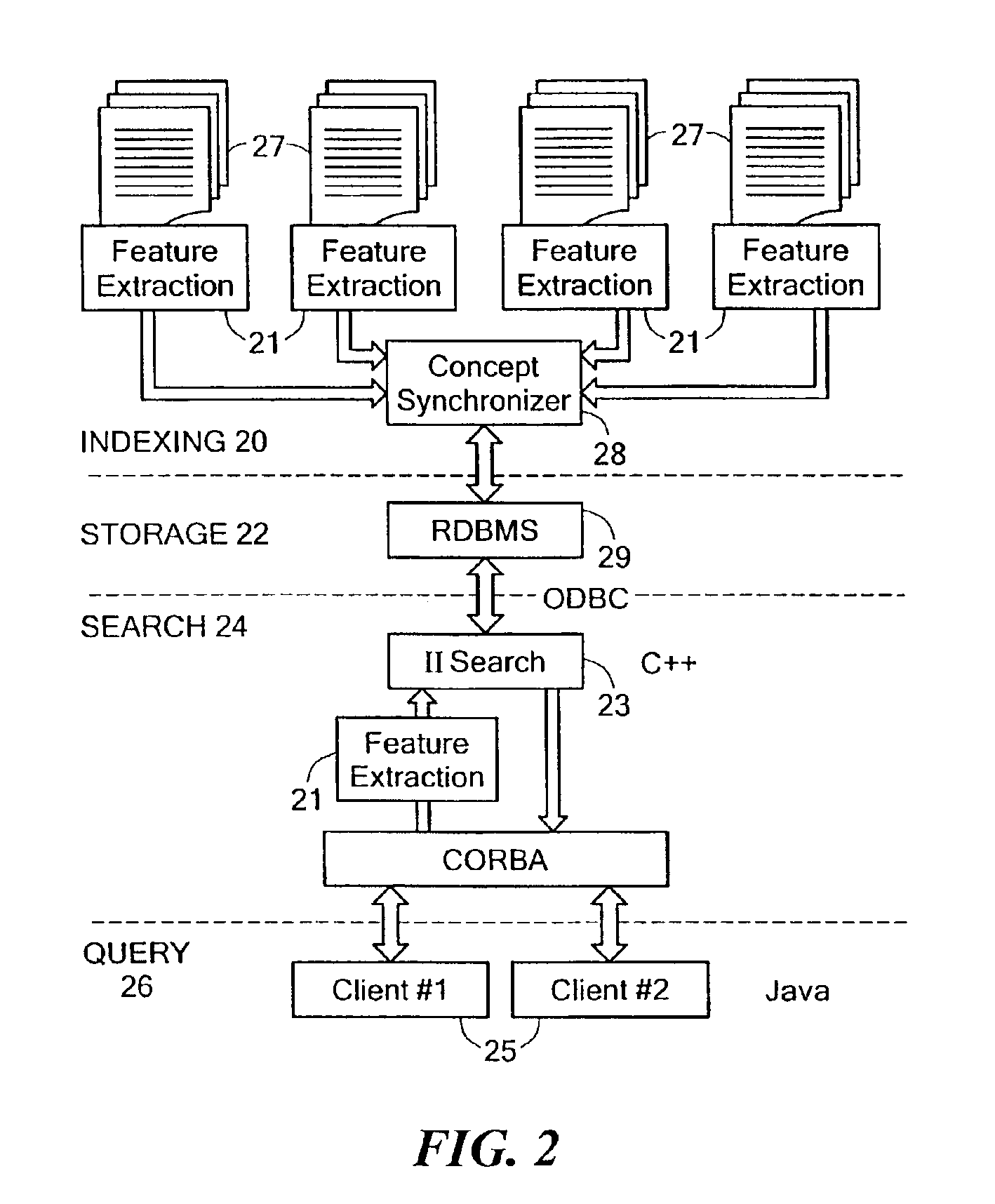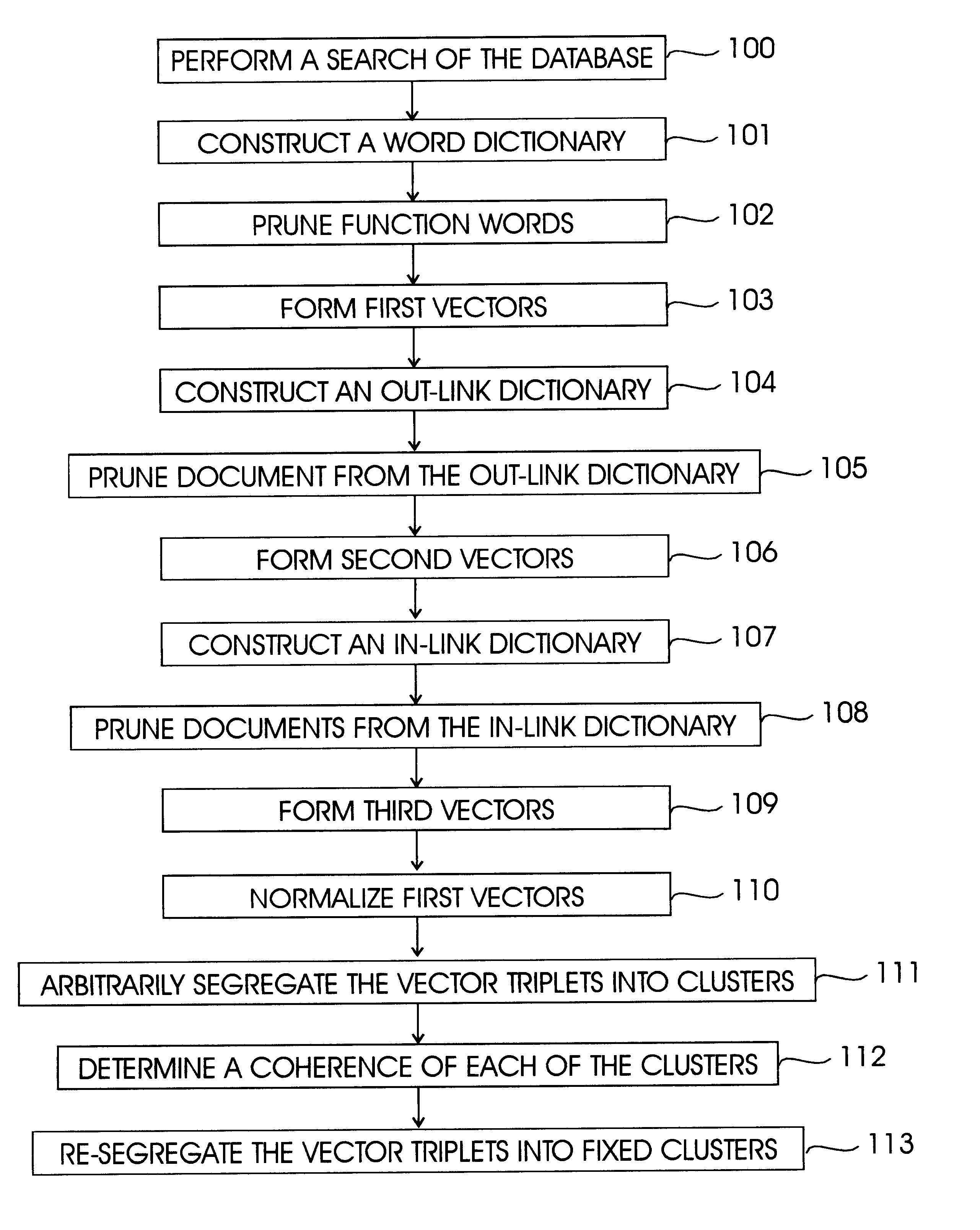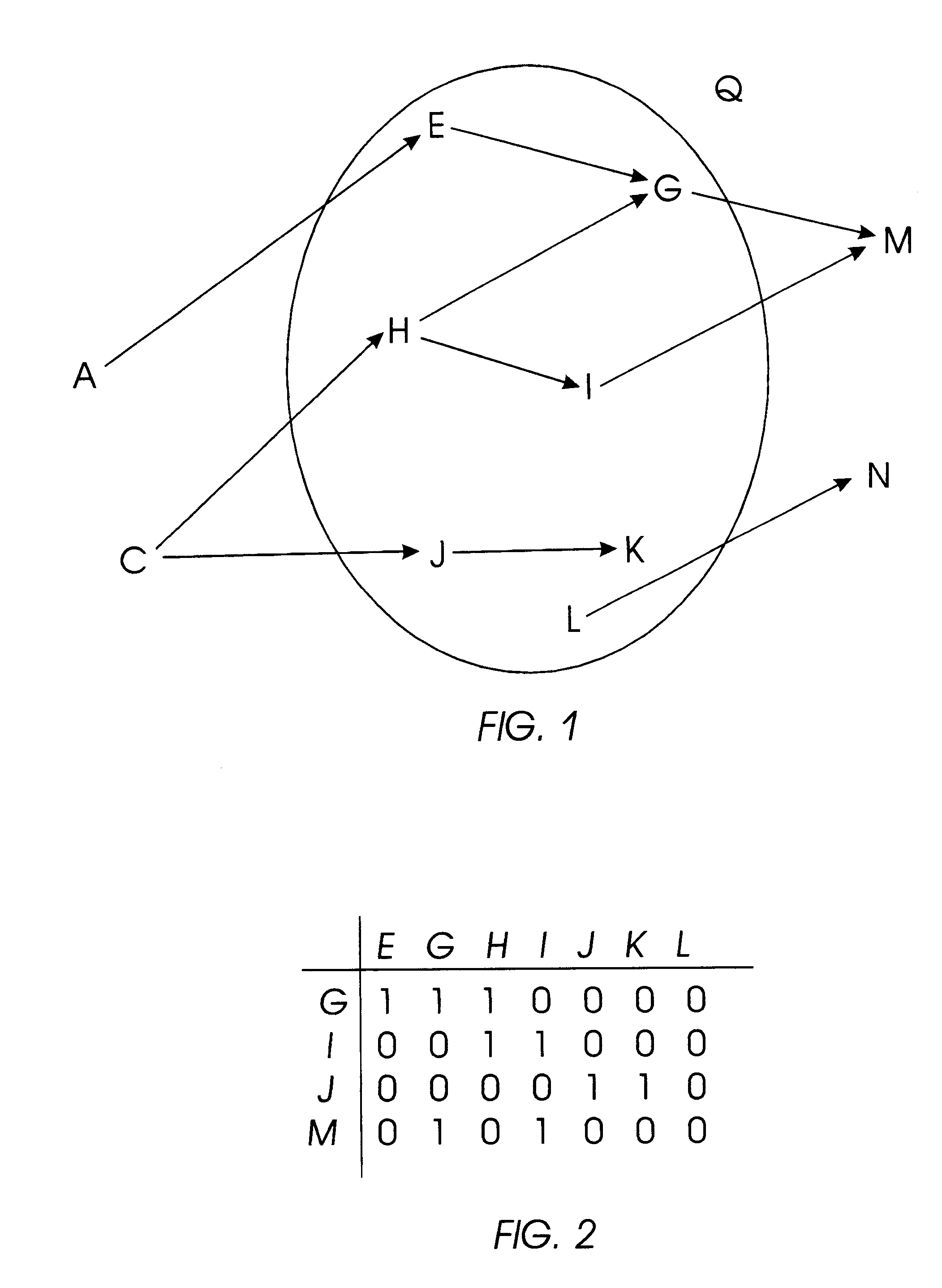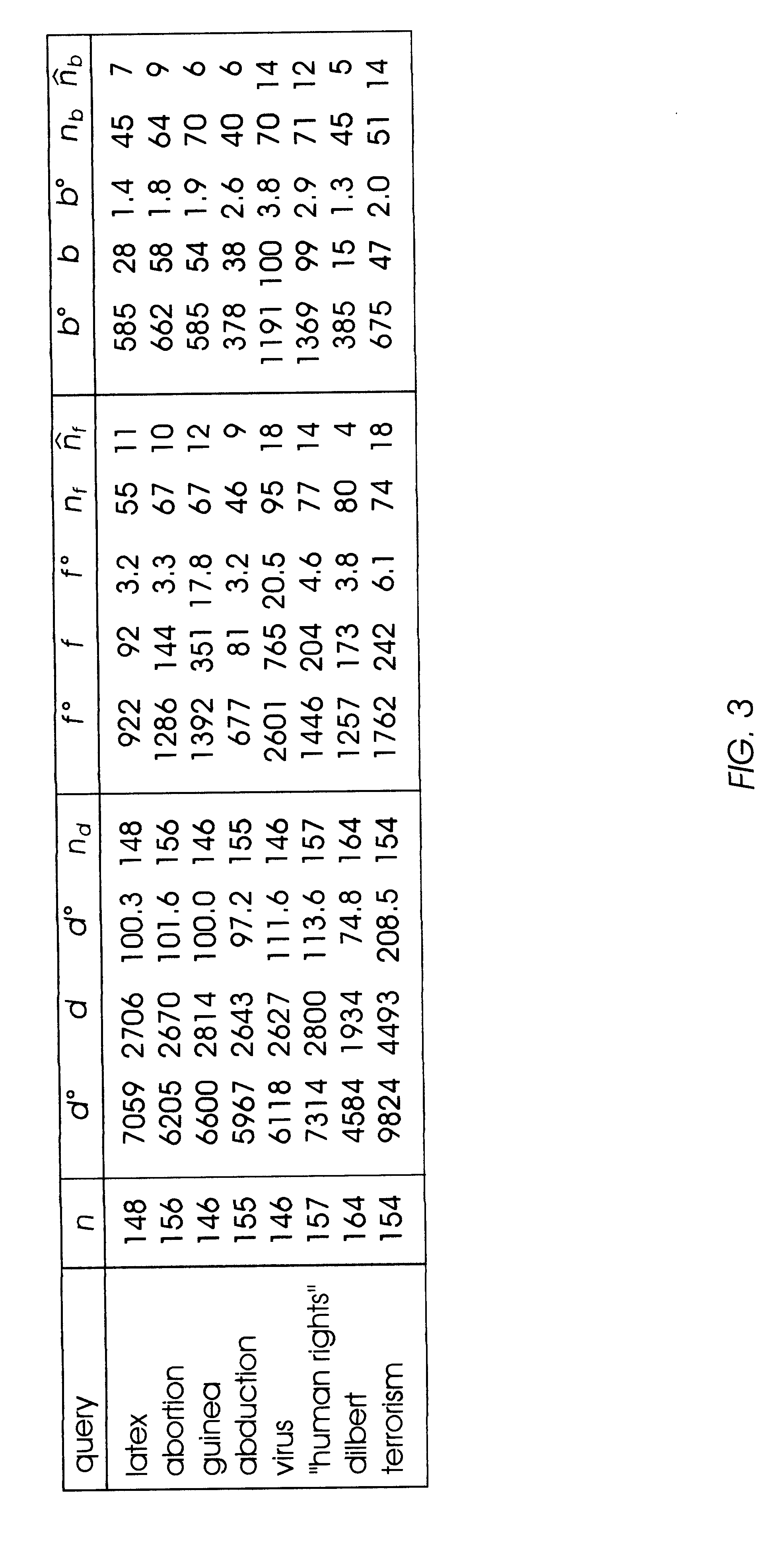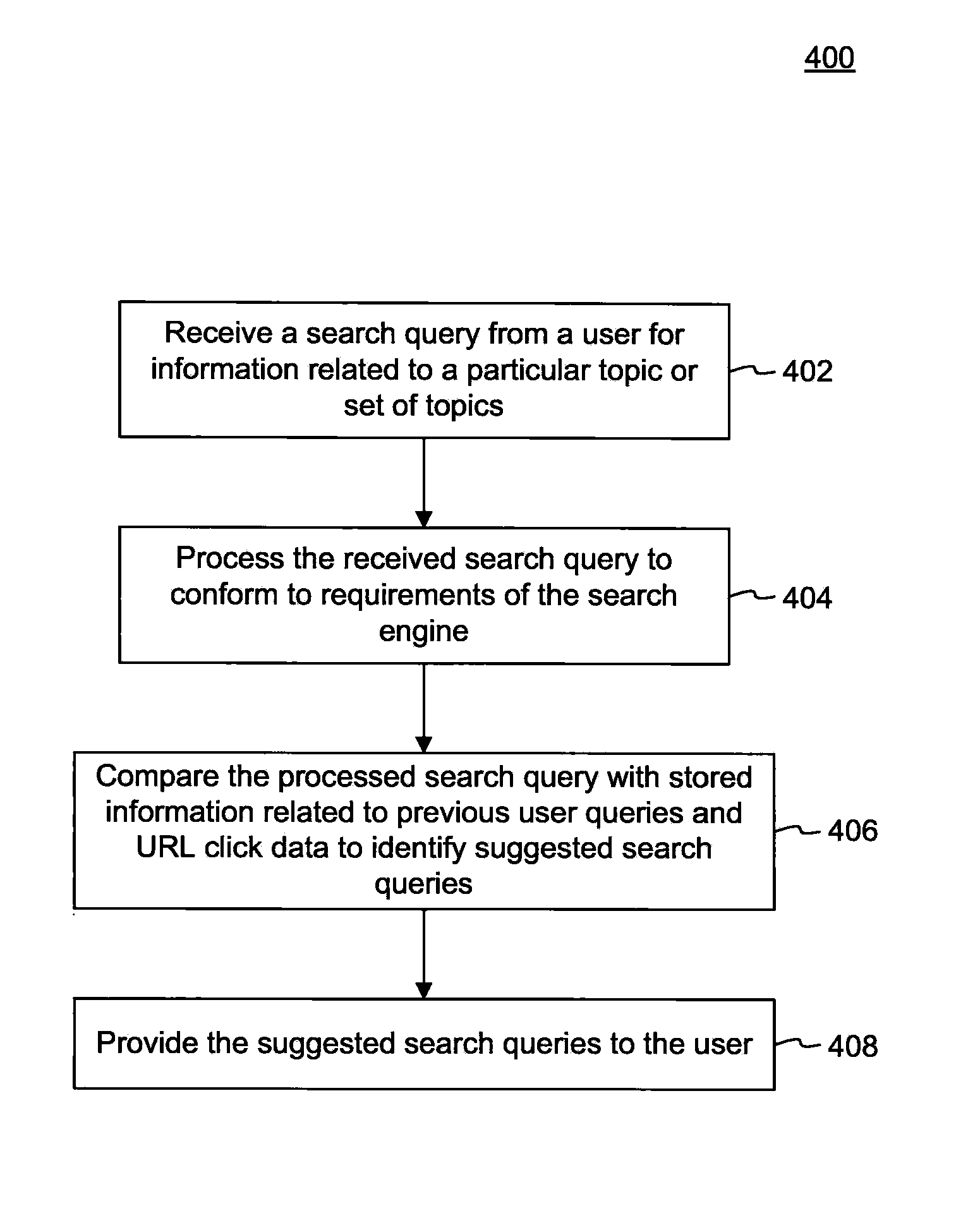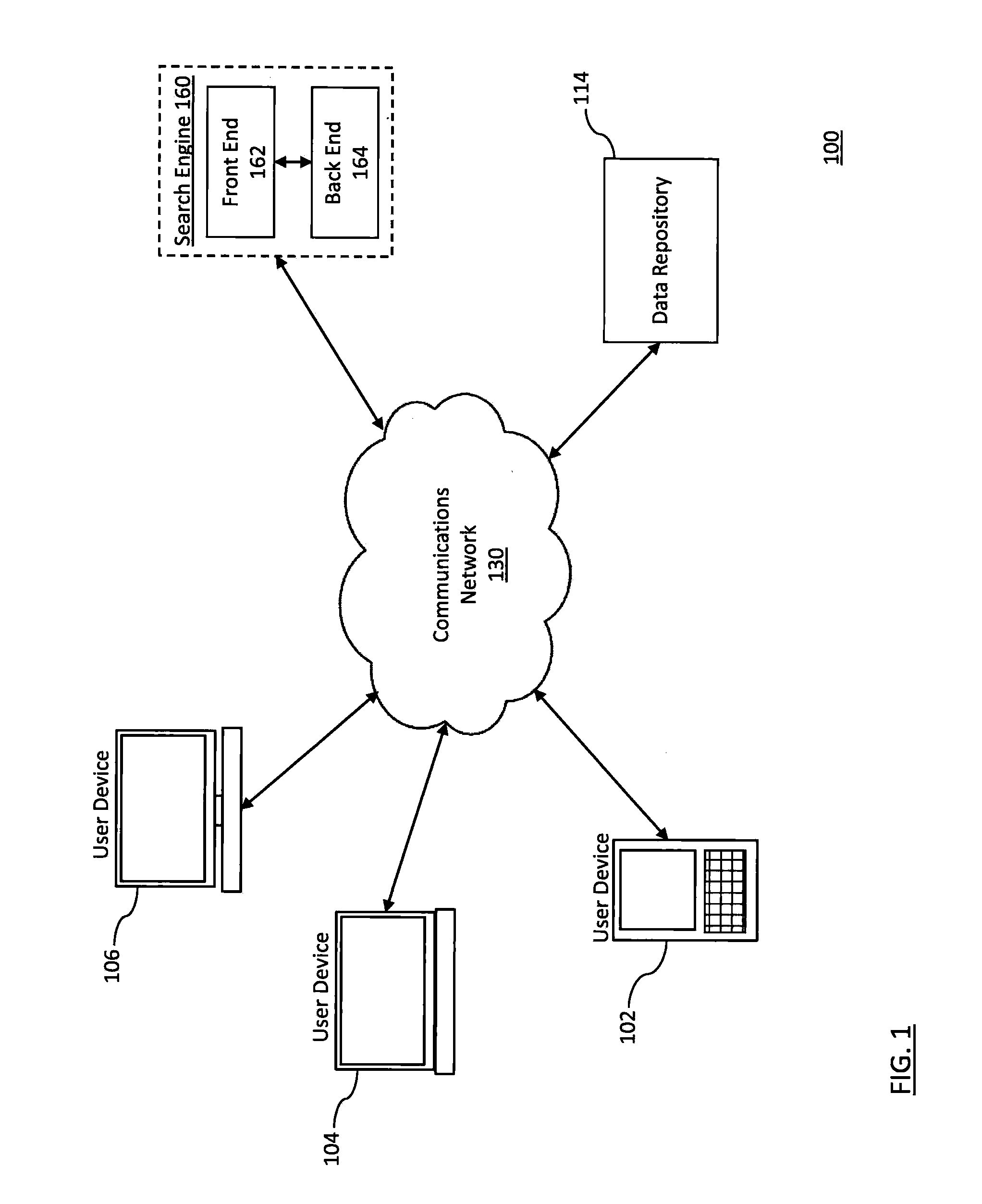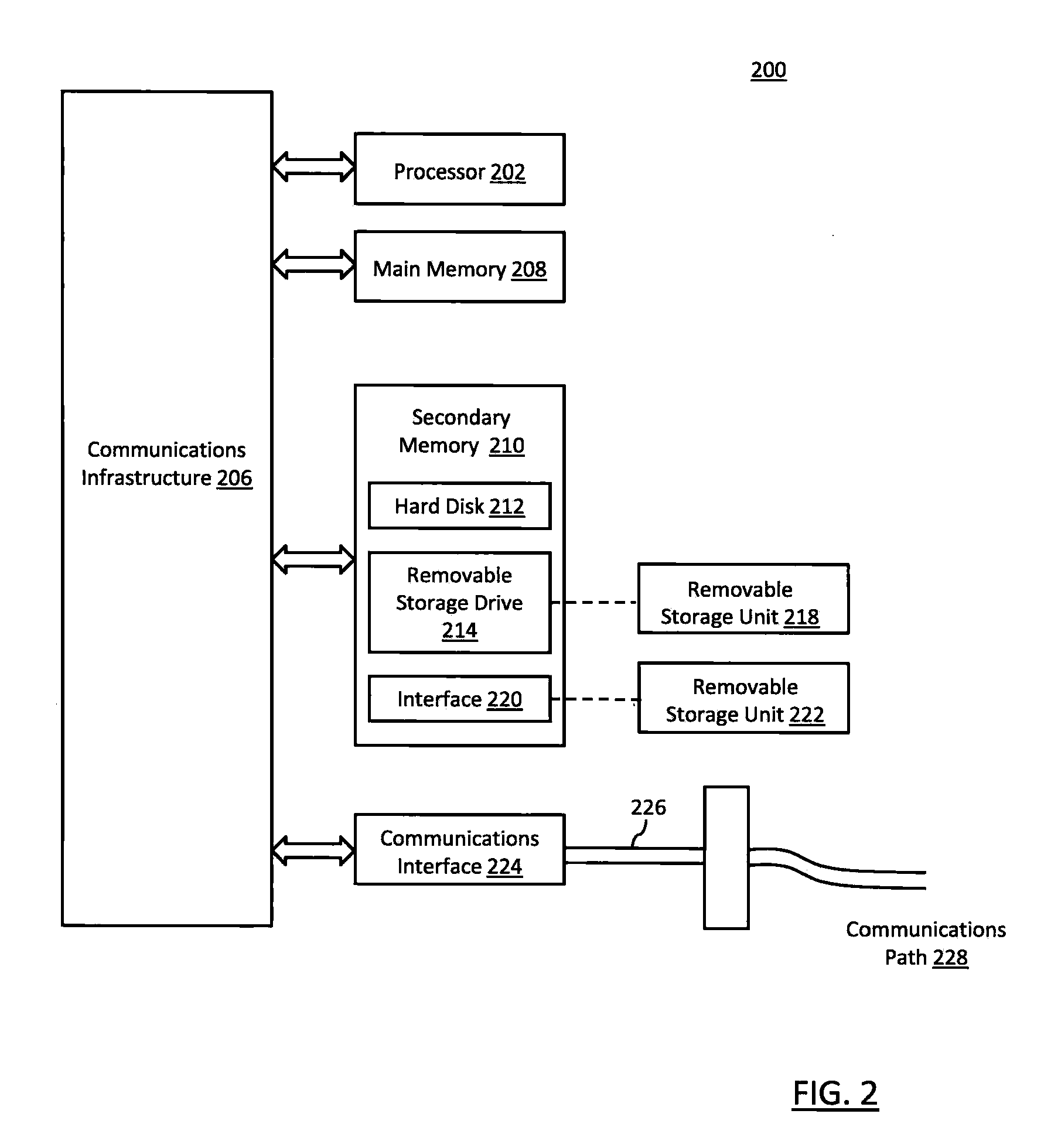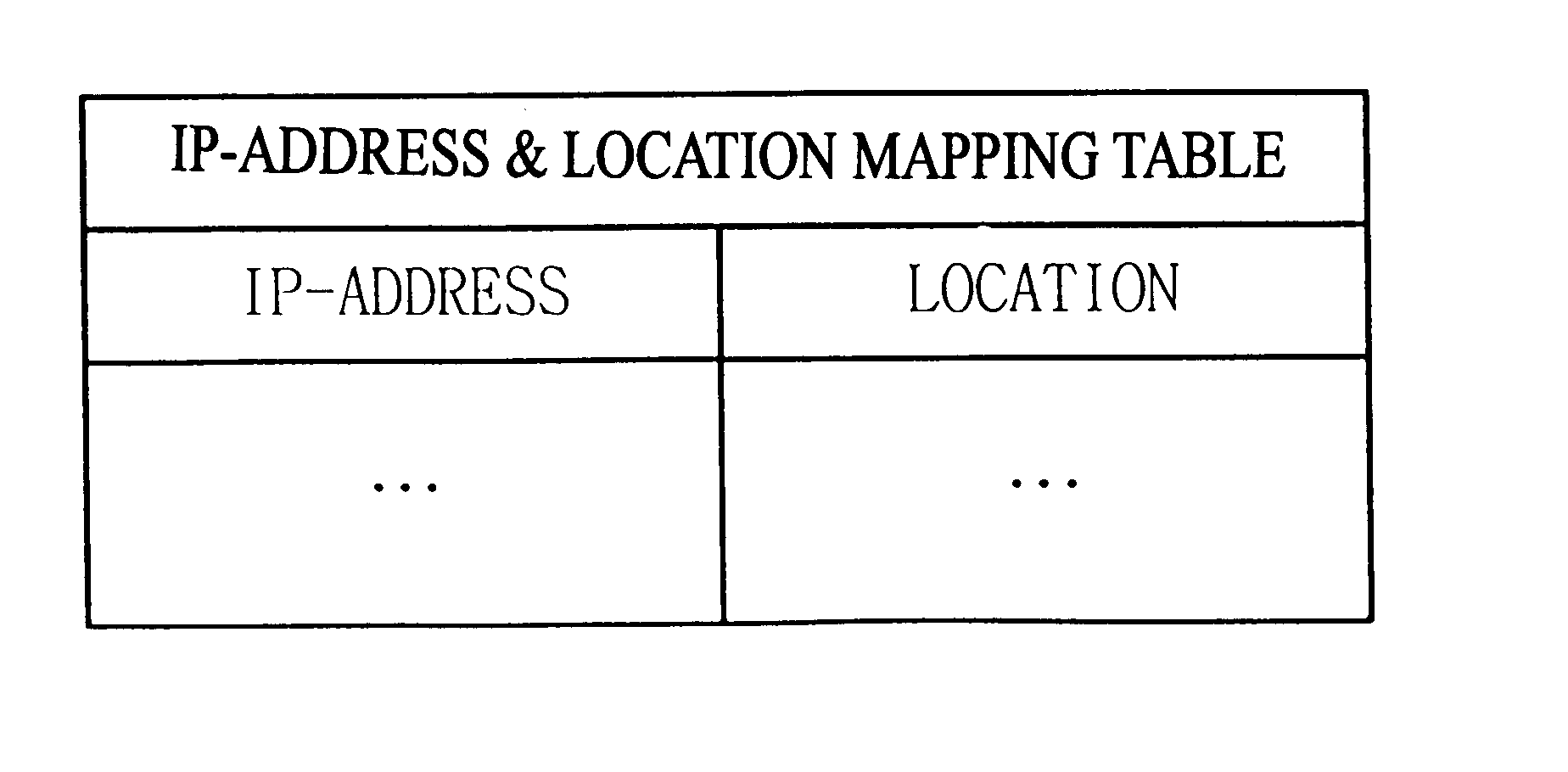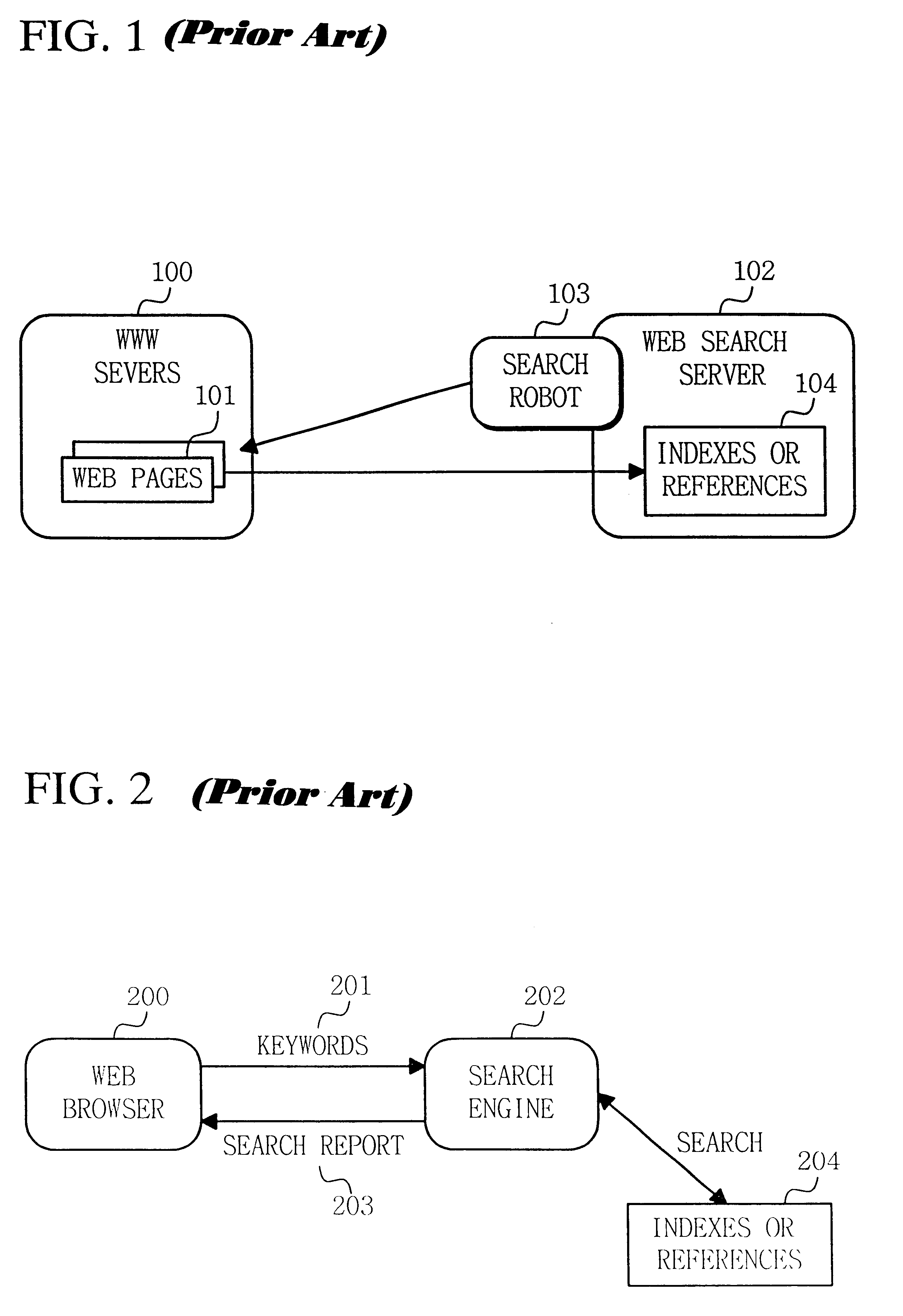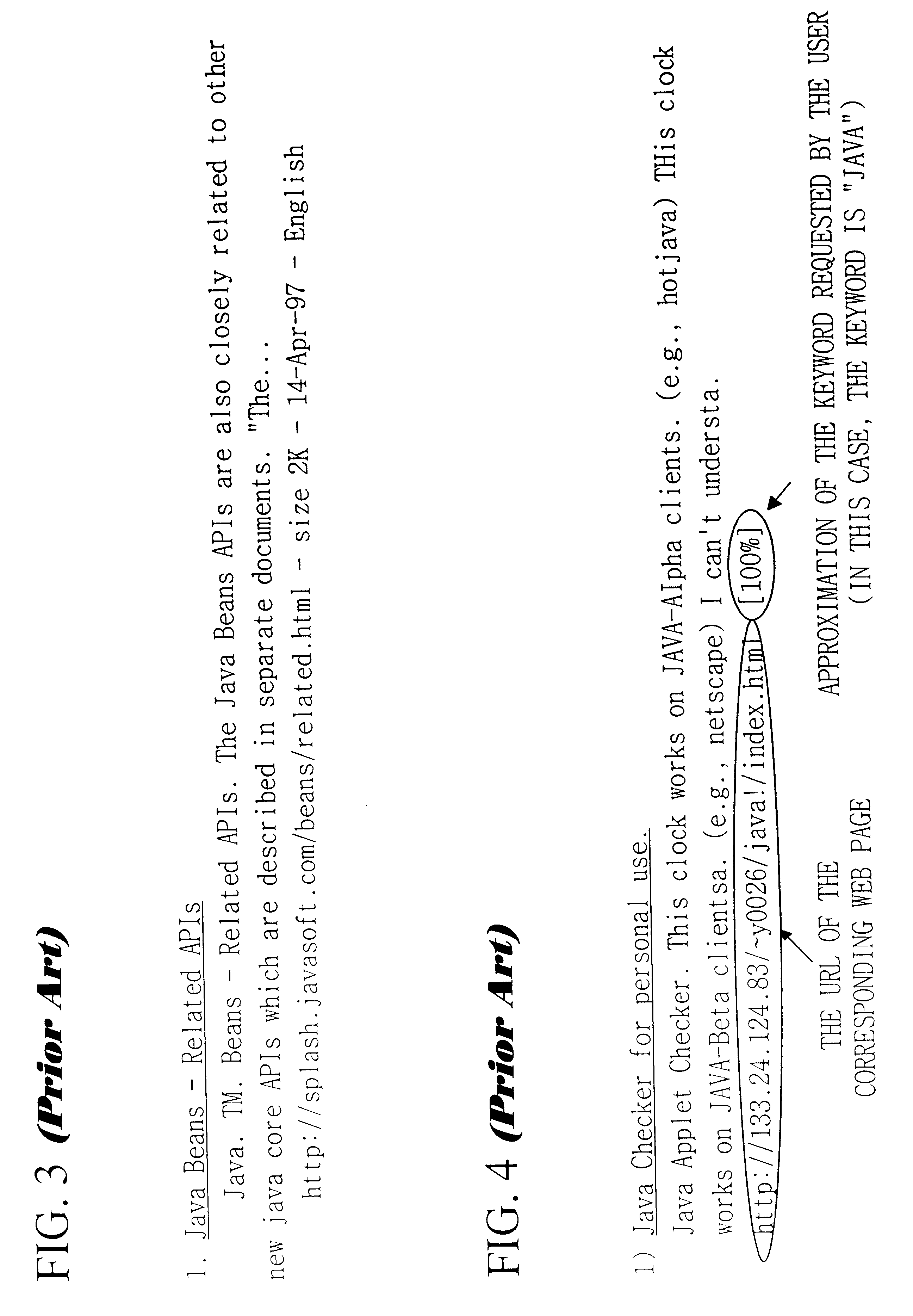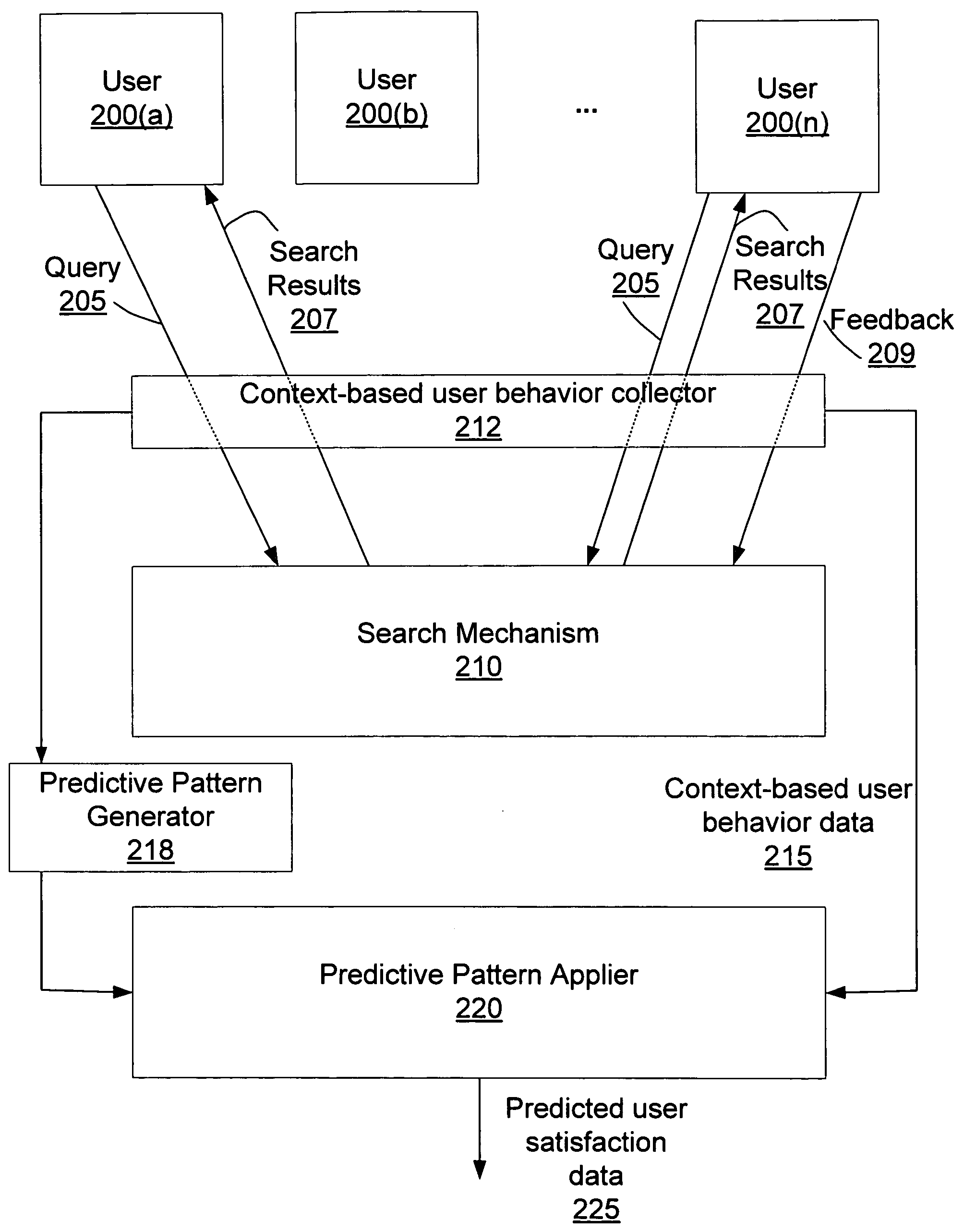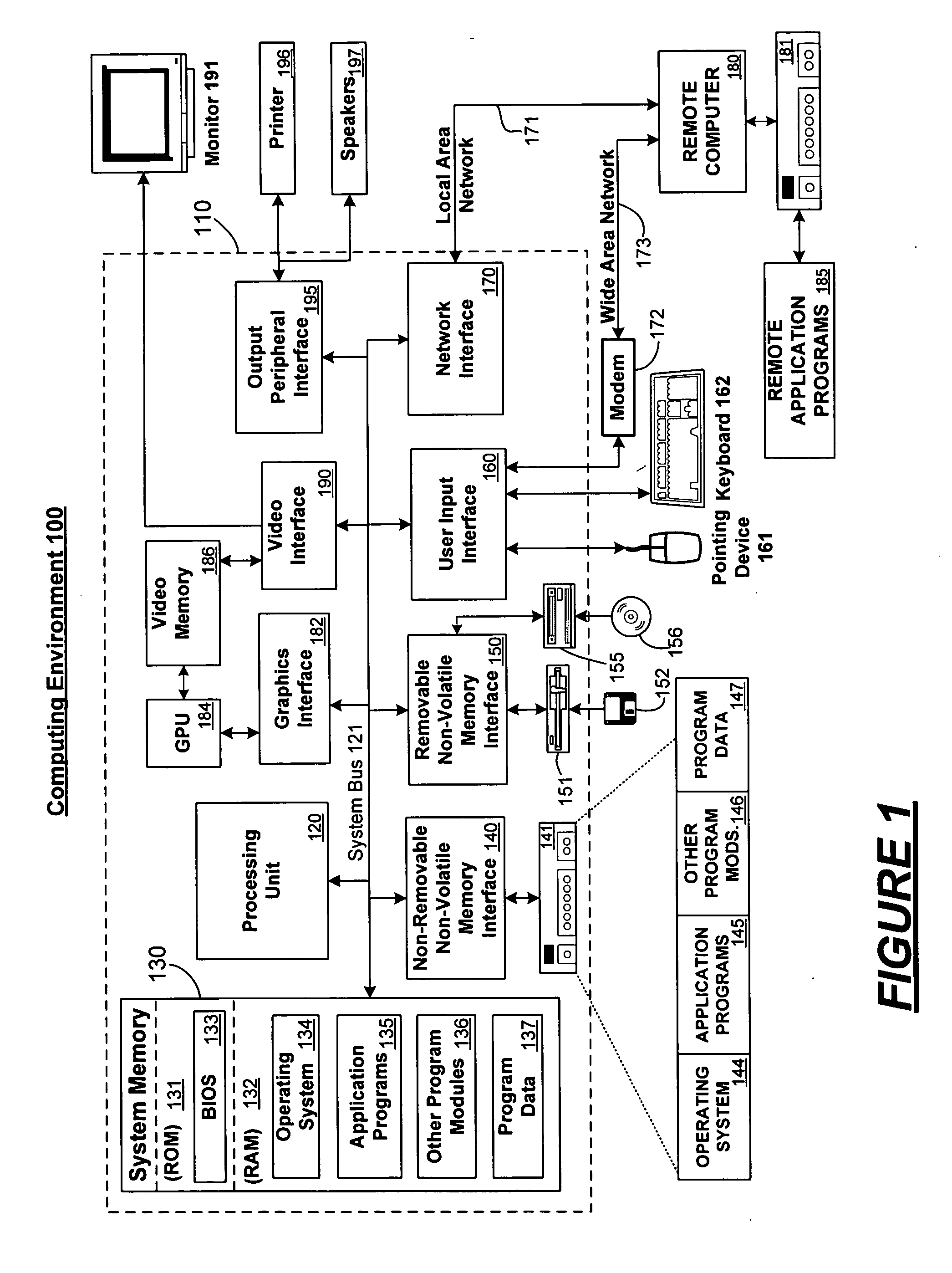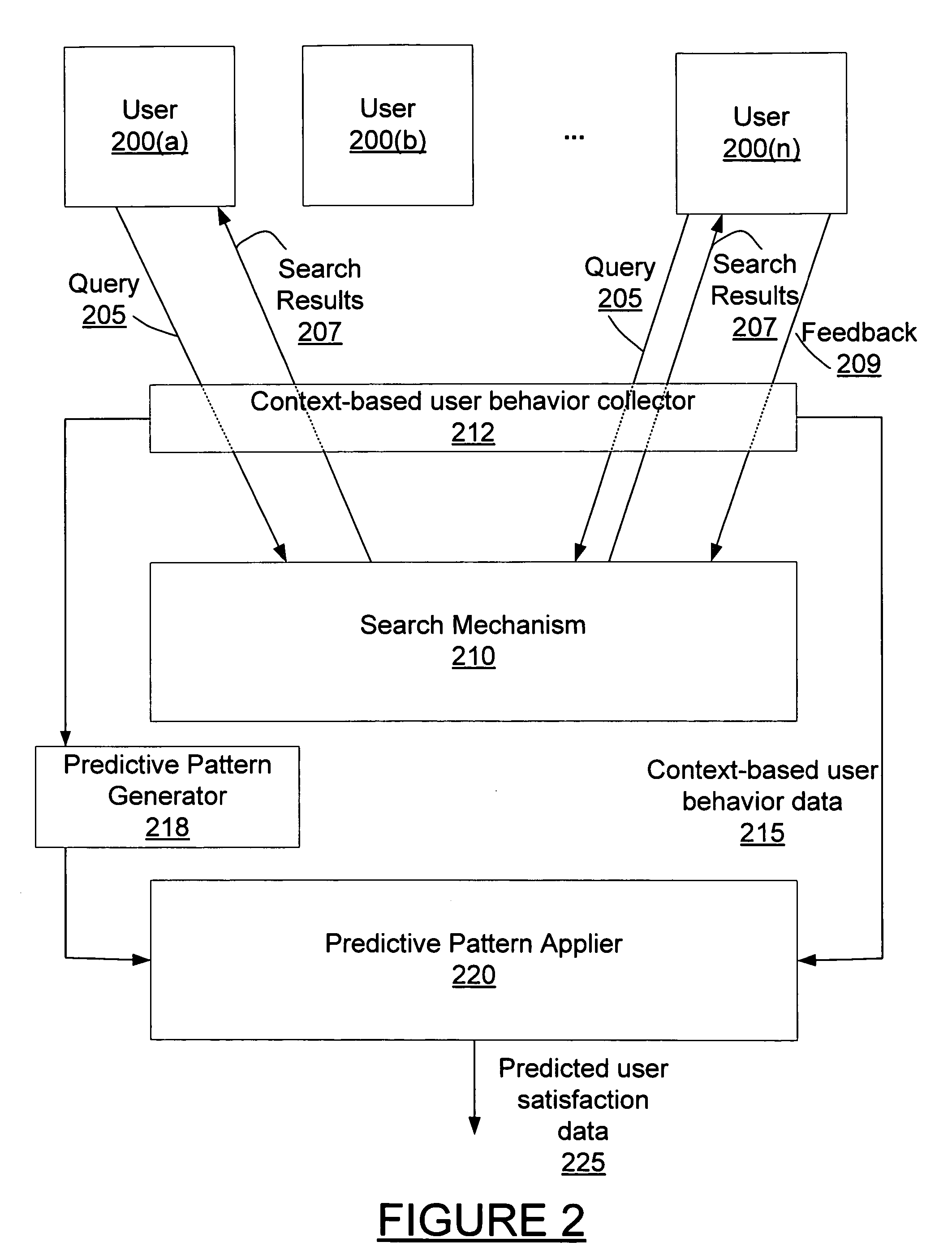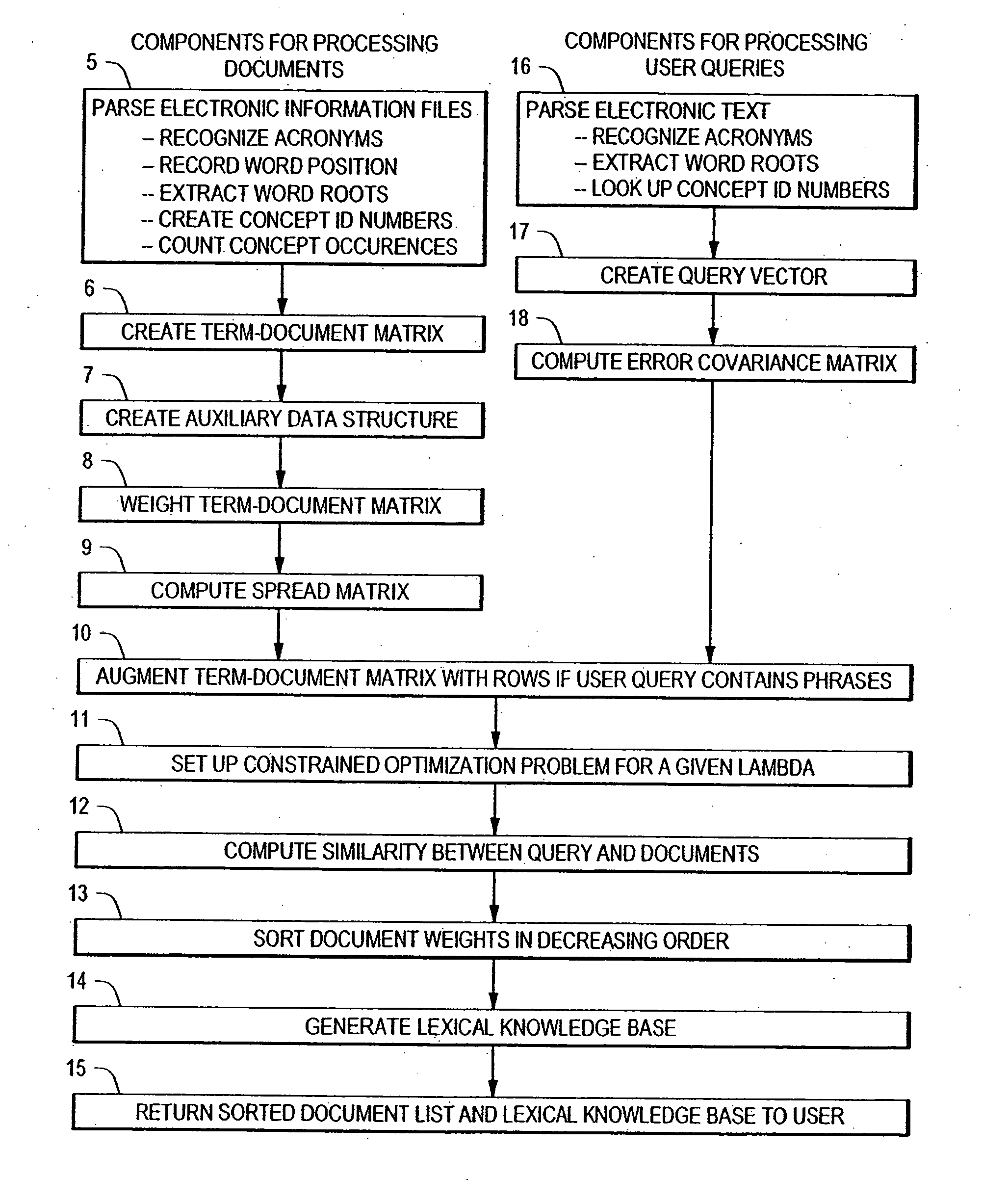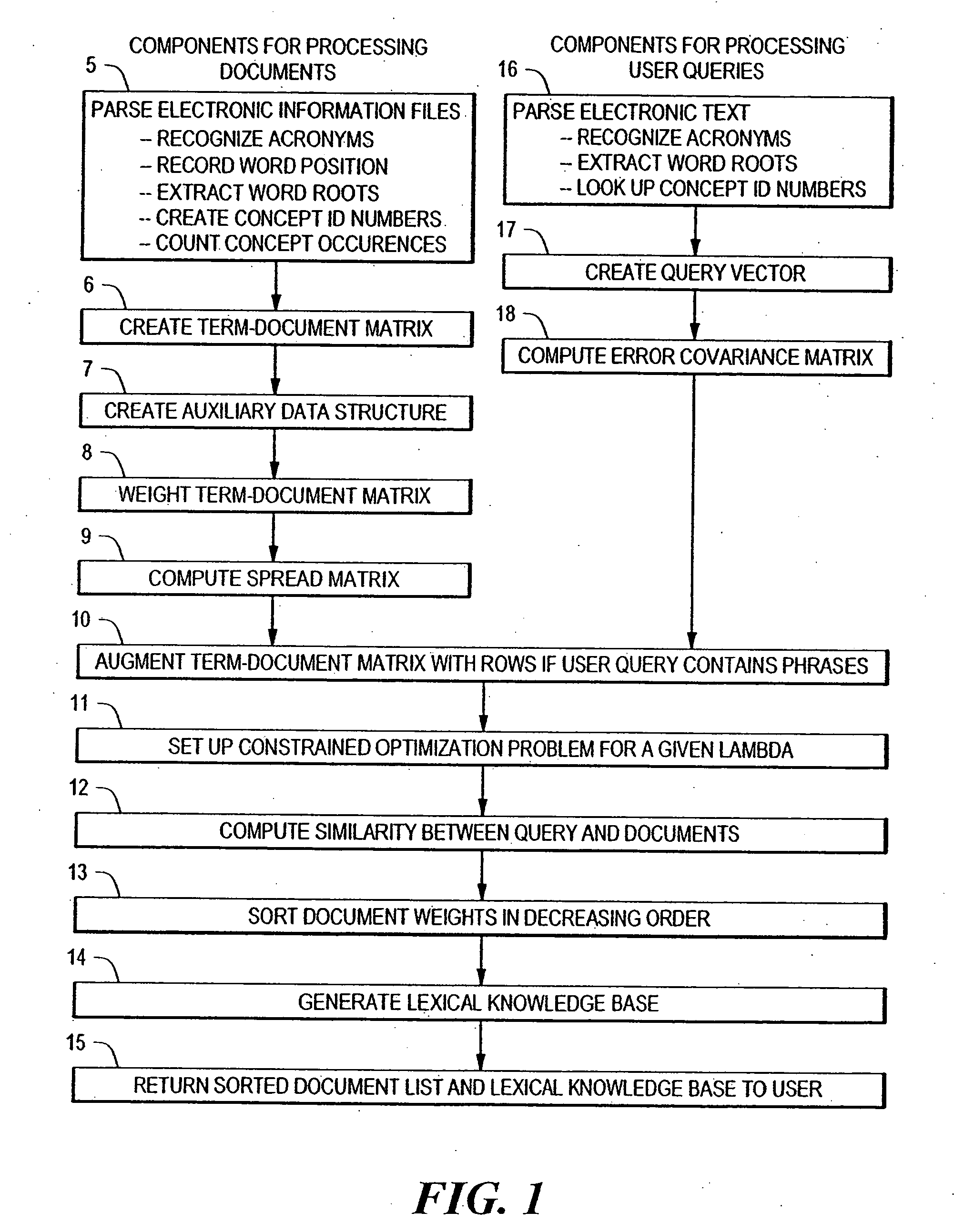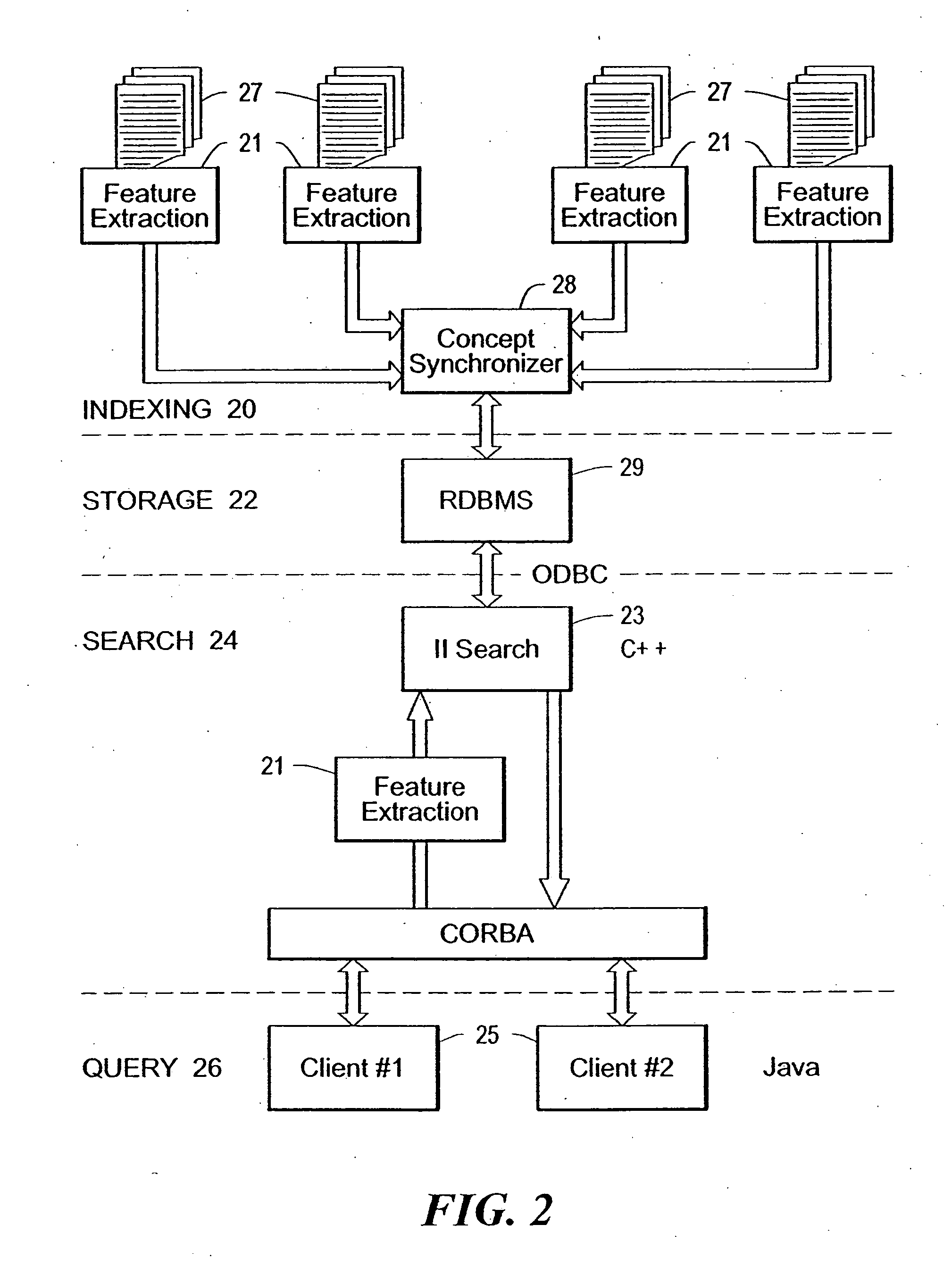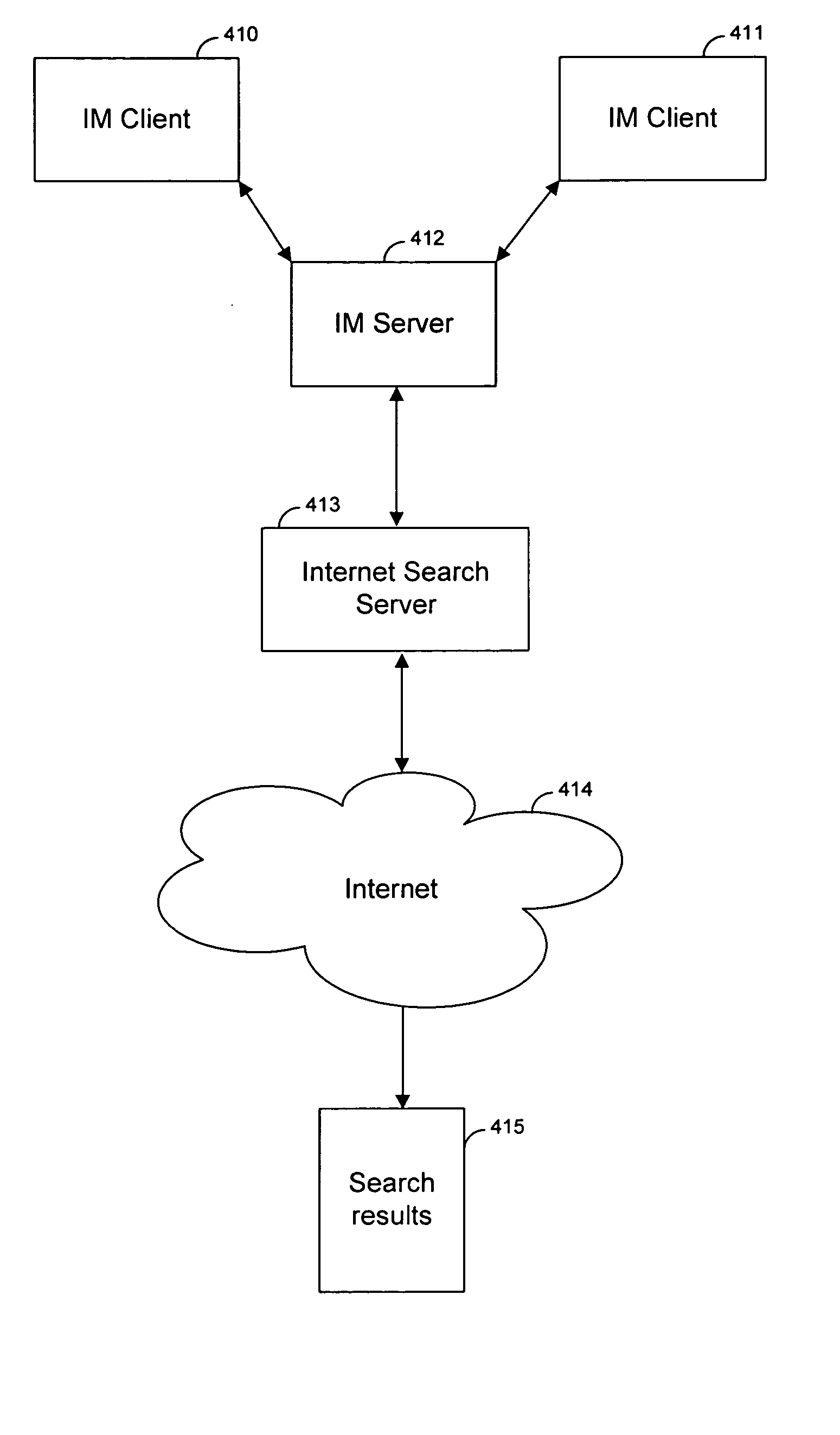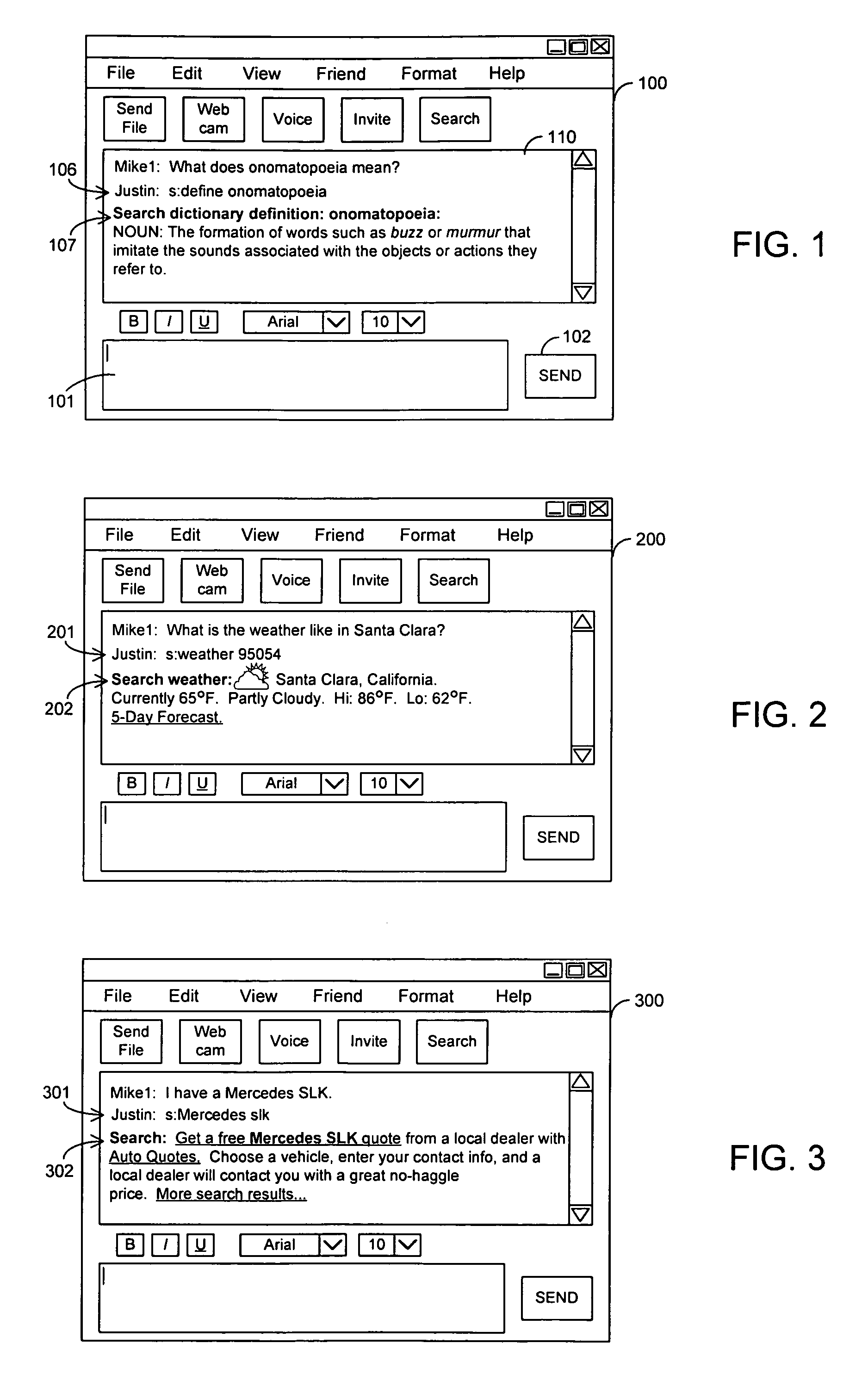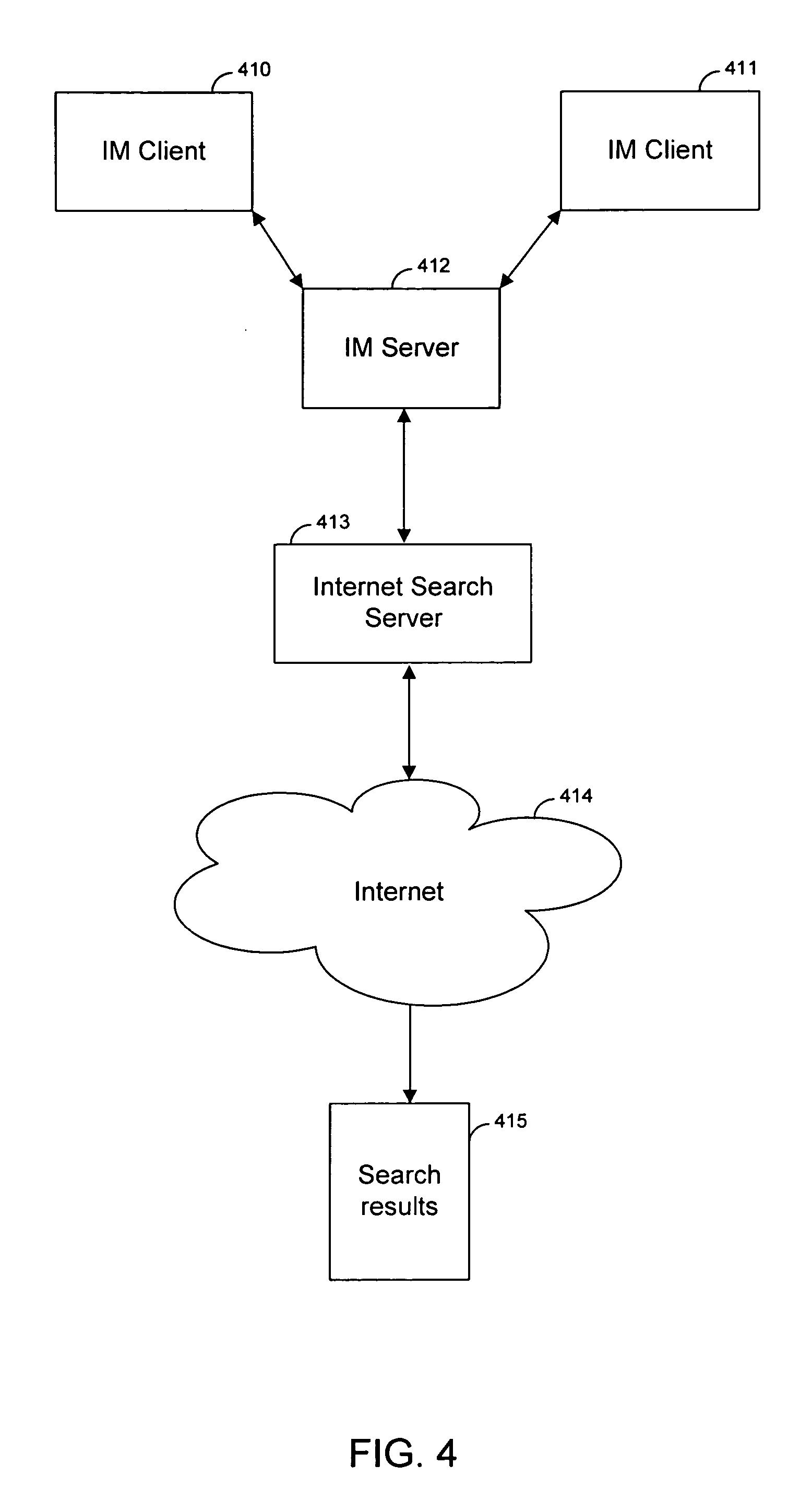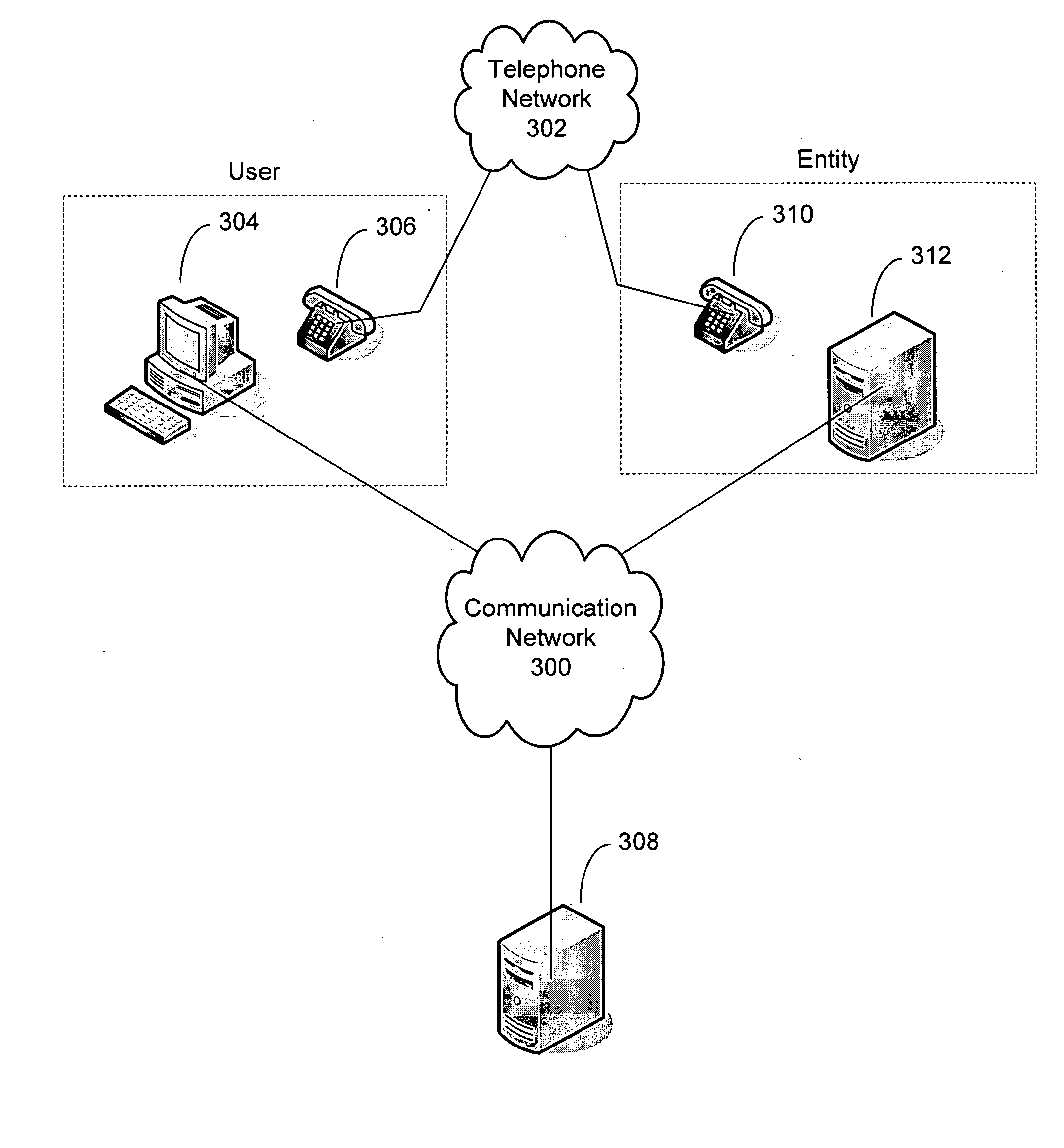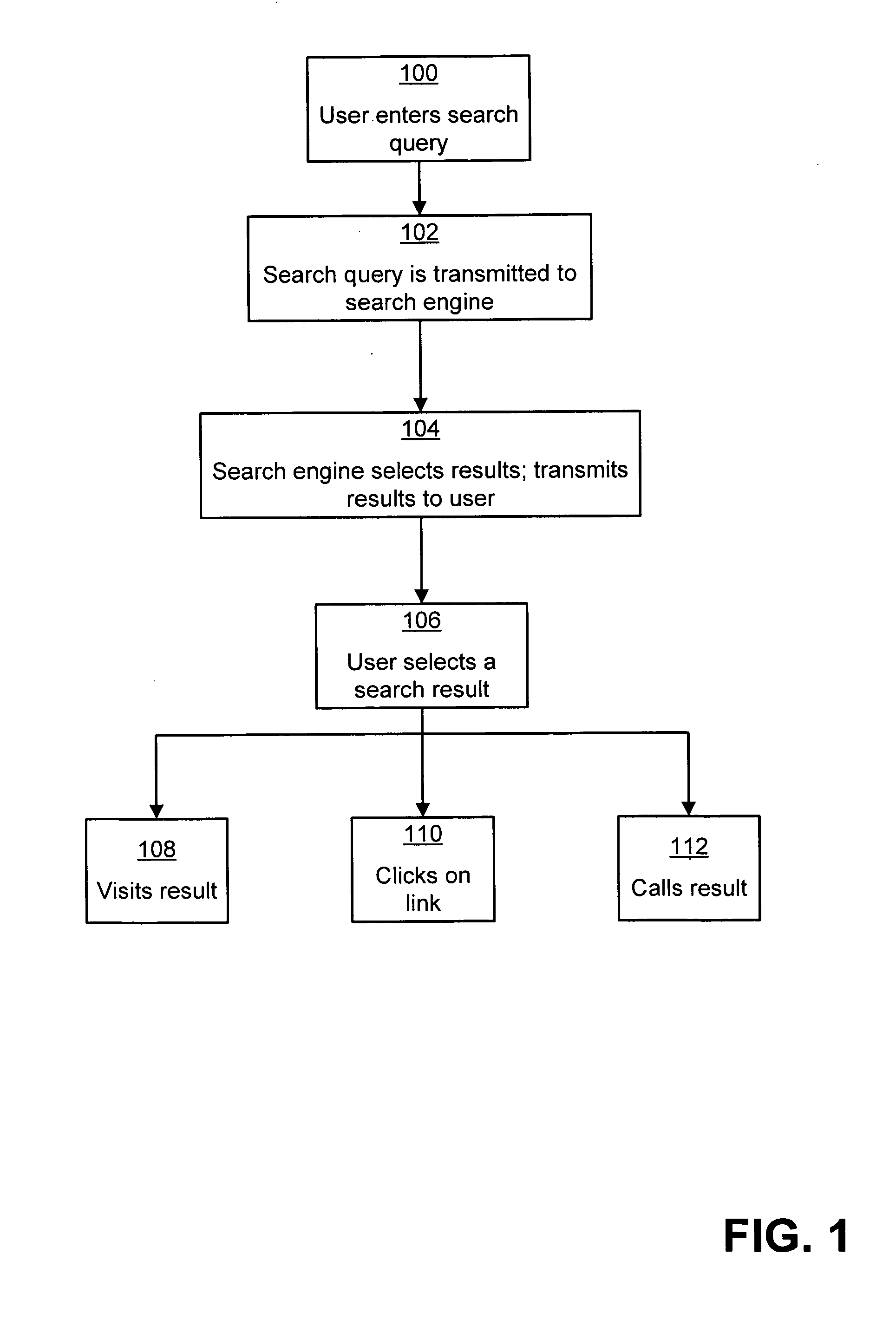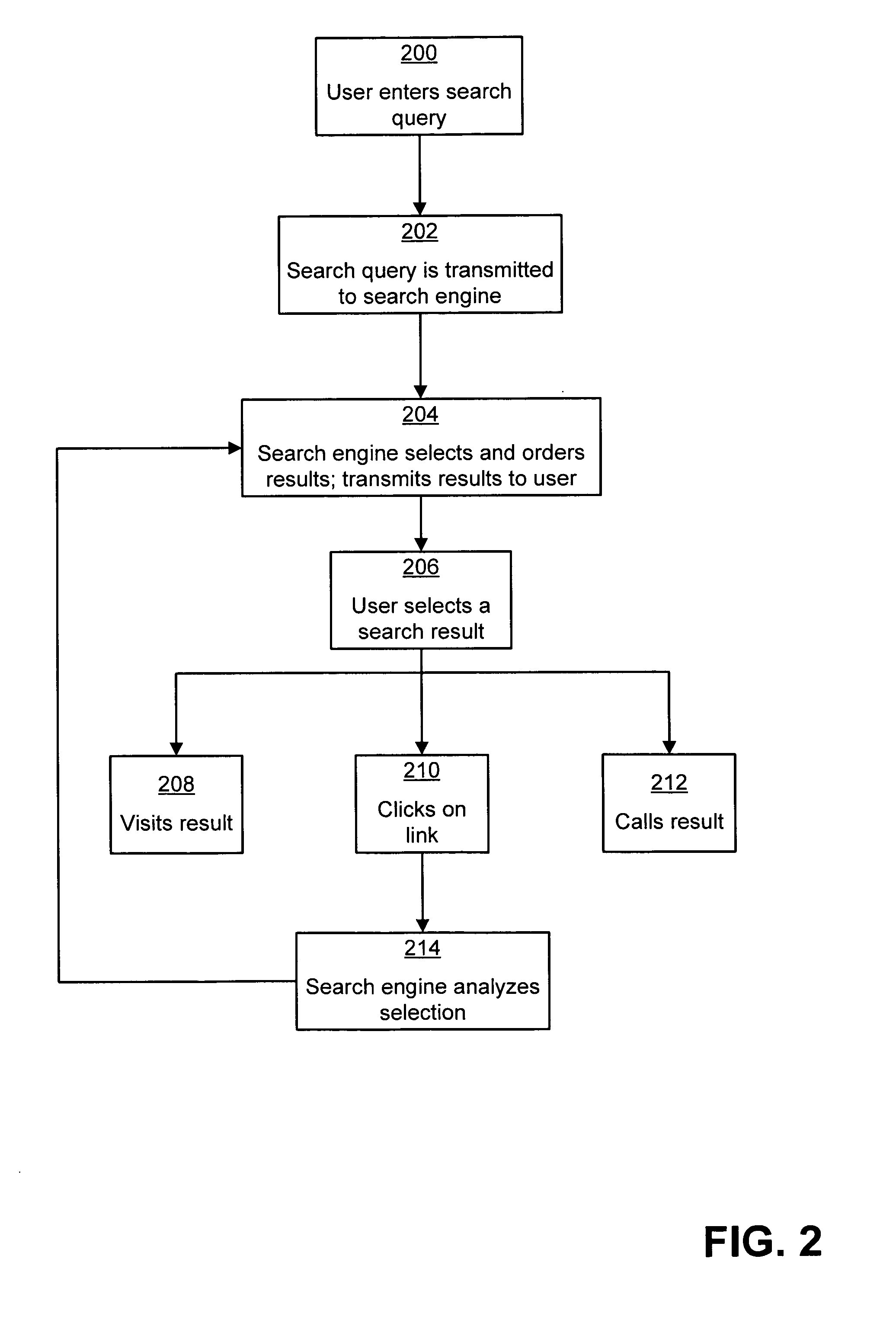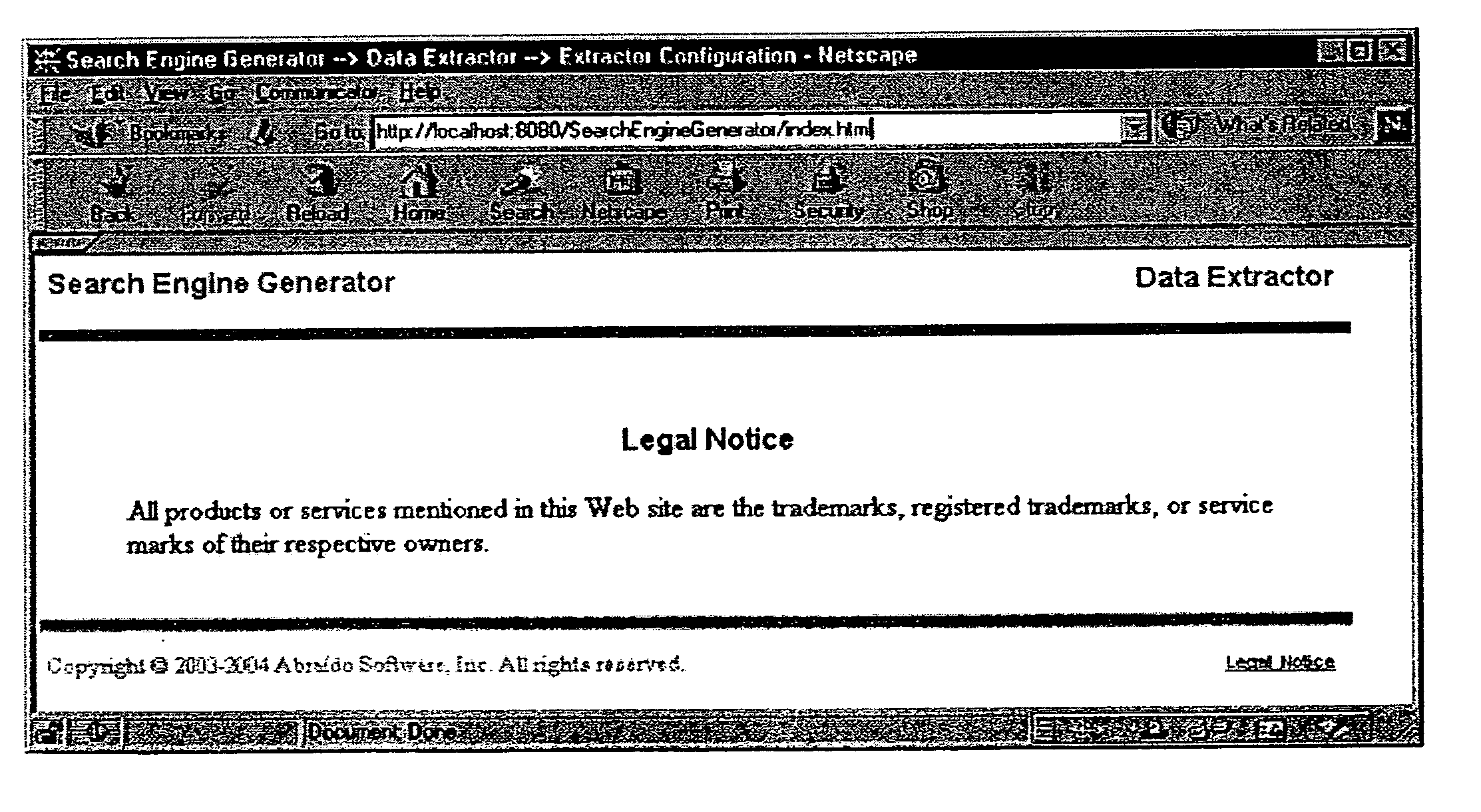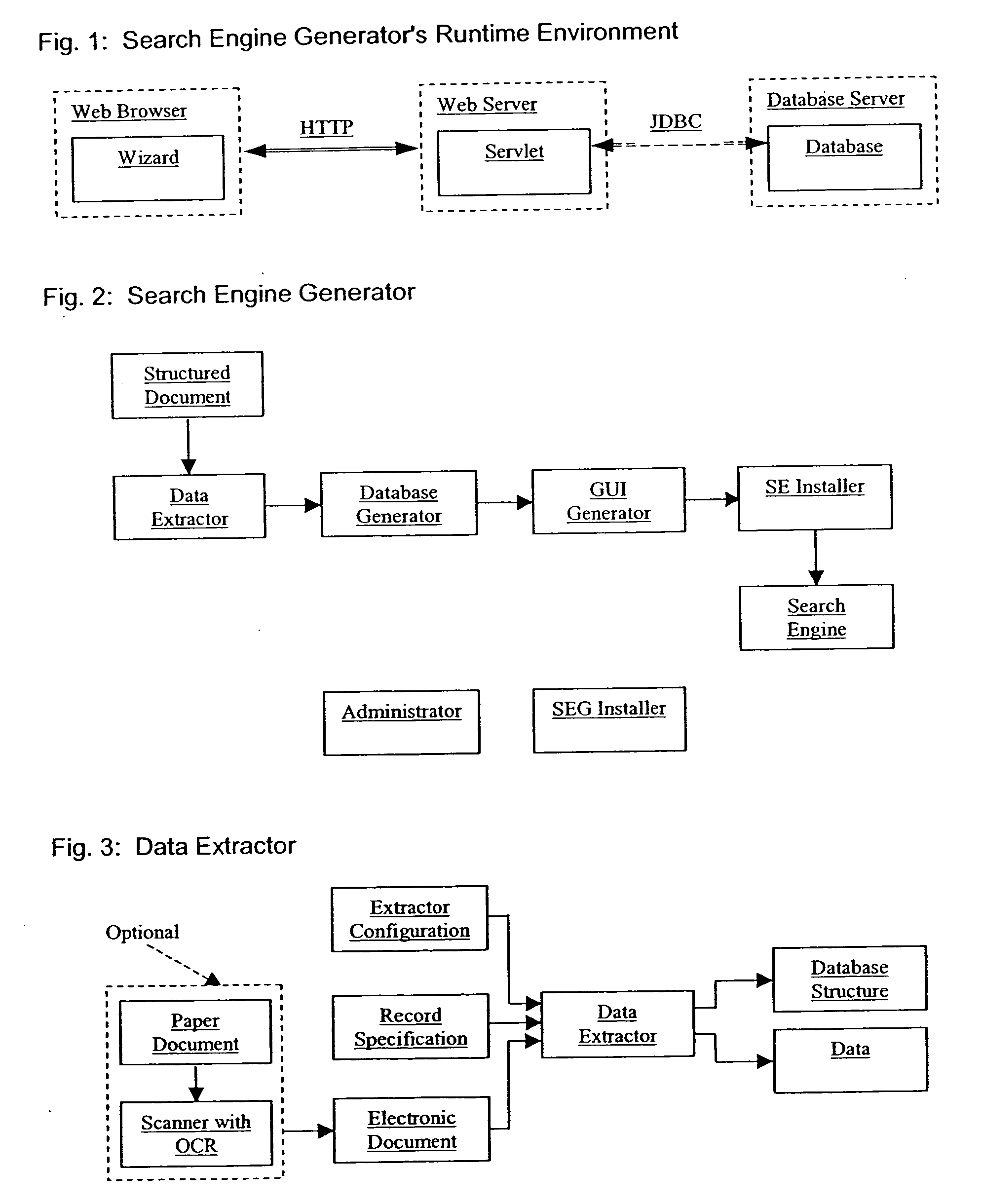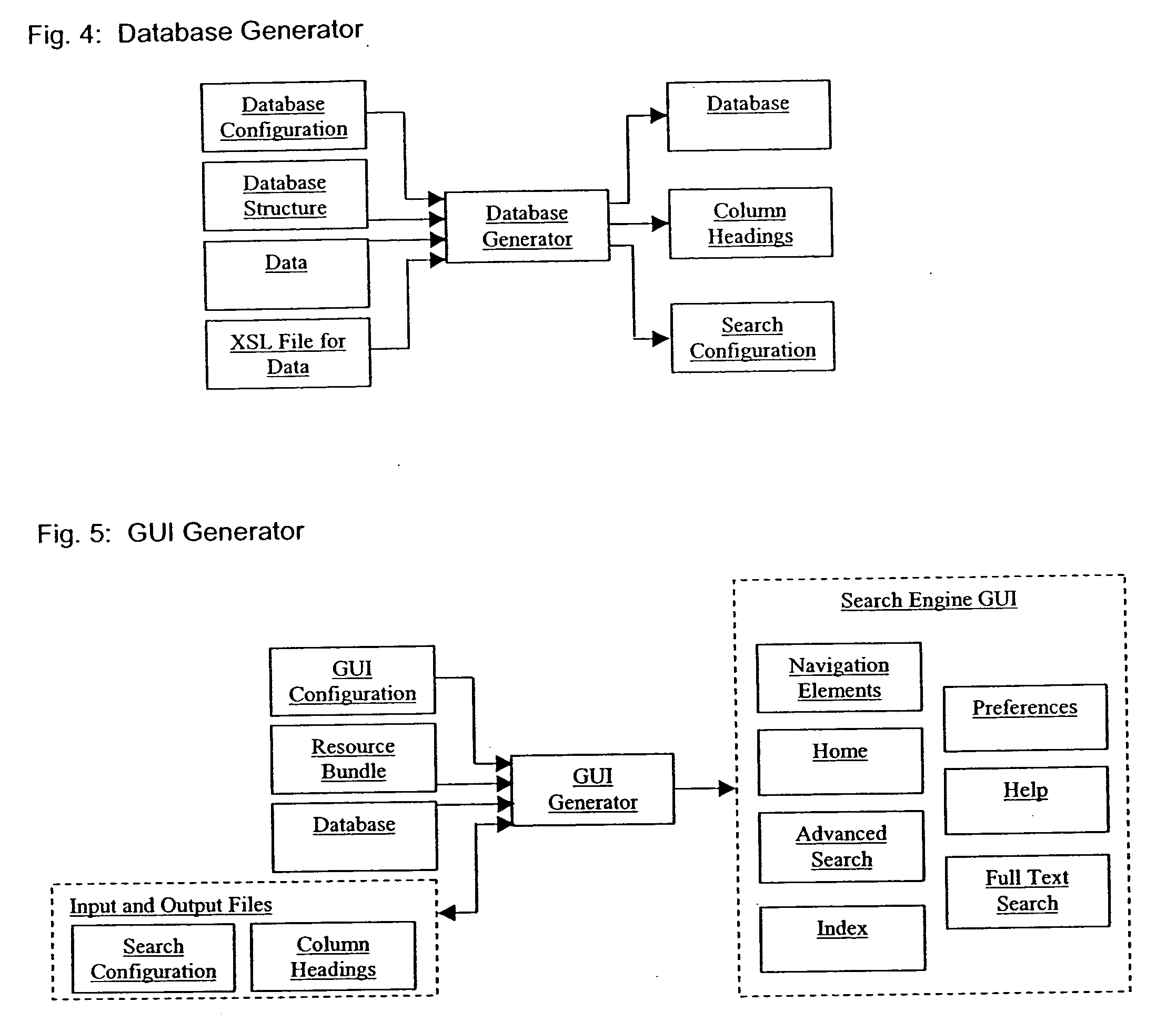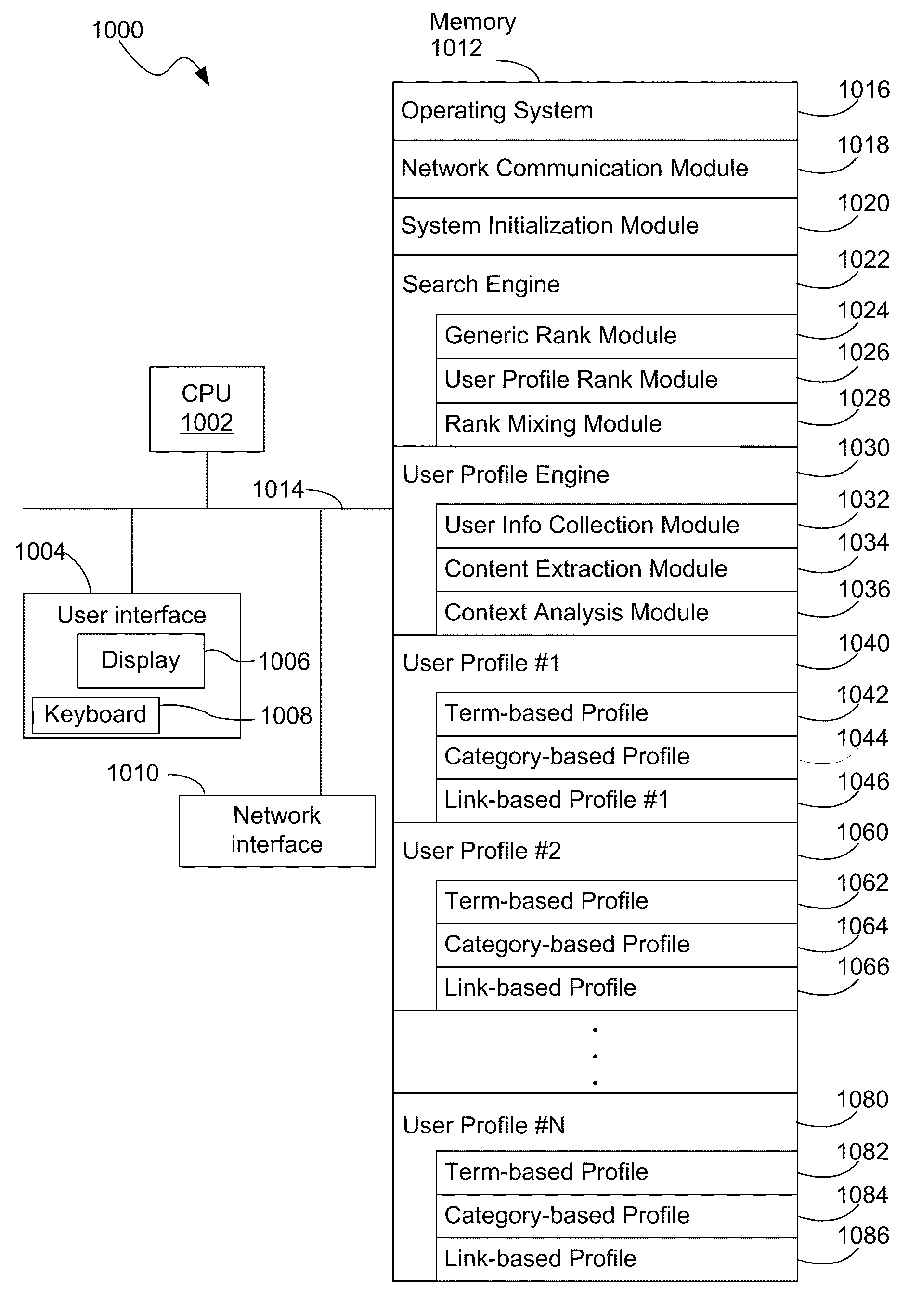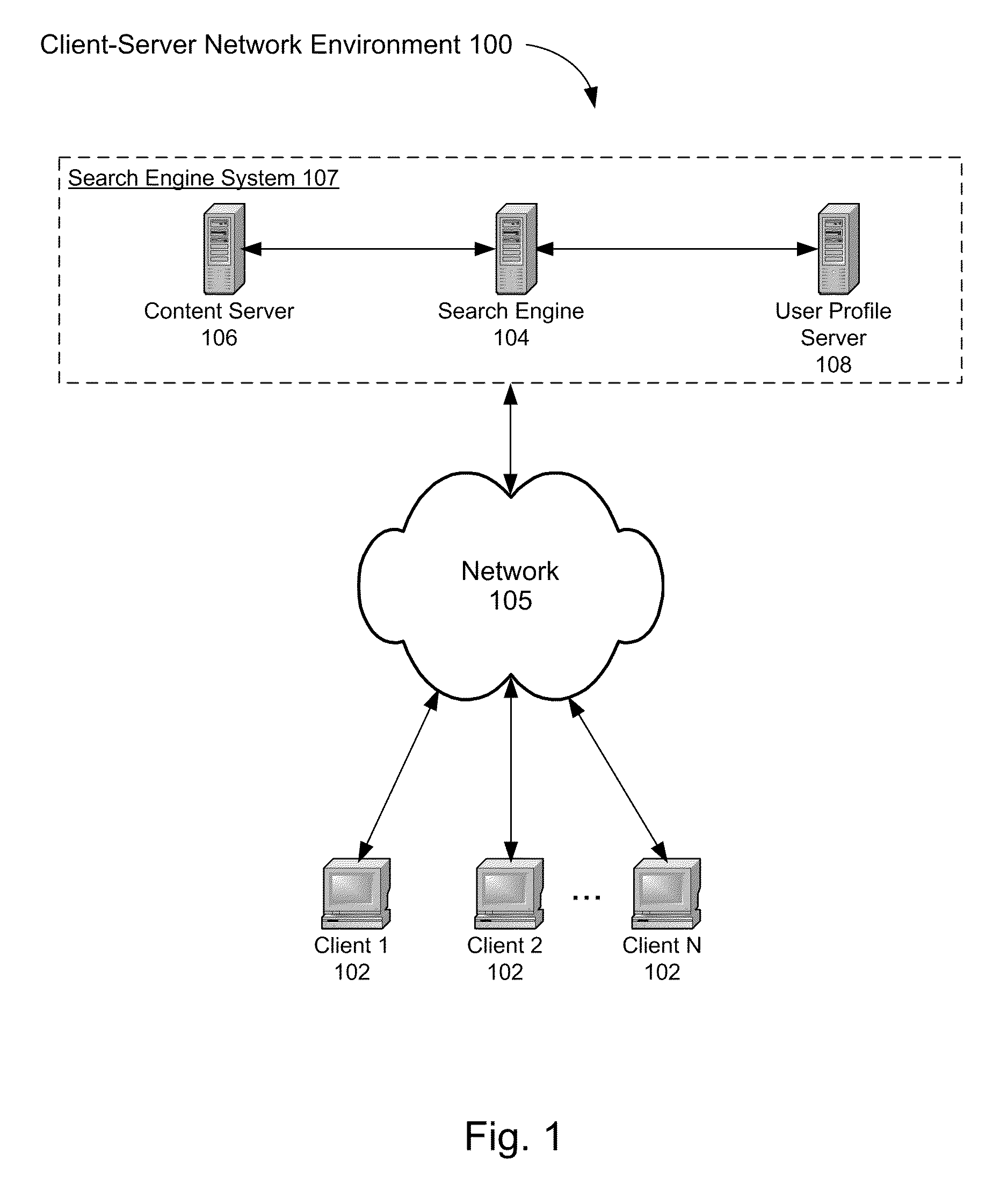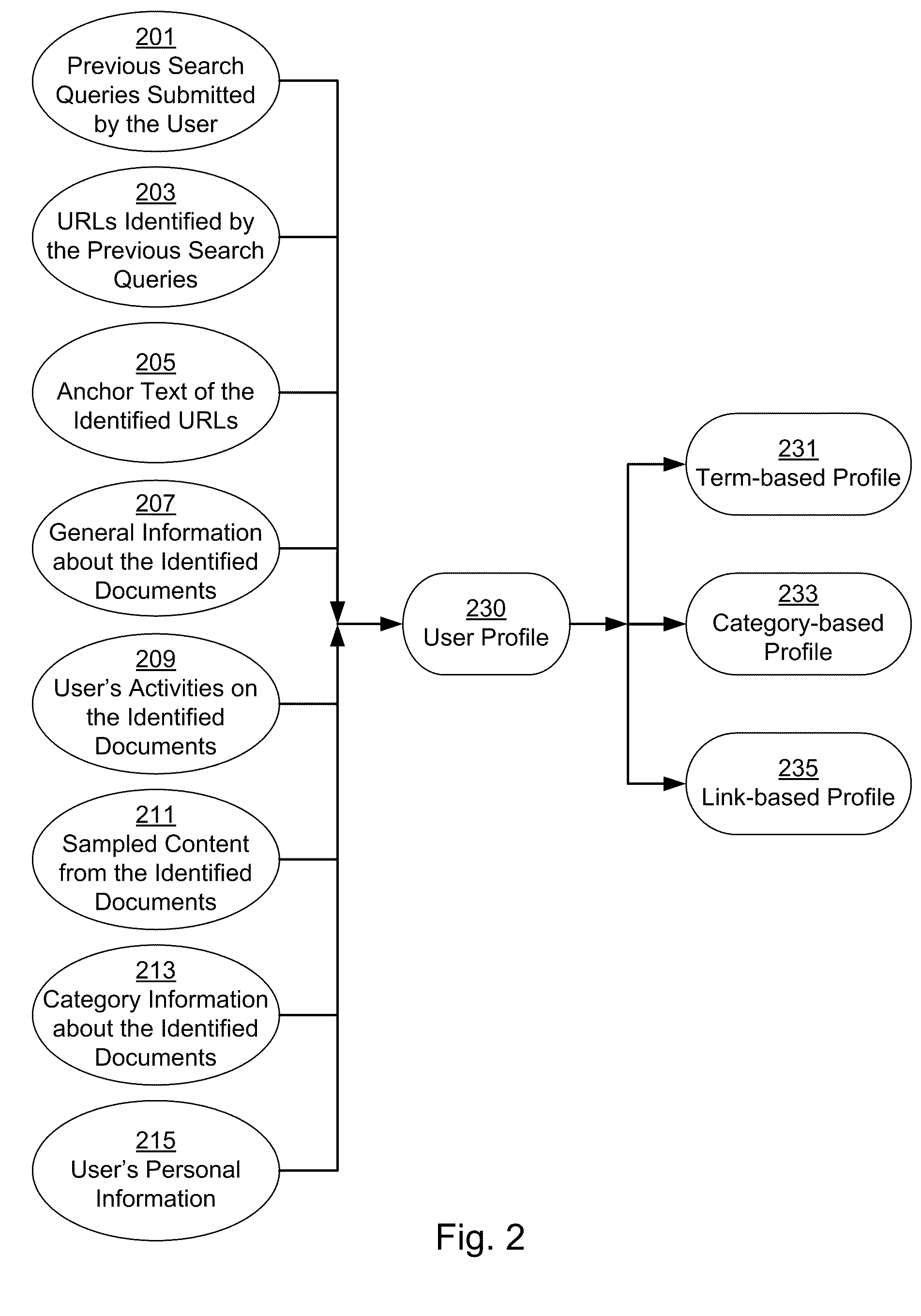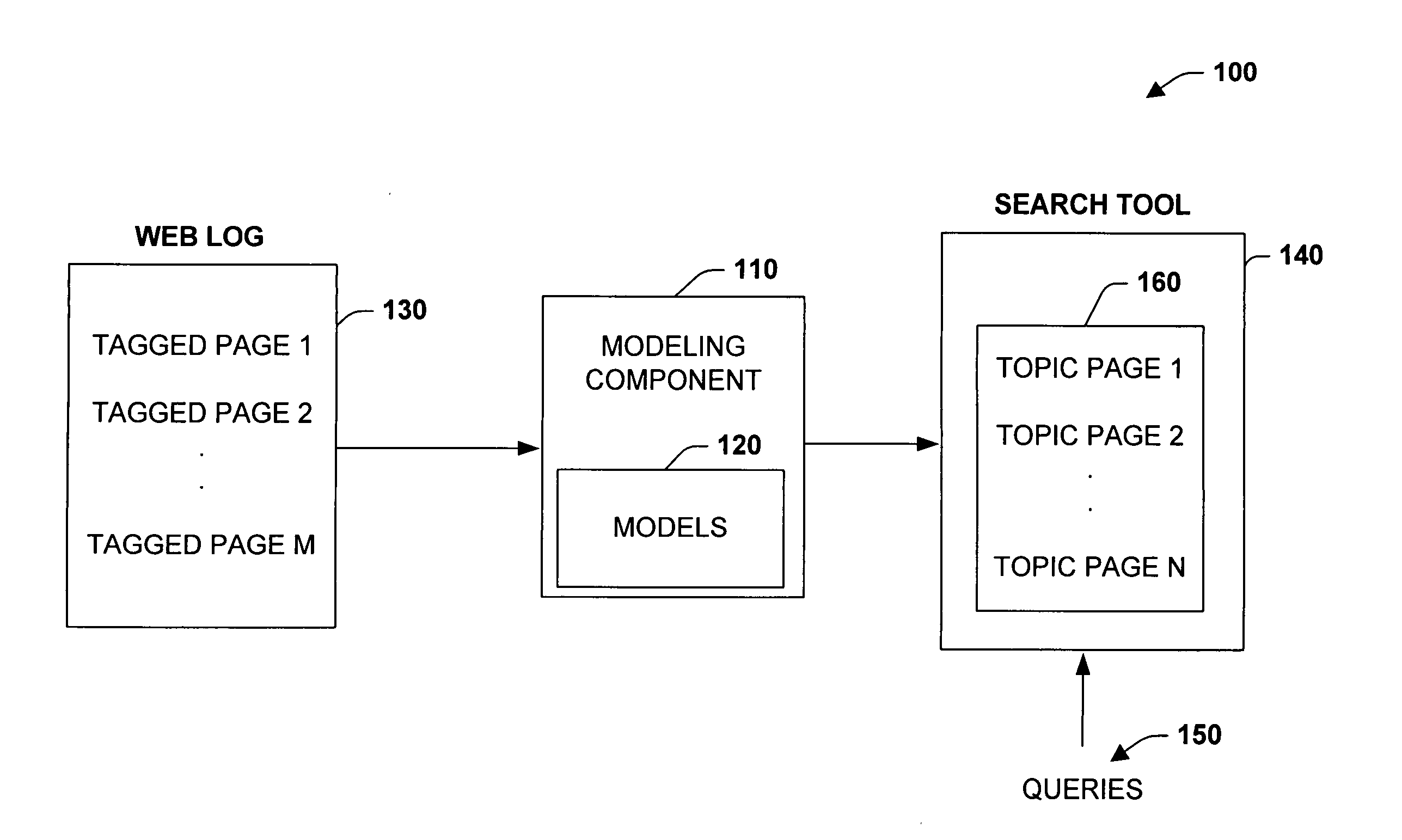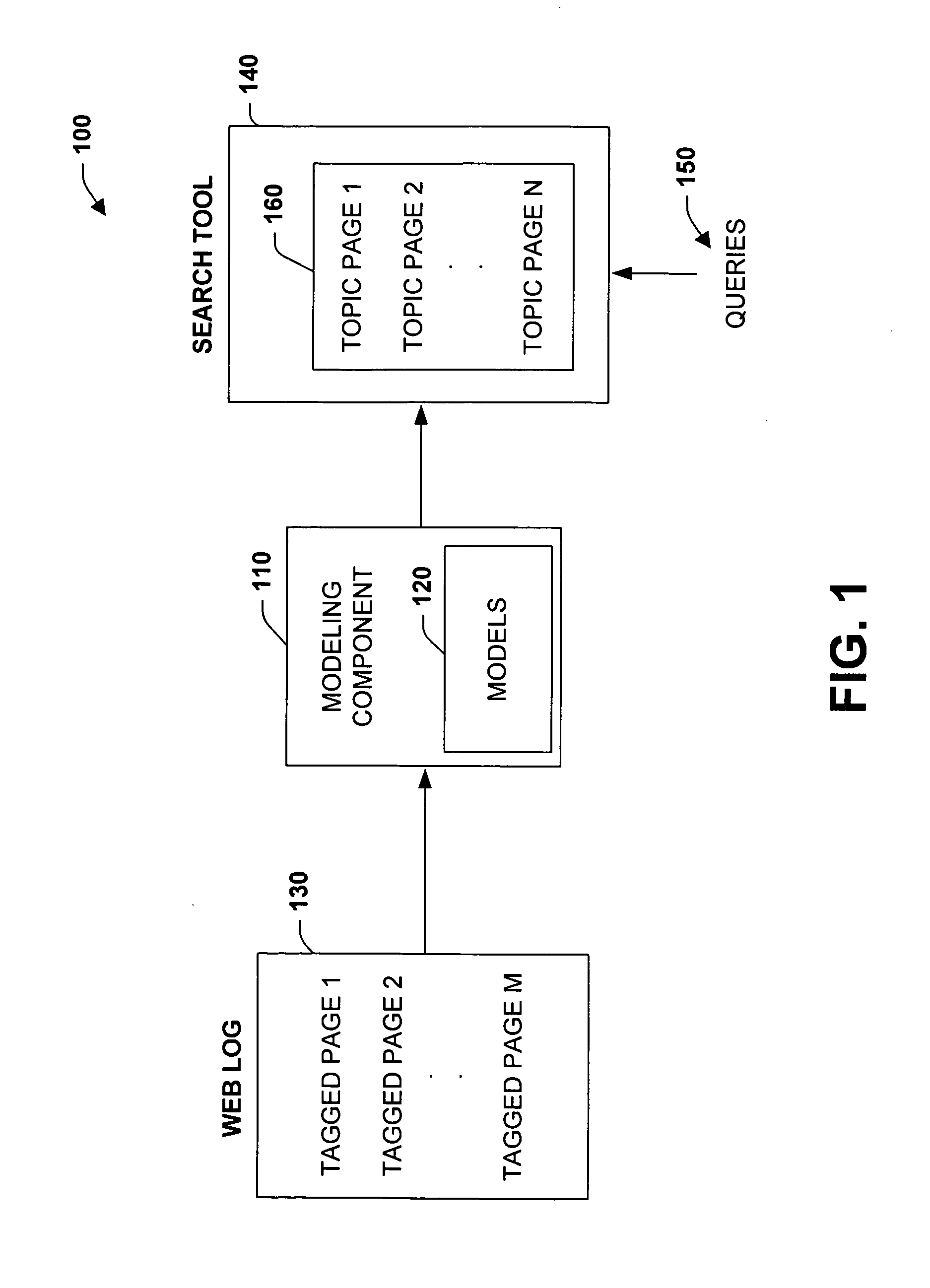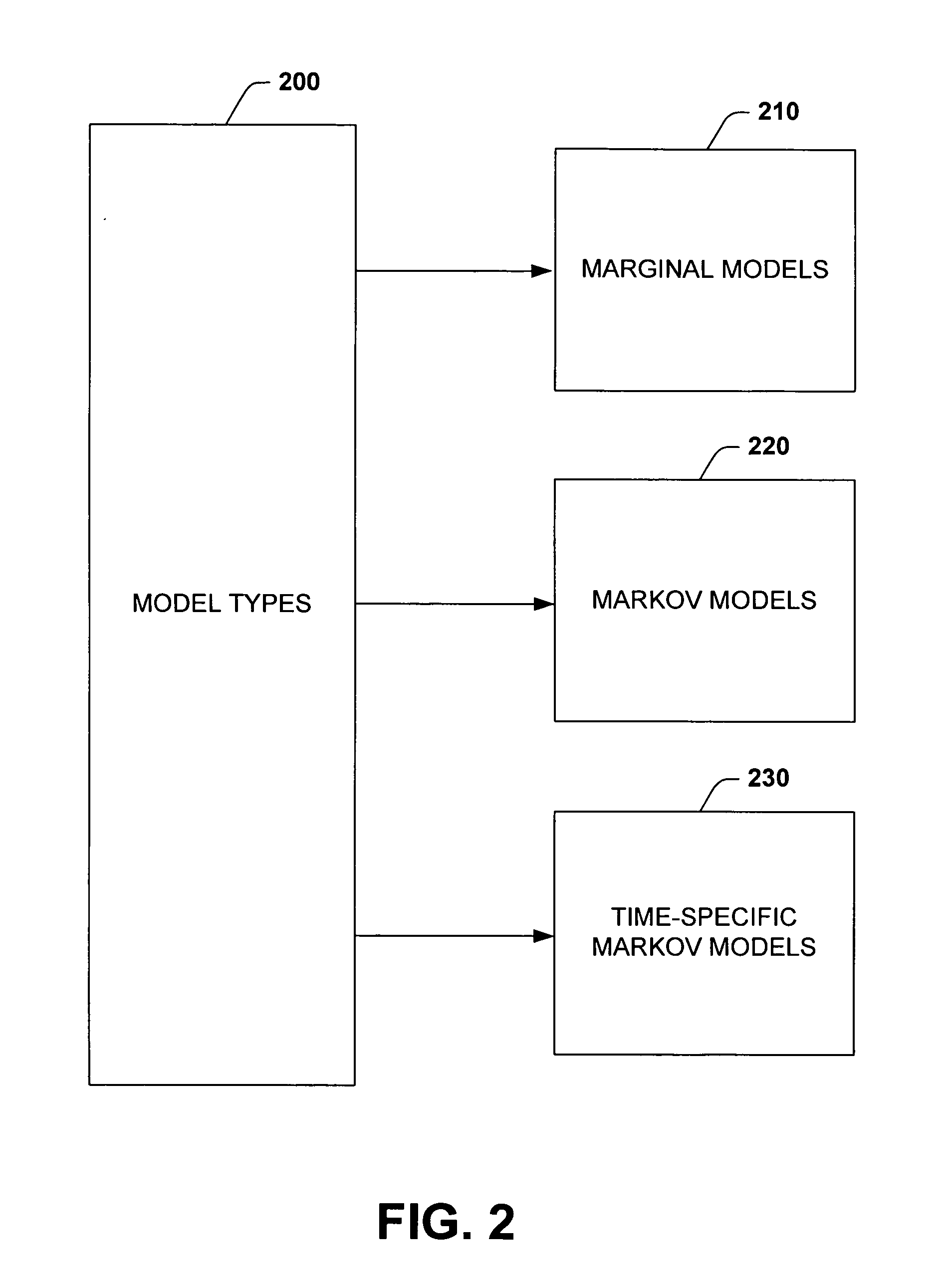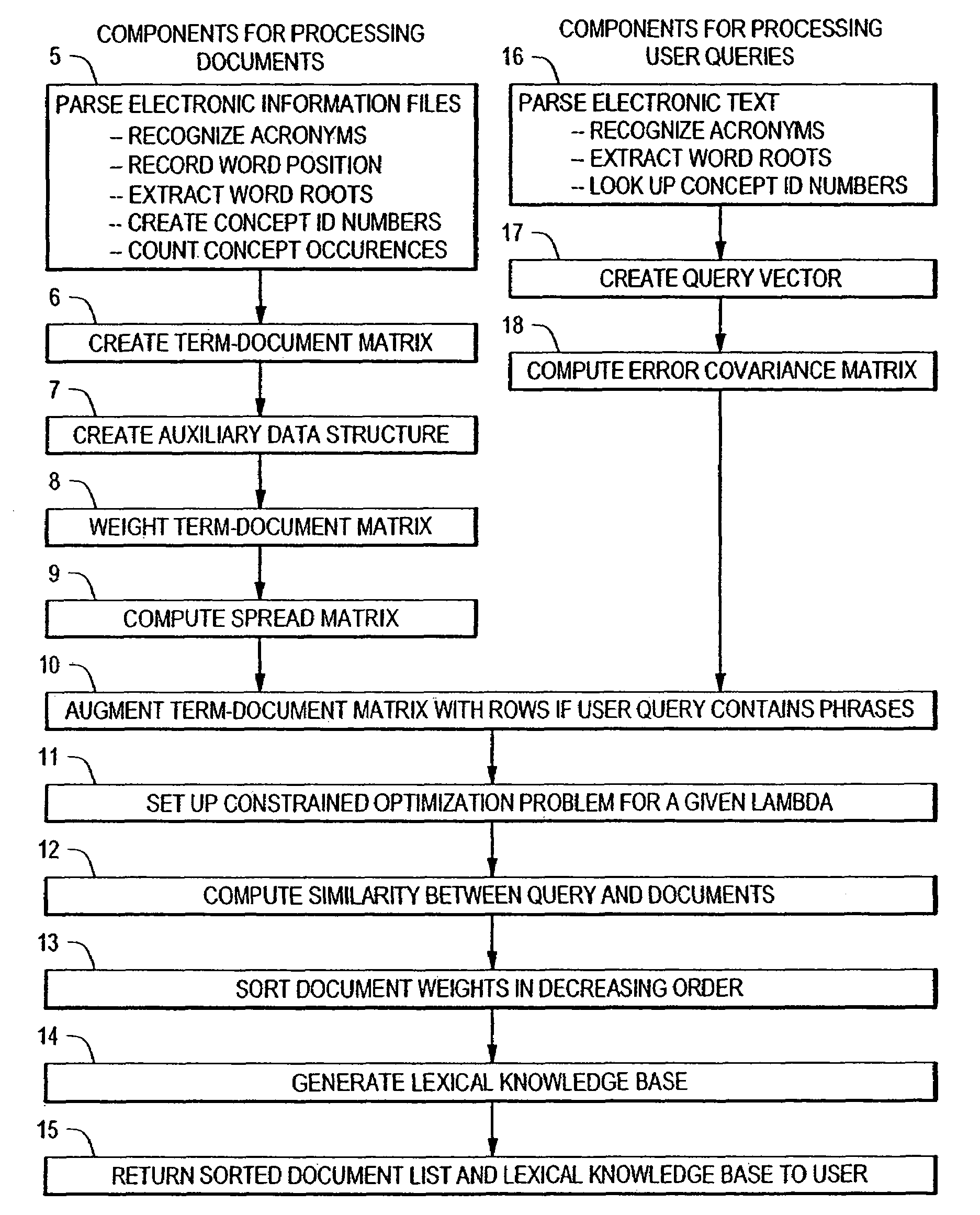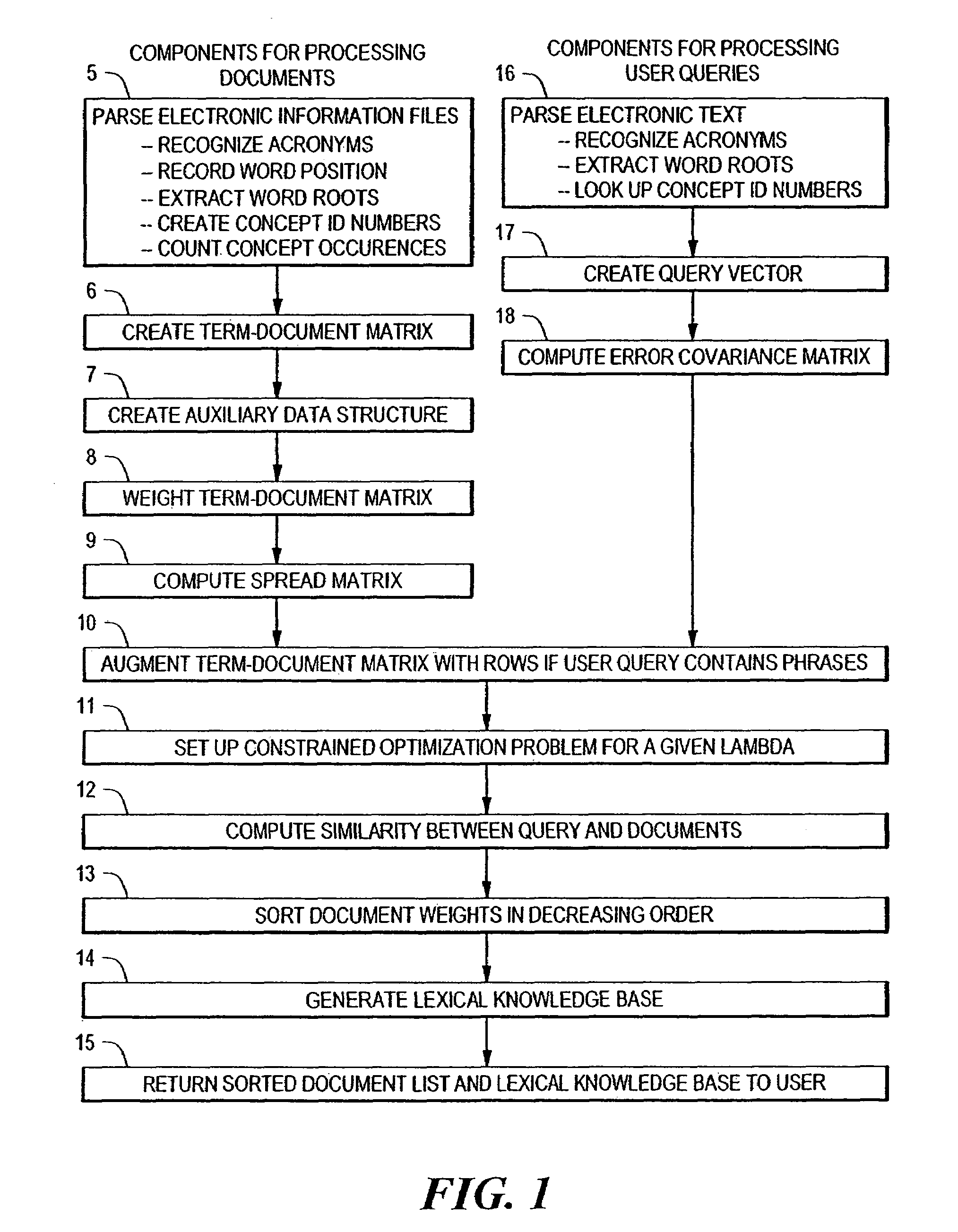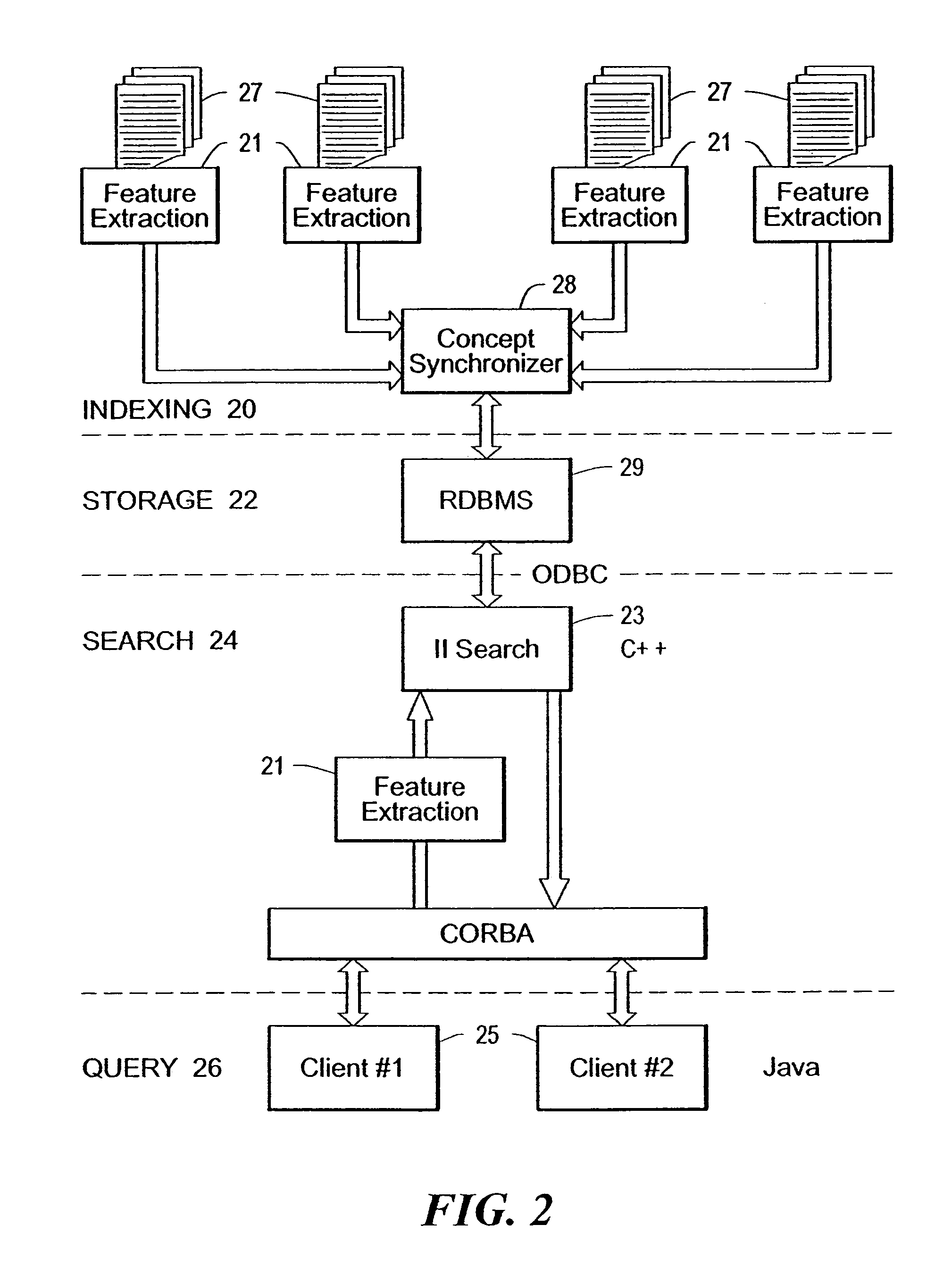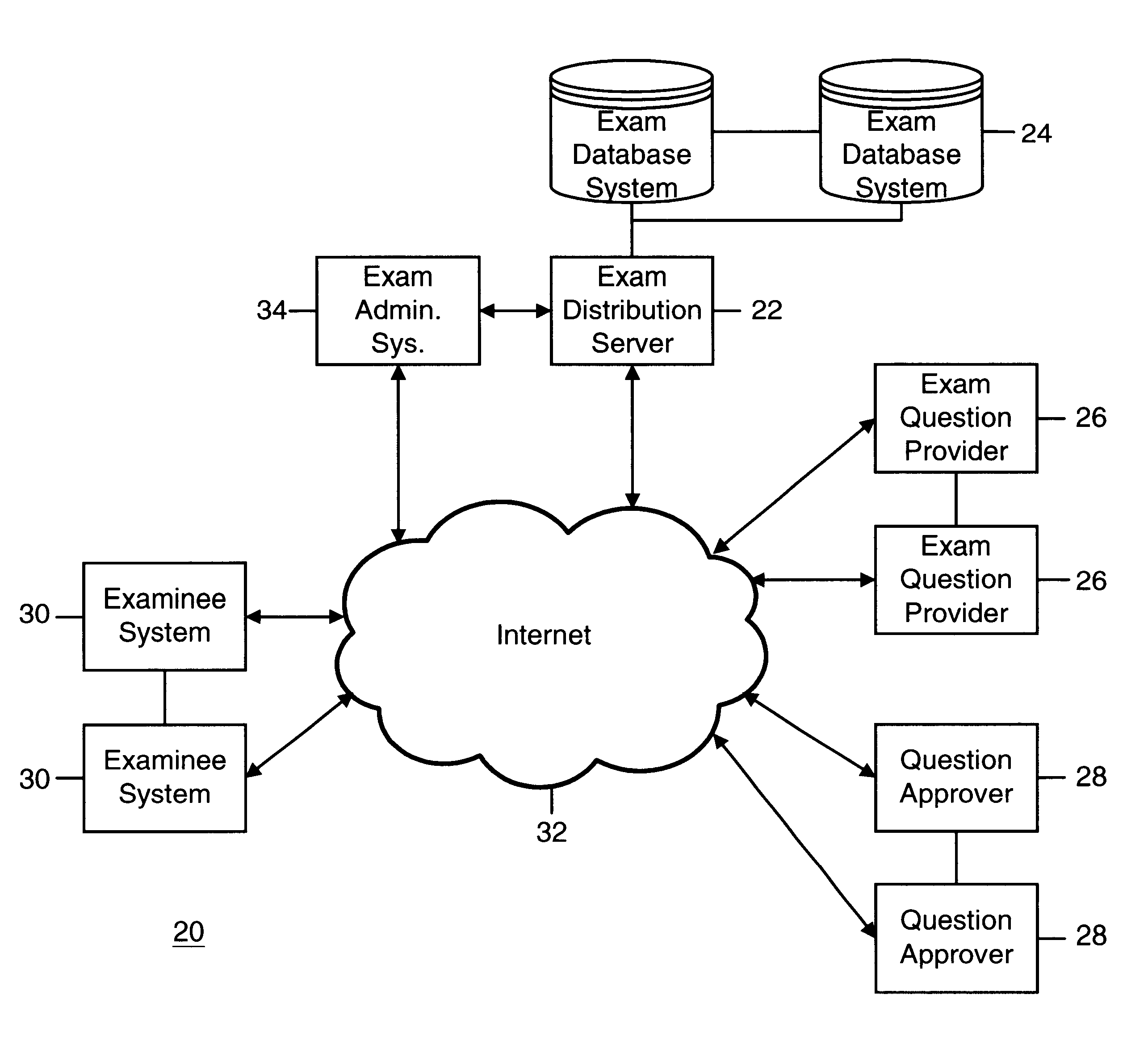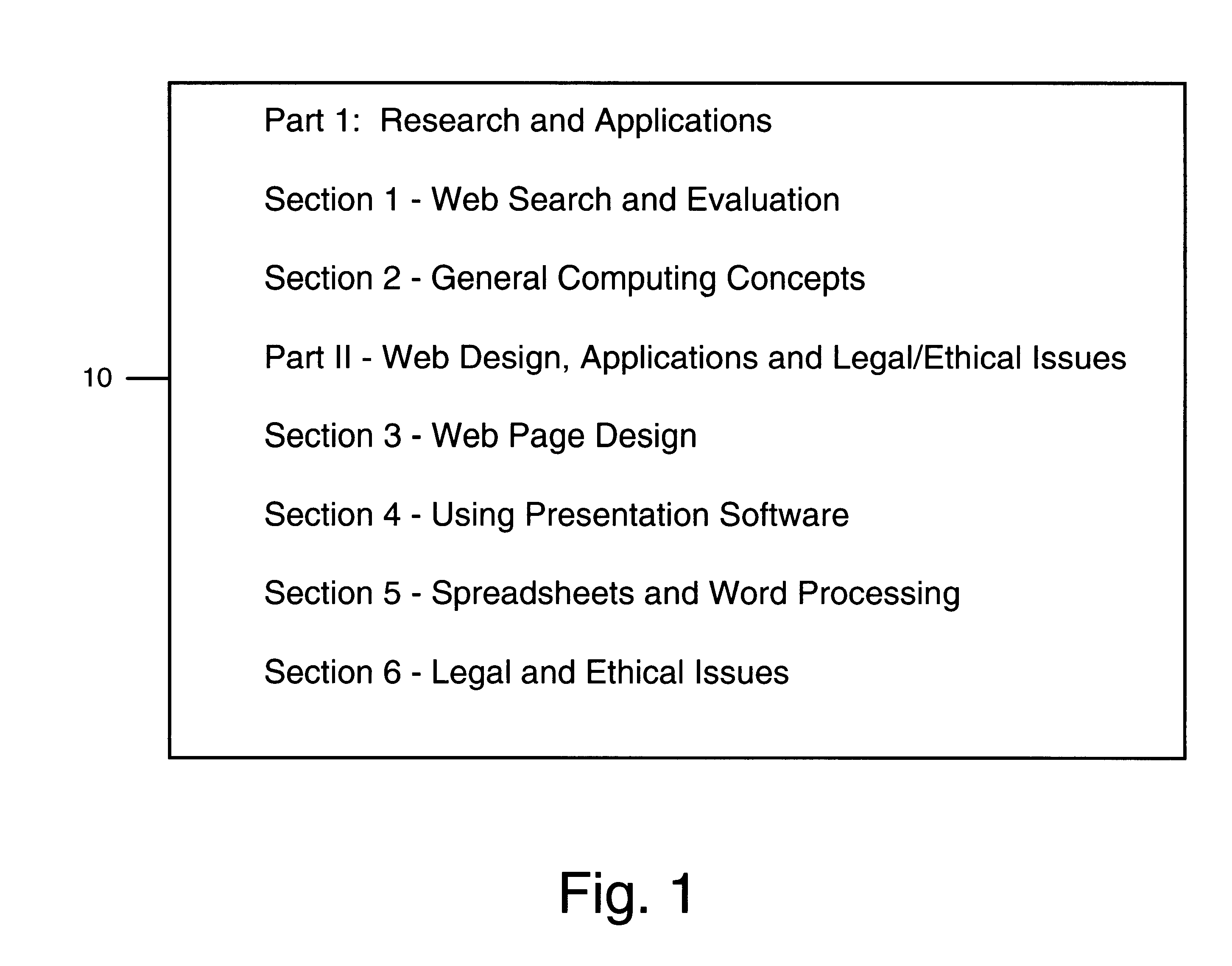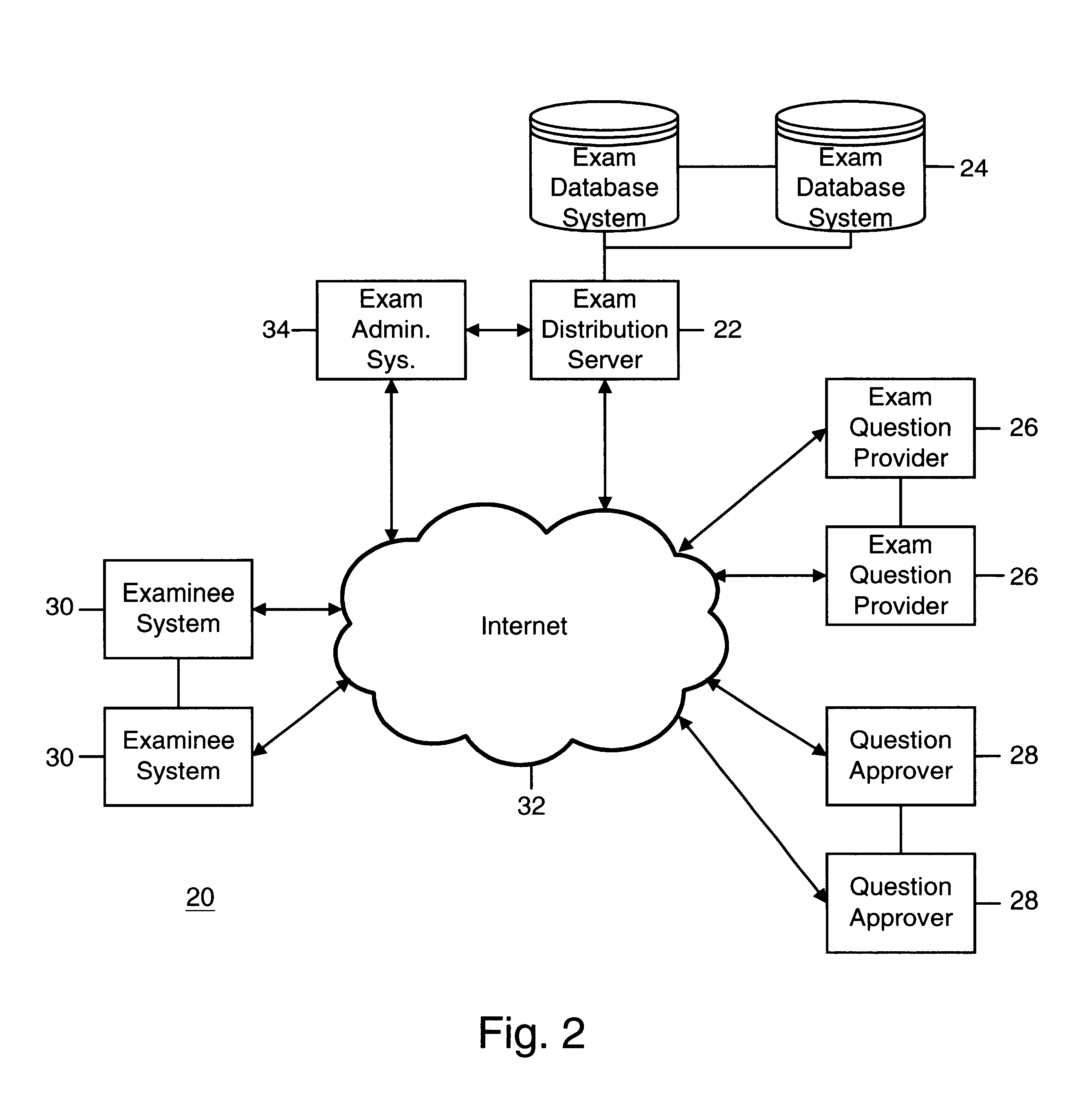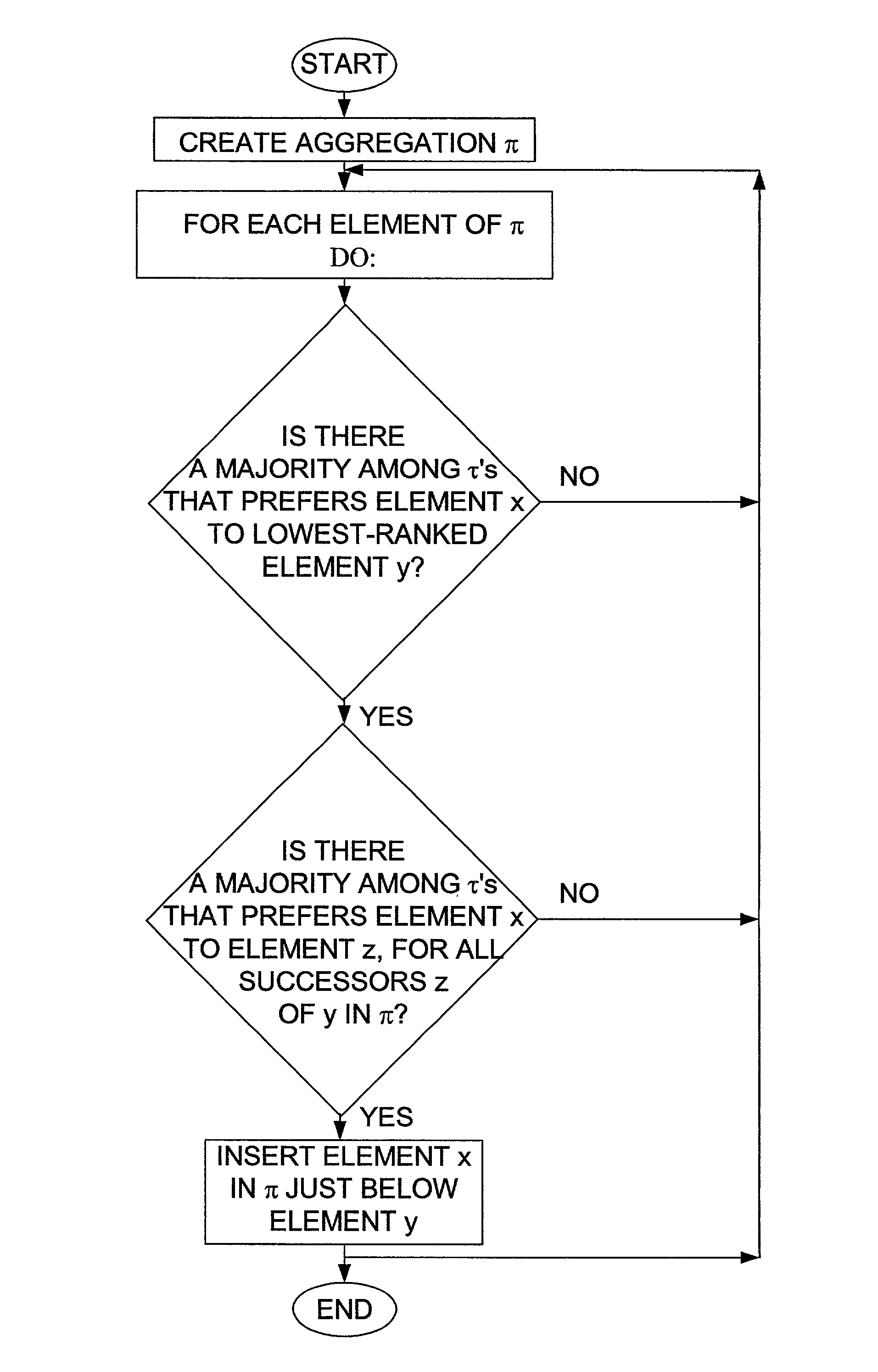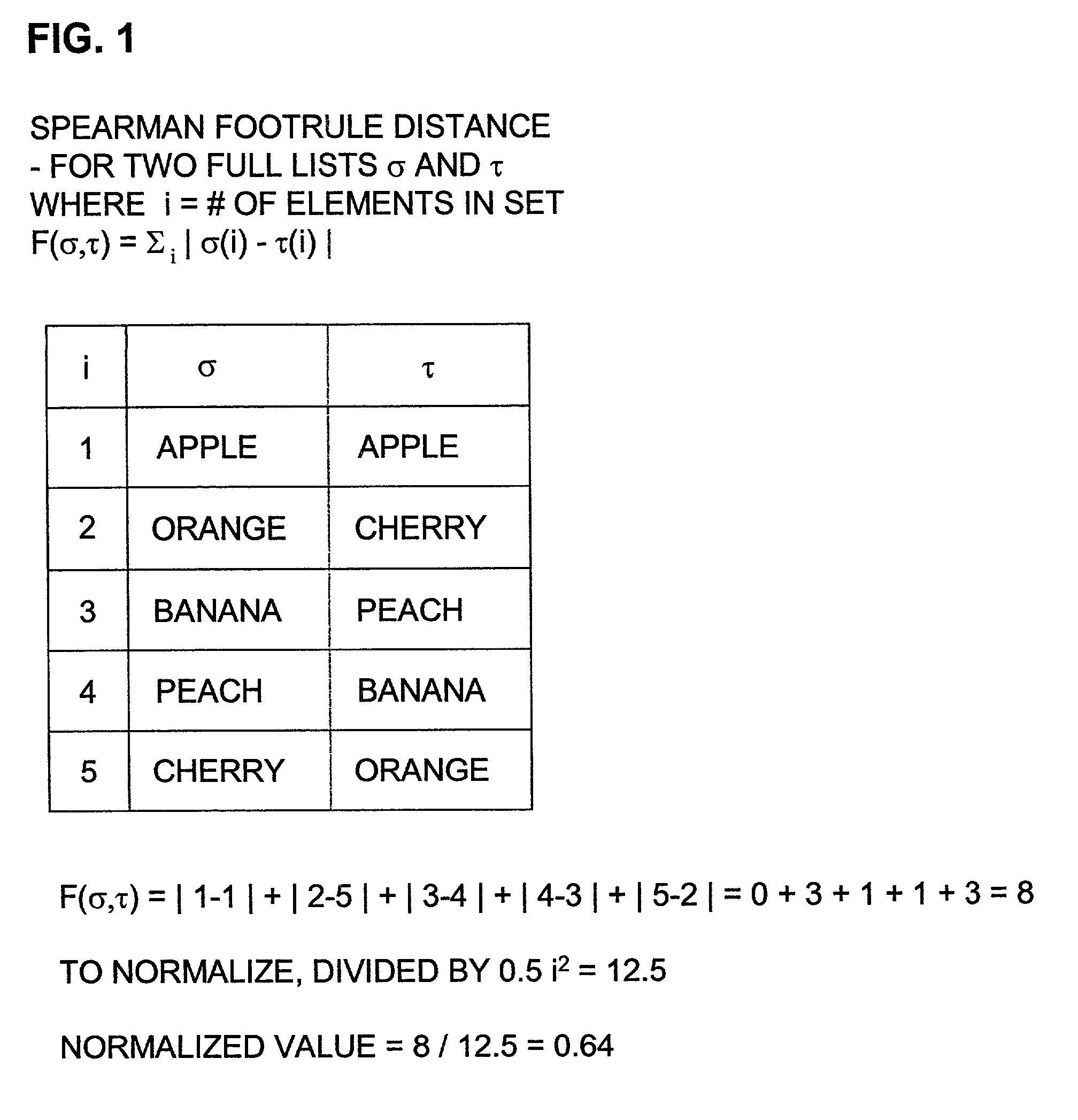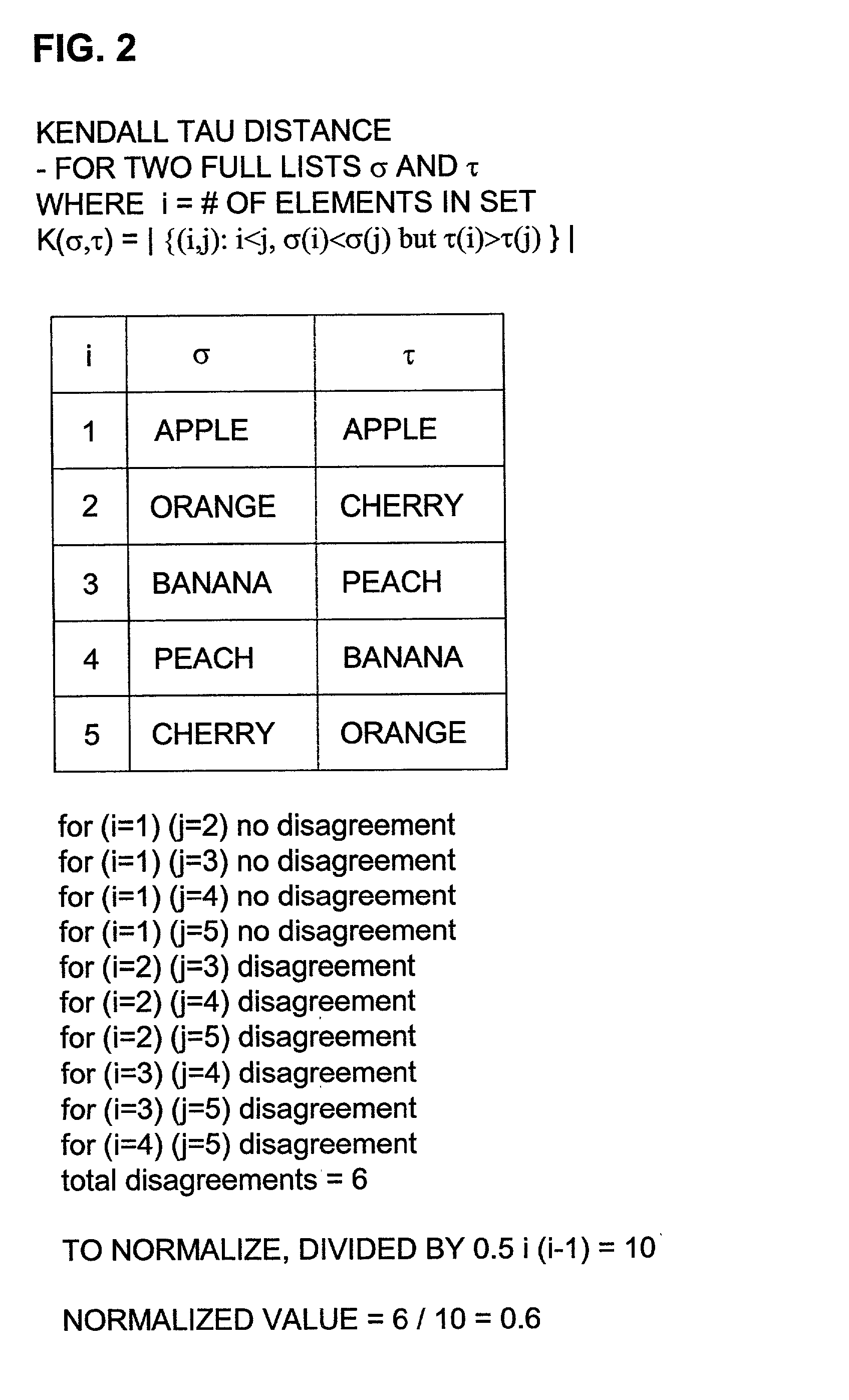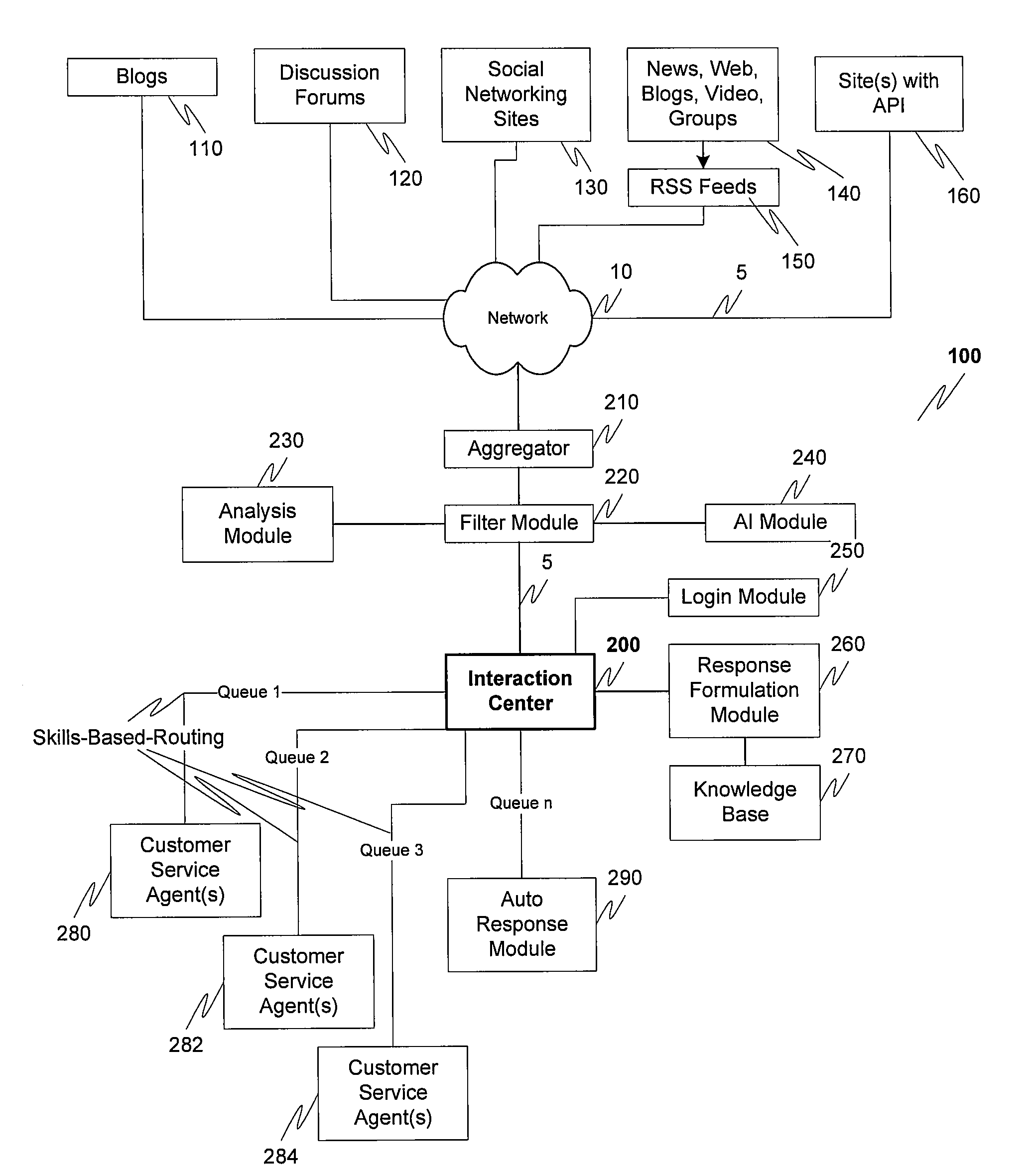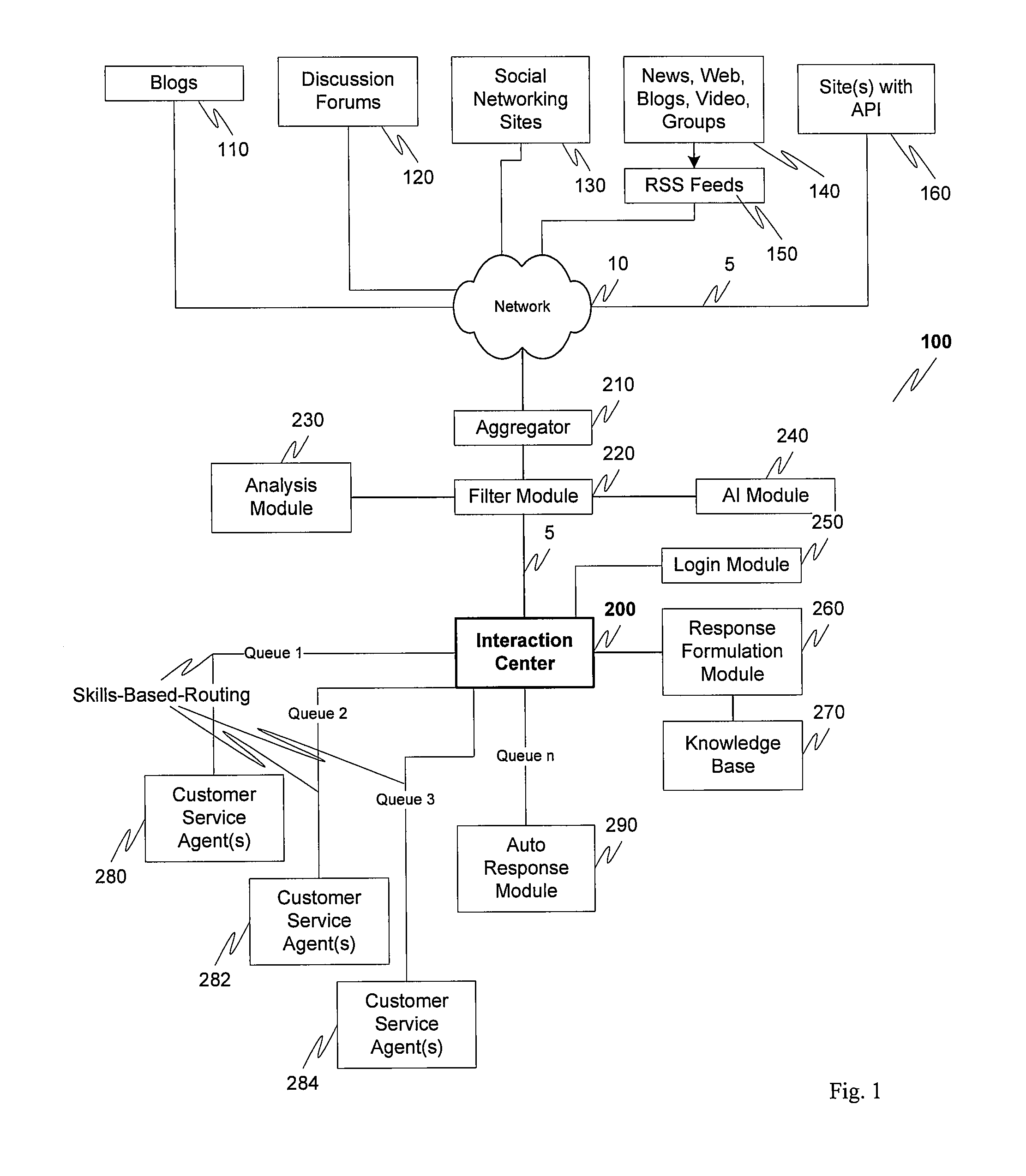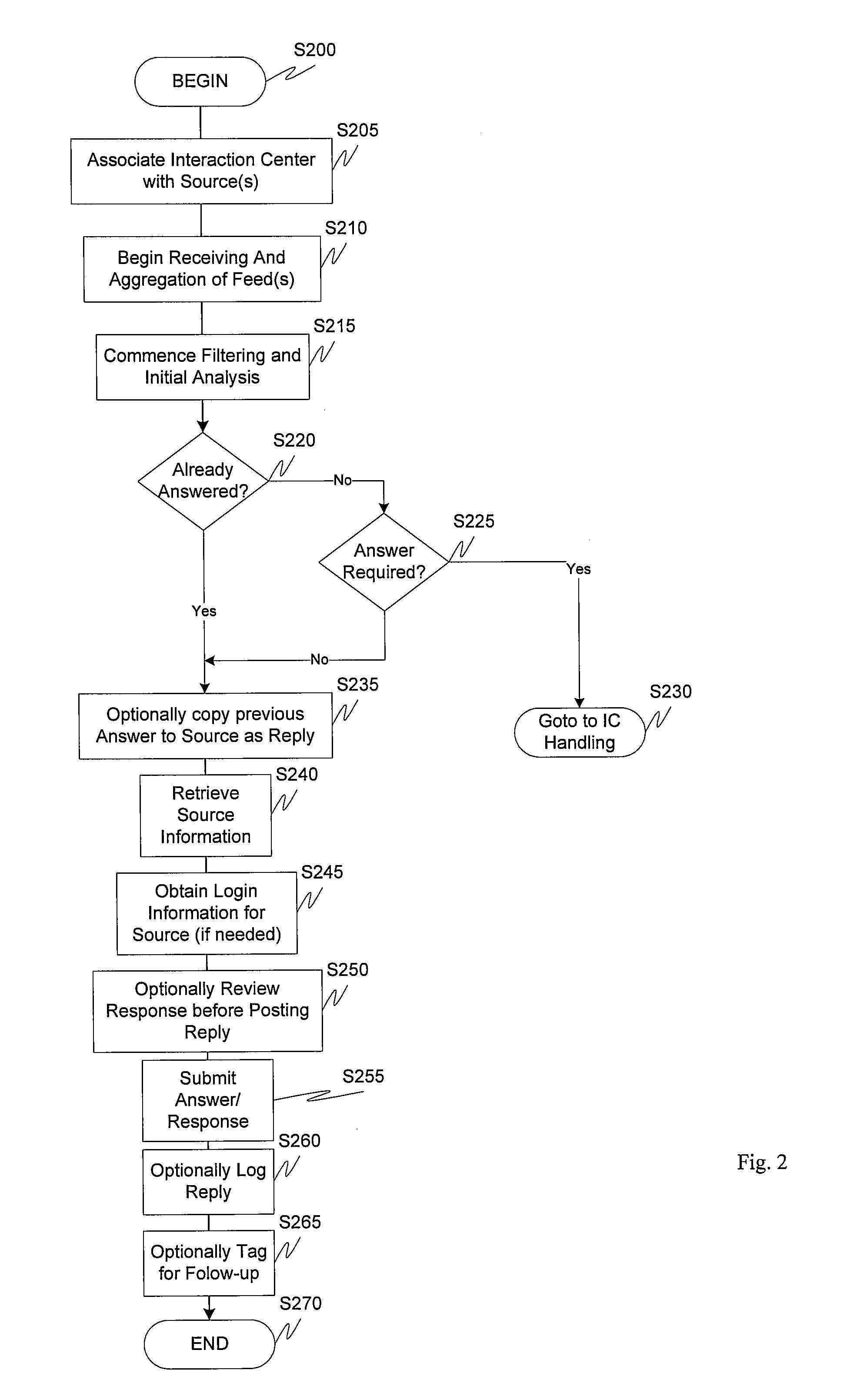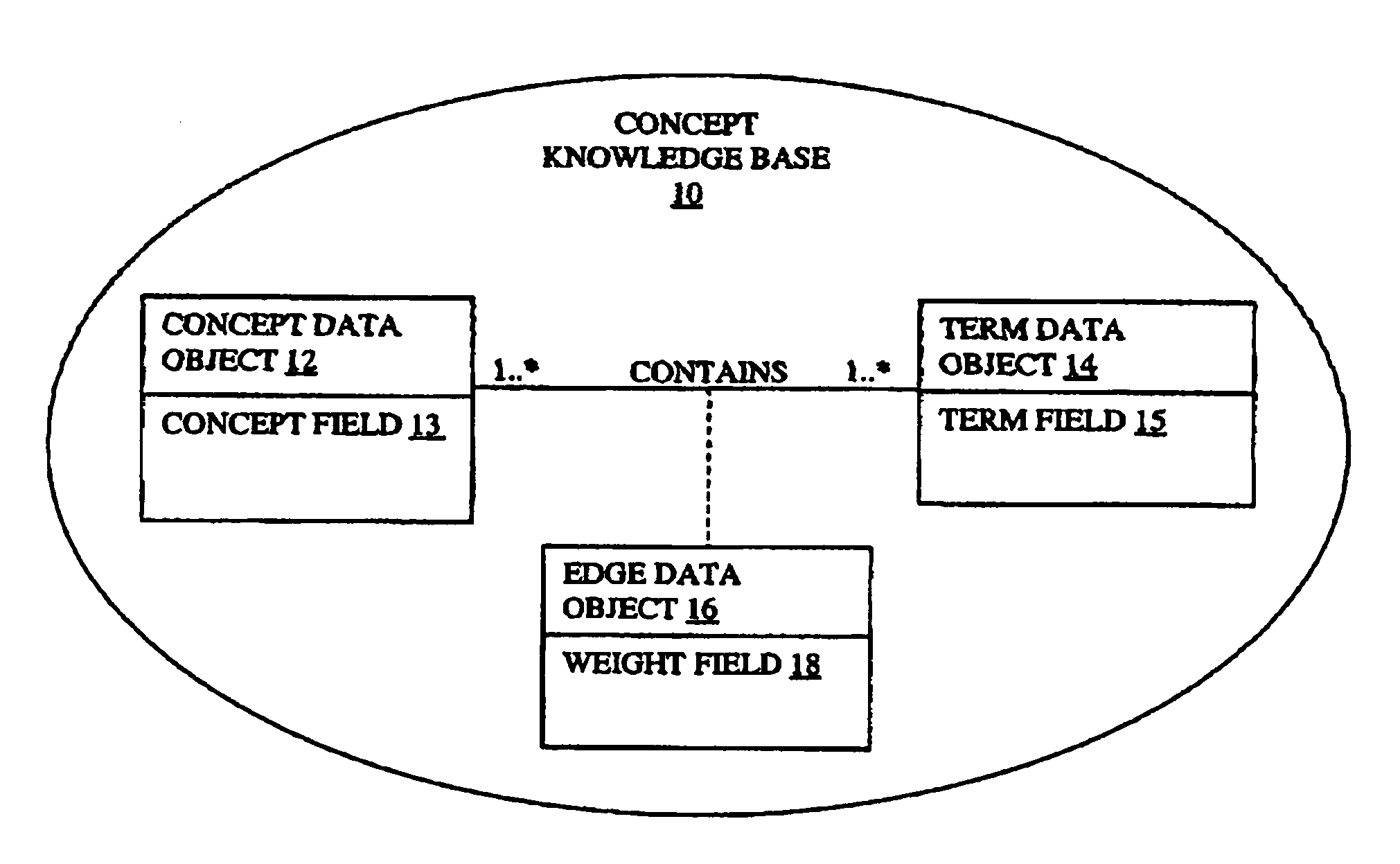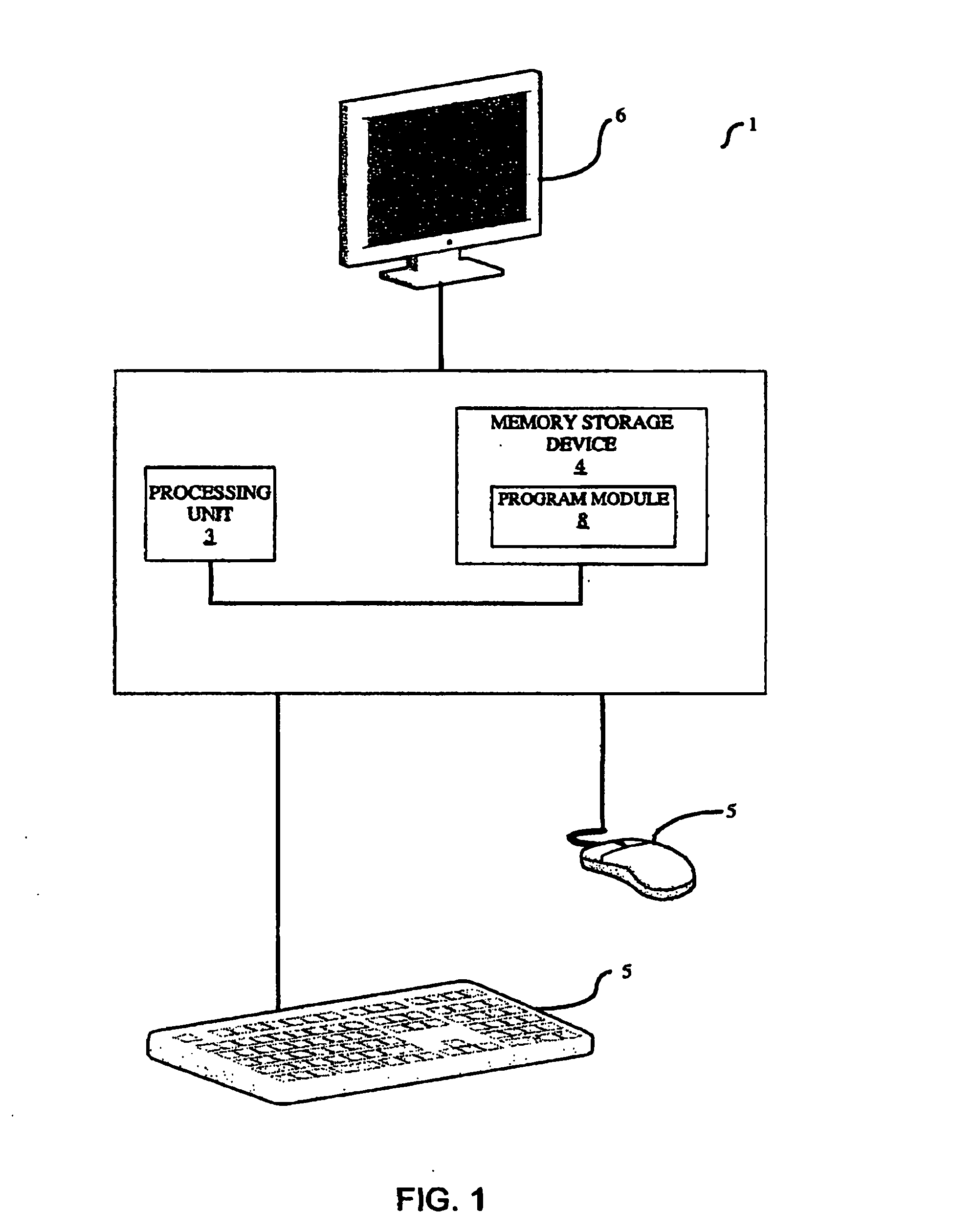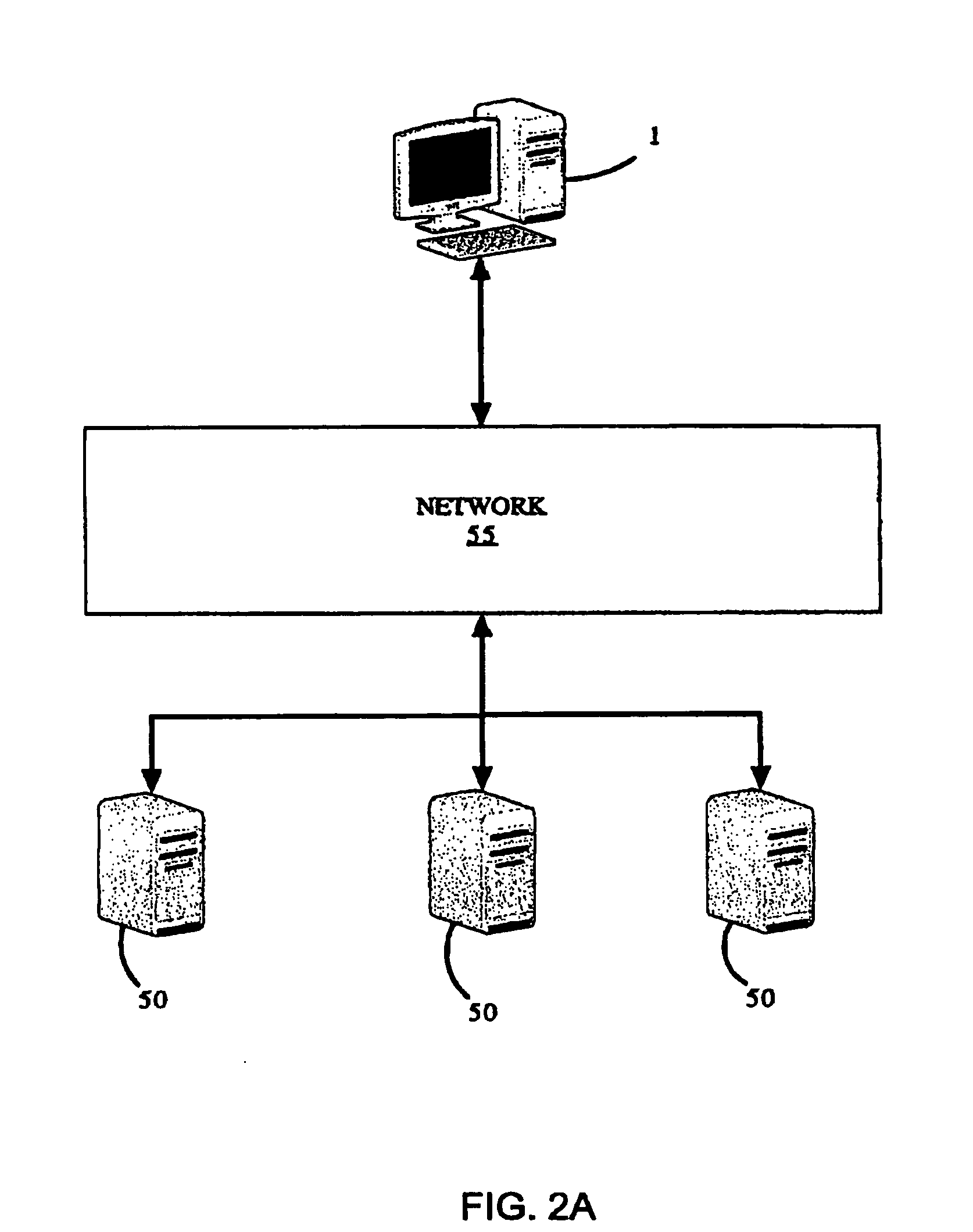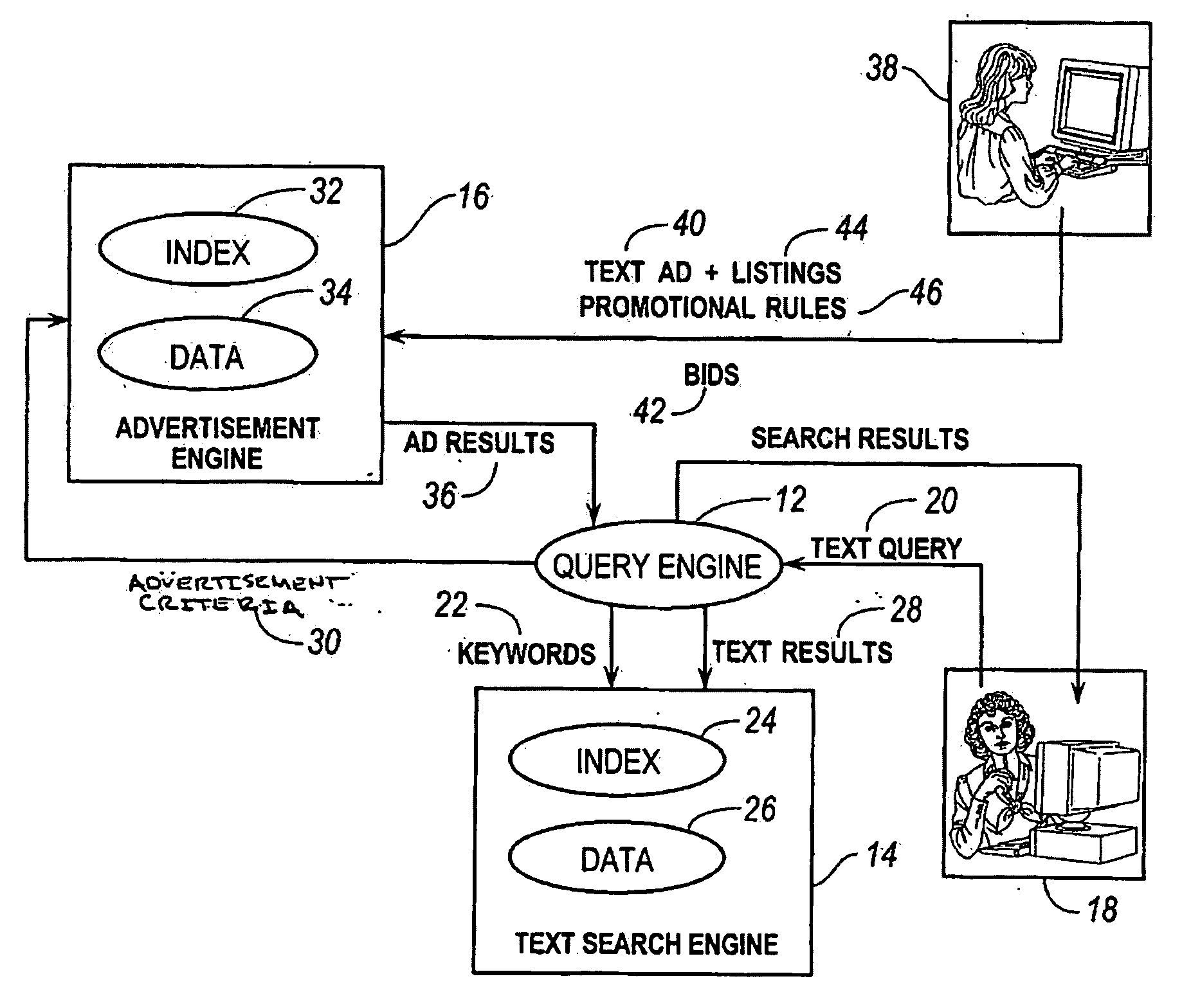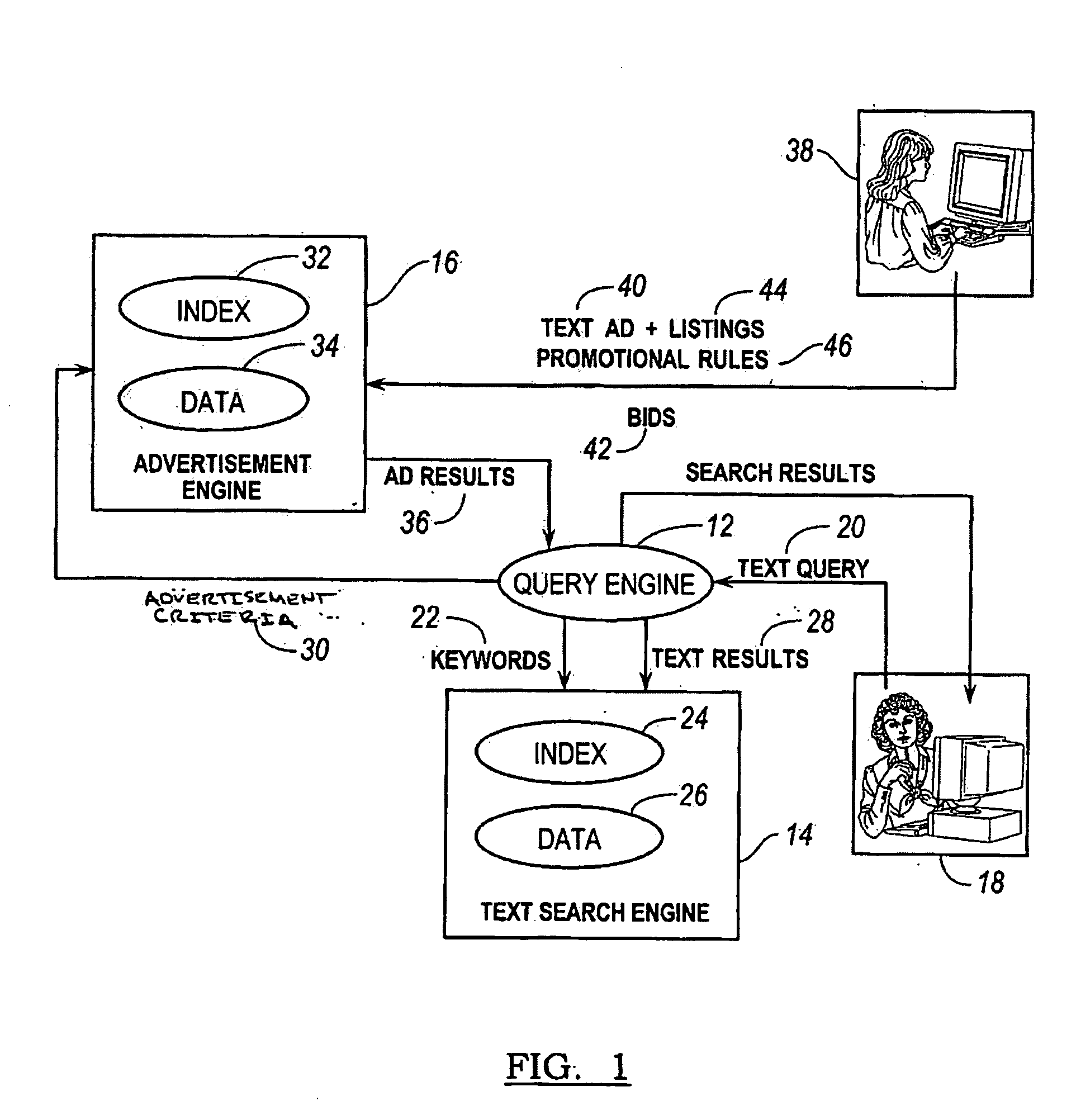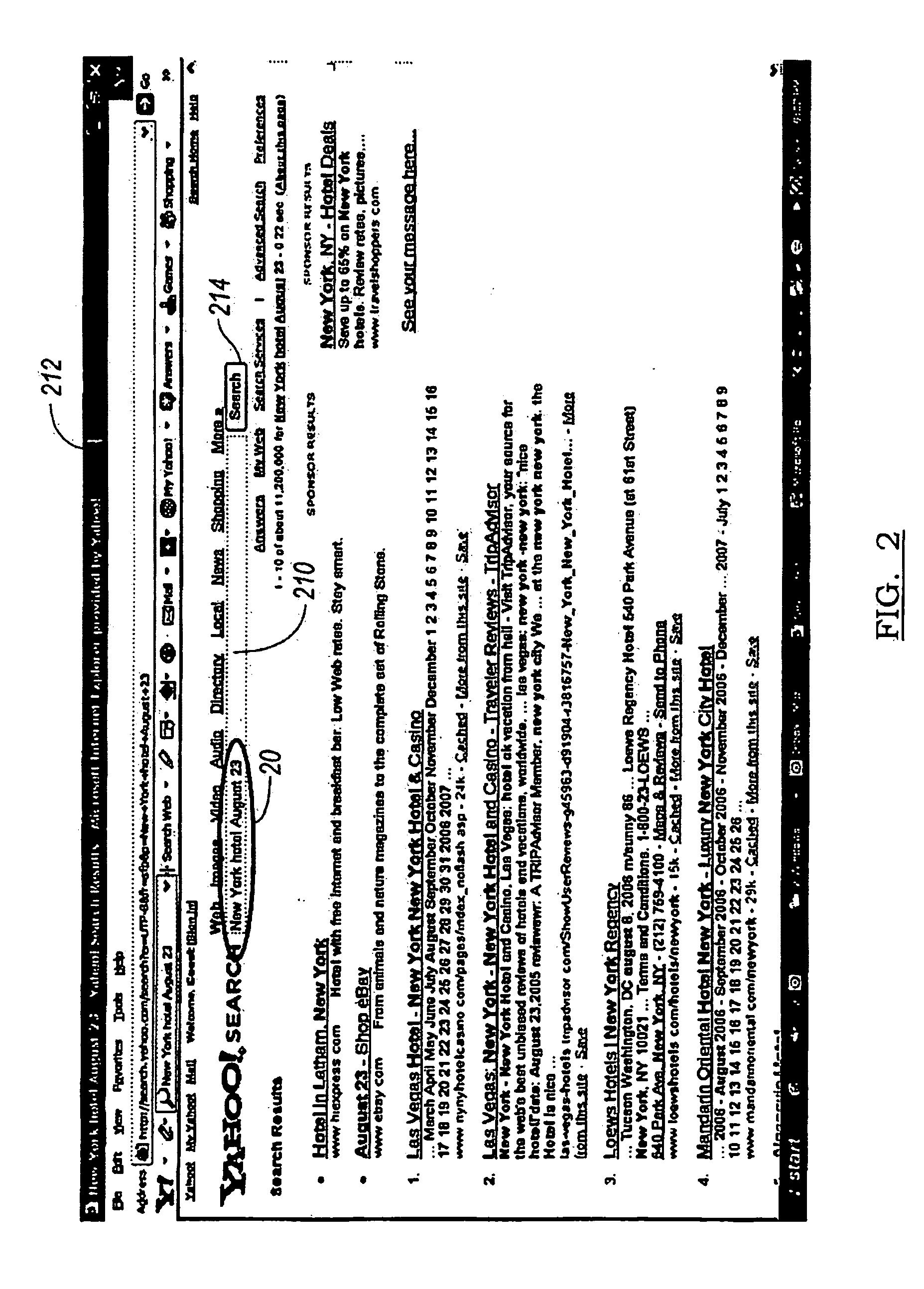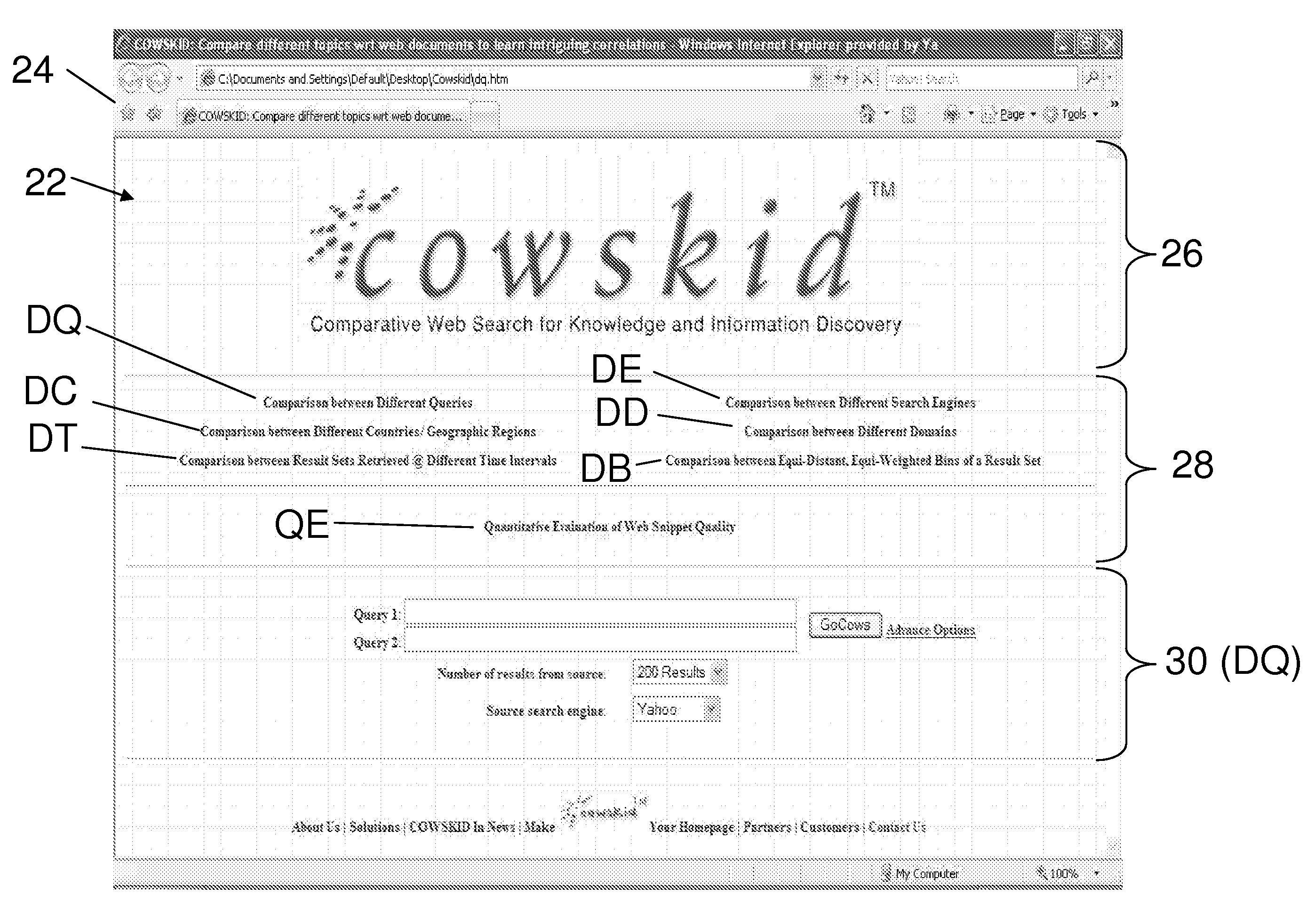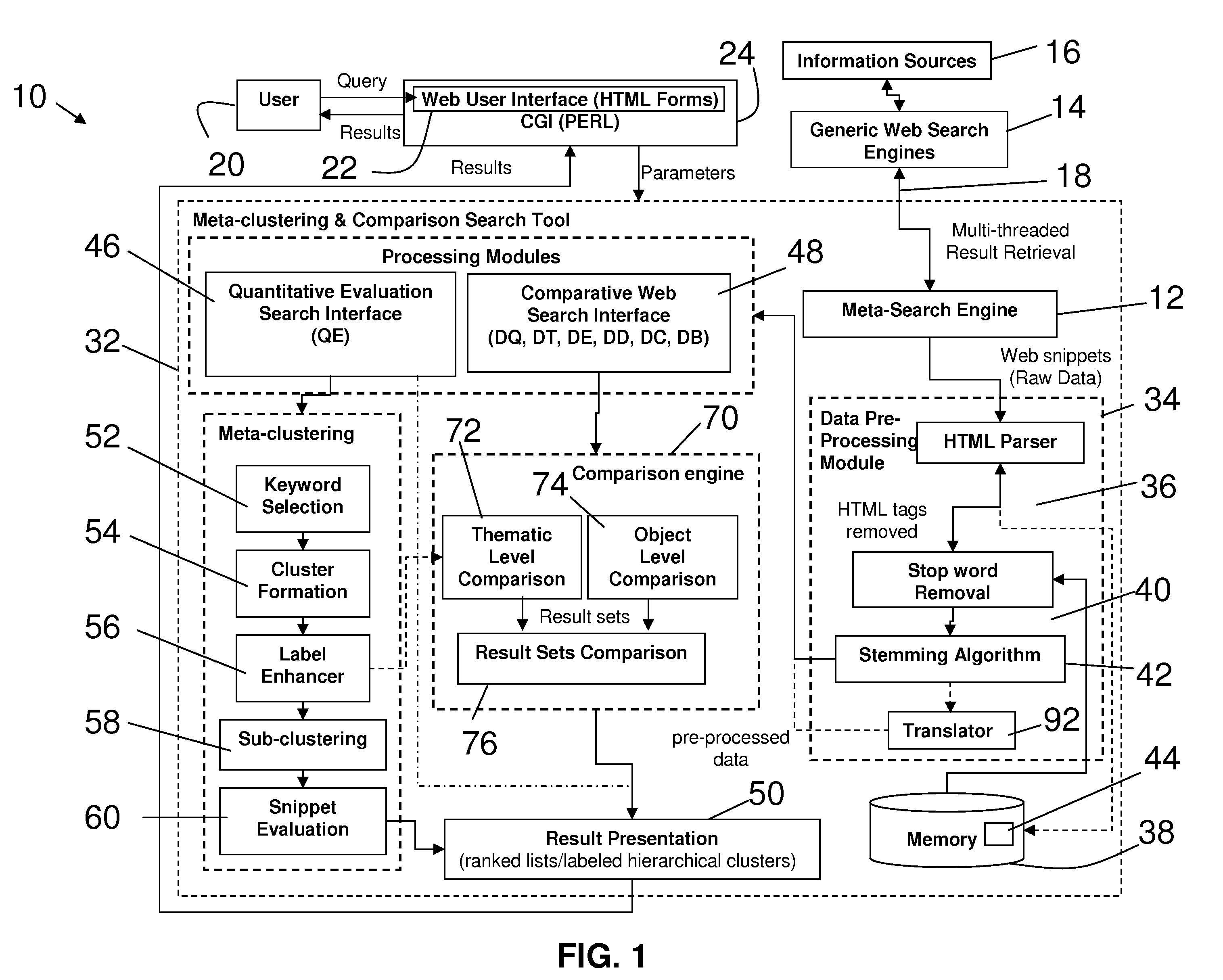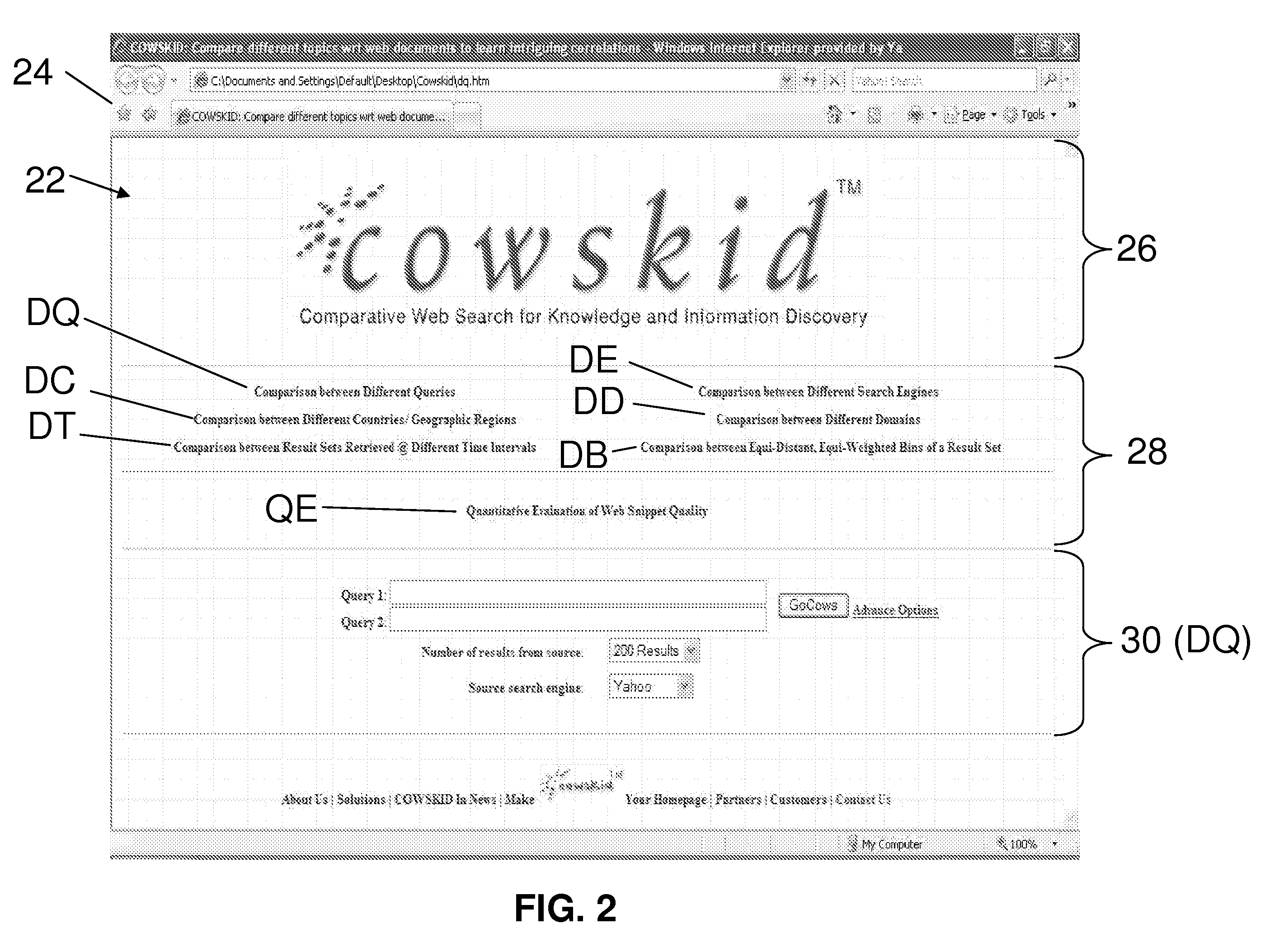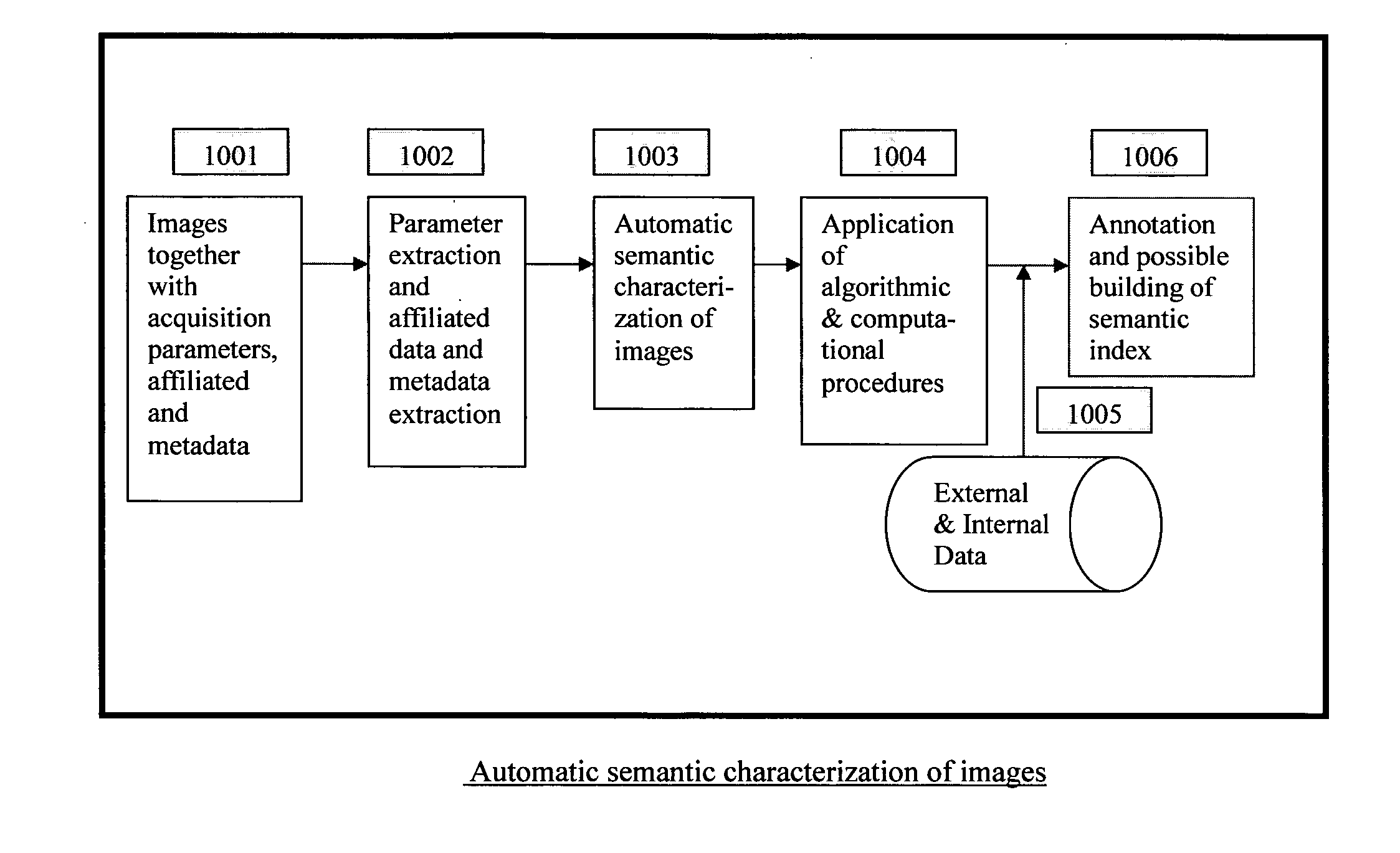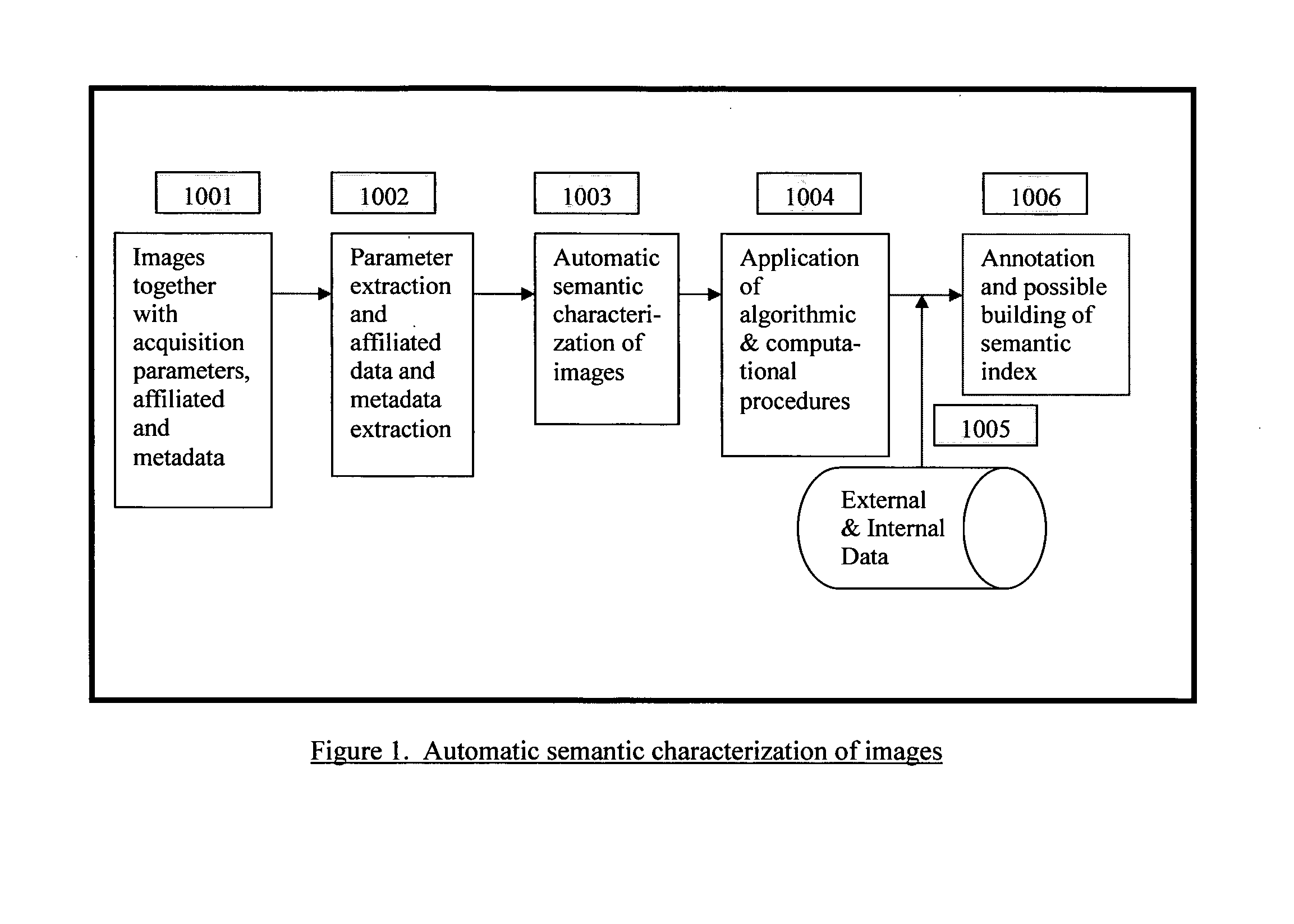Patents
Literature
376 results about "Web searching" patented technology
Efficacy Topic
Property
Owner
Technical Advancement
Application Domain
Technology Topic
Technology Field Word
Patent Country/Region
Patent Type
Patent Status
Application Year
Inventor
Personalization of web search
InactiveUS20050071328A1Web data retrievalSpecial data processing applicationsPersonalizationPaper document
A system and method for creating a user profile and for using the user profile to order search results returned by a search engine. The user profile is based on search queries submitted by a user, the user's specific interaction with the documents identified by the search engine and personal information provided by the user. Generic scores associated with the search results are modulated by the user profile to measure their relevance to a user's preference and interest. The search results are re-ordered accordingly so that the most relevant results appear on the top of the list. User profiles can be created and / or stored on the client side or server side of a client-server network environment.
Owner:GOOGLE LLC
Advanced search, file system, and intelligent assistant agent
The present invention presents embodiments of methods, systems, and computer-readable media for advanced computer file organization, computer file and web search and information retrieval, and intelligent assistant agent to assist a user's creative activities. The embodiments presented herein categorize search results based on the keywords used in the search, provide user selectable ranking, use user's search objectives and advices to refine search, conduct search within an application program and using a file based, provide always-on search that monitors changes over a period of time, provide a high level file system that organizes files into categories, according to relations among files, and in ranking orders along multiple categorization and ranking dimensions and multiple levels of conceptual relationships, conduct searches for associations between keywords, concepts, and propositions, and provide validations of such associations to assist a user's creative activity.
Owner:LIANG PING
Method, medium and apparatus for providing mobile voice web service
Provided are a method and apparatus for providing a mobile voice web service in a mobile terminal. The method includes analyzing a web history of a user from web search logs of the user and generating a voice access list based on the analysis results, and performing voice recognition by dynamically generating a voice recognition syntax according to the generated voice access list. Accordingly, by limiting syntax required for voice recognition by generating a syntax suitable for a web context of the user, efficient voice recognition, which can be performed in a terminal not a server, can be implemented.
Owner:SAMSUNG ELECTRONICS CO LTD
System and method for automatic generation of search results based on local intention
InactiveUS20060085392A1Digital data information retrievalSpecial data processing applicationsWeb siteData mining
A system and related techniques automatically analyze Web search and other activity, to generate locality-selected results based on not just the user's location, but also the business or other content provider's location and the degree of local intent in the user's query. The locality or region to the user may be identified, for instance, by the presence of geographic clues or indicators in the general content of the Web site, for instance, the presence of ZIP codes, telephone numbers, town names or other semantic or other indicators which have some geographic connotation in search terms, key words or other query or semantic inputs. The user's degree of local intent may be automatically analyzed as well, for instance by the presence of terms such as “car repair” or “pizza restaurant” which may suggest the user intends to locate local goods, services or providers. The search service may then access a content database to identify ads or other media or content which match or correspond to the detected locality or region, such as ads for local restaurants, car dealerships, physicians or other services or products, and which correspond in location, working radius and degree of localness to the user's query. Because the delivery of localized search results according to the invention is specifically filtered for user-driven local intent, advertisements and other media or content may be delivered which better match the user's search objectives.
Owner:MICROSOFT TECH LICENSING LLC
Advanced search, file system, and intelligent assistant agent
Owner:LIANG PING
System and method for aggregating ranking results from various sources to improve the results of web searching
A system and method for aggregating rankings from a plurality of ranking sources to generate a maximally consistent ranking by minimizing a distance measure. The ranking sources may be search engines executing queries on web pages that have been deliberately modified to cause an incorrect estimate of their relevance. The invention supports combining partial rankings.
Owner:IBM CORP
Systems and methods that enable search engines to present relevant snippets
ActiveUS7512601B2Easy to determineReduce I/O timesSpecial data processing applicationsData selectionSearch wordsRelevant information
Systems and methods that provide search and / or query-relevant information and / or links thereto to a user as and / or with a search and / or query result. This information can be determined from summary information that can be included within a tag, header, body, meta-data, etc. of the data. A user can employ a local and / or web search utility along with a search word, phrase, sentence, etc. to search over a data repository to locate and retrieve data that satisfies the search criteria. The summary information of this data is obtained and matched against the results and / or search criteria to determine whether the data is relevant to the search and / or query. The summary information is utilized to determine a snippet that summarizes the data, based on the search and / or query, search criteria, etc. to provide the user with search and / or query-relevant results and / or one or more links thereto.
Owner:MICROSOFT TECH LICENSING LLC
Advanced search, file system, and intelligent assistant agent
The present invention presents embodiments of methods, systems, and computer-readable media for advanced computer file organization, computer file and web search and information retrieval, and intelligent assistant agent to assist a user's creative activities. The embodiments presented herein categorize search results based on the keywords used in the search, provide user selectable ranking, use user's search objectives and advices to refine search, conduct search within an application program and using a file based, provide always-on search that monitors changes over a period of time, provide a high level file system that organizes files into categories, according to relations among files, and in ranking orders along multiple categorization and ranking dimensions and multiple levels of conceptual relationships, conduct searches for associations between keywords, concepts, and propositions, and provide validations of such associations to assist a user's creative activity.
Owner:LIANG PING
System and method for web searching
A system and method of web searching is provided. The method comprises defining one or more user preferred categories and conducting a search within the one or more user preferred categories based upon search criteria by comparing the search criteria to content information within each of the one or more user preferred categories. The method further includes displaying search results associated with each of the preferred categories which have matching criteria based on the conducted search.
Owner:DAEDALUS BLUE LLC
Systems and methods for ranking documents based upon structurally interrelated information
InactiveUS20050060297A1Reduce the impactData processing applicationsWeb data indexingHyperlinkPaper document
Systems and methods for ranking Web pages based on hyperlink information in a manner that is resistant to nepotistic links are provided. In one embodiment, a Web search service is provided for returning quality query results. The vulnerability of existing ranking algorithms, such as PageRank, to Web pages that are artificially generated for the sole purpose of inflating the score of target page(s) is addressed. Intuitively, it is recognized that it is less likely to reach a particular page on a Web server having many pages via a random jump than it is to reach a particular page on a Web server having few pages, which implies that the influence of such a page upon another page by linking to, or endorsing, the other page is diminished. Thus, in various non-limiting embodiments, each Web server, not each Web page, is assigned a guaranteed minimum score. This minimum score assigned to a server can then be divided among all the pages on that Web server.
Owner:MICROSOFT TECH LICENSING LLC
Distributed metadata searching system and method
InactiveUS6434548B1Data processing applicationsWeb data indexingWeb search engineInternet communication
A system and method of distributed metadata searching is disclosed. The present invention permits an extension of the searching and retrieval functions of existing Internet web search engines by utilizing computational resources embodied in user computer systems and search browsers. By distributing the searching and scanning functions to the user level, the present invention reduces the computational and communications burden on Internet web search engines and crawlers, resulting in lower computational resource utilization by Internet search engine providers. Given the exponential growth rate currently being experienced in the Internet community, the present invention provides one of the few methods by which complete searches of this vast distributed database may be performed. The present invention permits embodiments incorporating a Search Manger (1001) further comprising a Service Results Manager (1013), User Profile Database (1012), Service Manager(1013), and Service Database (1014); a Light Weight Application SCANNER (1002); and a Search Engine (1008). These components may be augmented in some preferred embodiments via the use of a Search Browser (1003), Internet Communications (1004); Web Site(s) (1005), Web Crawler(s) (1006), and a Repository Database (1007).
Owner:IBM CORP
Inverse inference engine for high performance web search
InactiveUS7051017B2Eliminate needIncrease computing speedData processing applicationsDigital data processing detailsDecompositionOrthogonal basis
An information retrieval system that deals with the problems of synonymy, polysemy, and retrieval by concept by allowing for a wide margin of uncertainty in the initial choice of keywords in a query. For each input query vector and an information matrix, the disclosed system solves an optimization problem which maximizes the stability of a solution at a given level of misfit. The disclosed system may include a decomposition of the information matrix in terms of orthogonal basis functions. Each basis encodes groups of conceptually related keywords. The bases are arranged in order of decreasing statistical relevance to a query. The disclosed search engine approximates the input query with a weighted sum of the first few bases. Other commercial applications than the disclosed search engine can also be built on the disclosed techniques.
Owner:FIVER LLC
Clustering hypertext with applications to web searching
InactiveUS6684205B1Quality improvementData processing applicationsWeb data indexingTime complexityDocument preparation
A method and structure of searching a database containing hypertext documents comprising searching the database using a query to produce a set of hypertext documents; and geometrically clustering the set of hypertext documents into various clusters using a toric k-means similarity measure such that documents within each cluster are similar to each other, wherein the clustering has a linear-time complexity in producing the set of hypertext documents, wherein the similarity measure comprises a weighted sum of maximized individual components of the set of hypertext documents, and wherein the clustering is based upon words contained in each hypertext document, out-links from each hypertext document, and in-links to each hypertext document.
Owner:IBM CORP
Systems and Methods for Improved Web Searching
ActiveUS20100306229A1Web data indexingDigital data processing detailsUniform resource locatorWeb searching
Systems and methods are provided for improved web searching. In one implementation, suggested search queries are provided based on previous search queries and click data. A weighted bi-partite graph or index may be used to identify related search queries based on overlapping clicked URLs. According to a method, query-click log data of a search engine is processed to generate sets of suggested search queries, data corresponding to each suggested search query, and a set of clicked URLs related to each suggested search query. Additionally, or independently, methods may be provided for contextually correcting spelling errors within sets of suggested search queries using a contextual algorithm, and / or identifying and discarding sets of suggested search queries and URLs that lead to restricted material, such as restricted content and related URLs.
Owner:YAHOO ASSETS LLC
Method for displaying internet search results
InactiveUS6377961B1Shorten the timeAmount of timeDigital data information retrievalData processing applicationsWeb search engineUser input
A method starts with submitting an internet protocol address to a web search engine so that the location of a user can be determined. Then, a user inputs one or more keywords that can be used by the web search engine to compare with all of its generated indexes. After searching various indexes, the web search engine may find multiple uniform resource locators that identify various servers that contain information that may be relevant to the user's search. Then, the web search engine uses an internet protocol mapping table, that is generated by the web search engine along with other data regarding various uniform resource locators prior to performing the requested search, to correlate the uniform resource locators with the geographical address of the server. Afterwards, the web search engine is able to sort the results of the search using the distance between the uniform resource locators and the user. Once the user has this information it is much simpler to determine which uniform resource locator may correlate with an easy to travel to business. This feature will enhance existing web search engines and thus, further increase the expanding popularity of using the internet to gather useful information.
Owner:SAMSUNG ELECTRONICS CO LTD
Automated satisfaction measurement for web search
InactiveUS20050125390A1Low user satisfactionSatisfaction keeps decreasingInput/output for user-computer interactionDigital data processing detailsDisplay deviceContext based
Context-based user behavior data is collected from a search mechanism. This data includes, for a given query, user feedback (implicit and explicit) on the query and context information on the query. A predictive pattern is applied to the context-based user behavior data in order to produce predicted user satisfaction data. Data mining techniques may be used to create and improve one or more predictive patterns. Predicted user satisfaction data can be used to monitor or improve search mechanism performance, via a display reporting the performance or identification of any queries with a shared characteristic and sub-par user satisfaction. A dynamically-improving search mechanism uses the predicted user satisfaction data to improve the performance of the search mechanism.
Owner:MICROSOFT TECH LICENSING LLC
Extended functionality for an inverse inference engine based web search
InactiveUS20050021517A1Improve efficiencyFast and scalableNatural language translationData processing applicationsMain diagonalAlgorithm
An extension of an inverse inference search engine is disclosed which provides cross language document retrieval, in which the information matrix used as input to the inverse inference engine is organized into rows of blocks corresponding to languages within a predetermined set of natural languages. The information matrix is further organized into two column-wise partitions. The first partition consists of blocks of entries representing fully translated documents, while the second partition is a matrix of blocks of entries representing documents for which translations are not available in all of the predetermined languages. Further in the second partition, entries in blocks outside the main diagonal of blocks are zero. Another disclosed extension to the inverse inference retrieval document retrieval system supports automatic, knowledge based training. This approach applies the idea of using a training set to the problem of searching databases where information that is diluted or not reliable enough to allow the creation of robust semantic links. To address this situation, the disclosed system loads the left-hand partition of the input matrix for the inverse inference engine with information from reliable sources.
Owner:FIVER LLC
Techniques for inline searching in an instant messenger environment
ActiveUS20050234883A1Data processing applicationsDigital data information retrievalHyperlinkGraphics
Techniques for performing inline searches in an instant messaging environment are provided. A user can implement a web search in an instant messaging window by entering a search query. A search query can be preceded by a predefined search trigger to identify the associated text as the search query. The search query is sent to an Internet search server, which processes the query and gathers search results. One or more of the search results is displayed inline in the instant messaging window to the sender and the recipient. The search result can be in XML or HTML format and can include graphics and hyperlinks.
Owner:VERIZON PATENT & LICENSING INC
Customizing web search results based on users' offline activity
InactiveUS20070185844A1Digital data information retrievalDigital data processing detailsWeb search engineData mining
A method for improving web search results based on analysis of users' offline activities that are related to their online search. Web search results, including local search results, for a user may be improved by monitoring the actions of users when not interacting with the web search engine. By monitoring “offline” activities (e.g., telephone calls) and matching a person participating in an activity (e.g., the person making a telephone call) to a search engine user, a set of preferences for a given user may be determined, which may be used to select and sort web search results for that user. Preference data for one user may be used to select and sort web search results for other users, including those for which the search engine does not have preference data.
Owner:APPROXIMATCH
Automatic generation of a search engine for a structured document
InactiveUS20060004725A1Minimize timeShorten the timeWeb data indexingSpecial data processing applicationsWeb search engineGraphics
We describe a search engine generator that automates the process of creating a search engine for a particular structured document written in a natural language such as English. The search engine allows more convenient and flexible analysis of information stored in natural language documents than is currently available with World Wide Web search engines or portal builders. Specifically, it displays matching records in a tabular format for easy comparison; this may include information calculated with data from the document. Further, the search engine's graphical user interface (GUI) is available in different natural languages to facilitate searches by international users, and the GUI has a customizable graphic design.
Owner:ABRAIDO FANDINO LEONOR MARIA
Personalization of Web Search Results Using Term, Category, and Link-Based User Profiles
A system and method for creating a user profile and for using the user profile to order search results returned by a search engine. The user profile is based on search queries submitted by a user, the user's specific interaction with the documents identified by the search engine and personal information provided by the user. Terms for the user profile may be selected from the documents accessed by the user by performing paragraph sampling or context analysis. Generic scores associated with the search results are modulated by the user profile to measure their relevance to a user's preference and interest. The search results are re-ordered accordingly so that the most relevant results appear on the top of the list. User profiles can be created and / or stored on the client side or server side of a client-server network environment.
Owner:LAWRENCE STEPHEN R
Analysis of topic dynamics of web search
The subject invention relates to probabilistic models that are trained from transitions among various topics of pages visited by a sample population of search users. In one aspect, probabilistic models of topic transitions are learned for individual users and groups of users. Topic transitions for individuals versus larger groups are analyzed, wherein the relative accuracies of personal models of topic dynamics with models constructed from sets of pages drawn from similar groups and from a larger population of users are compared. To exploit temporal dynamics, the accuracy of these models are tested for predicting transitions in topics of visits at increasingly more distant times in the future. The models can be applied to search topic dynamics of tagged pages, and then utilized to predict topics of subsequent pages visited by users.
Owner:MICROSOFT TECH LICENSING LLC
Extended functionality for an inverse inference engine based web search
InactiveUS7269598B2Improve efficiencyFast and scalableNatural language translationData processing applicationsMain diagonalAlgorithm
An extension of an inverse inference search engine is disclosed which provides cross language document retrieval, in which the information matrix used as input to the inverse inference engine is organized into rows of blocks corresponding to languages within a predetermined set of natural languages. The information matrix is further organized into two column-wise partitions. The first partition consists of blocks of entries representing fully translated documents, while the second partition is a matrix of blocks of entries representing documents for which translations are not available in all of the predetermined languages. Further in the second partition, entries in blocks outside the main diagonal of blocks are zero. Another disclosed extension to the inverse inference retrieval document retrieval system supports automatic, knowledge based training. This approach applies the idea of using a training set to the problem of searching databases where information that is diluted or not reliable enough to allow the creation of robust semantic links. To address this situation, the disclosed system loads the left-hand partition of the input matrix for the inverse inference engine with information from reliable sources.
Owner:FIVER LLC
System and method for certifying information technology skill through internet distribution examination
A system which contains a plurality of examinee systems connected over the Internet to an exam distribution server. The exam distribution server connects to an exam database system which contains a plurality of exam questions that have been approved by one or more exam question approvers. The exam database system may store a plurality of potential exam questions for each of a plurality of sections of the examination, including a section for web search and evaluation, a section for general computing concepts, a web page design section, a section for using presentation software, a section relating to spreadsheets and word processing, and a section relating to legal and ethical issues. An exam administrator system then generates an exam through an exam generation module that selects a predetermined number of questions in each of the predetermined sections of the examination and presents the proposed exam to the exam administration system. The exam administrator may then selectively substitute one or more questions from the exam database into the proposed examination, until the exam administrator is satisfied that the exam covers all of the topics that the exam administrator desires to cover. At that point, the exam administrator makes the exam available over the Internet to one or more of the plurality of examinee systems who may then take the exam over the Internet and store their submitted exam at the exam distribution server which in turn grades the exams for certification.
Owner:VIRGINIA FOUND FOR INDEPENDENT COLLEGE
System and method for aggregating ranking results from various sources to improve the results of web searching
InactiveUS7188106B2Maximally consistentDistance minimizationData processing applicationsWeb data indexingRankingWeb page
A system and method for aggregating rankings from a plurality of ranking sources to generate a maximally consistent ranking by minimizing a distance measure. The ranking sources may be search engines executing queries on web pages that have been deliberately modified to cause an incorrect estimate of their relevance. The invention supports combining partial rankings.
Owner:IBM CORP
Treatment of web feeds as work assignment in a contact center
ActiveUS20100293560A1Eliminates and significantly reduces of and qualificationEnhance data gatheredDigital computer detailsCommerceWork distributionService experience
To provide an enhanced customer service experience, various combinations of web searches, site-specific filtering tools and syndicated feed readers can be used to find relevant posts on the internet. Internal email, IM, phone, and the like can cooperate with an appropriately equipped expert-finding solution to assist with help in locating the experts qualified to respond to the post(s). The leveraging of RSS / Atom feeds or similar technology, content analysis, and contact center work distribution algorithms are leveraged to monitor the feeds from multiple sites and automatically distribute messages to appropriately skilled contact center agents. Each message discovered is analyzed to determine which contact center queue it is to be routed to, and then the contact center assigns it to an appropriate agent. This eliminates or significantly reduces the amount of manual searching and qualification of posts.
Owner:AVAYA INC
Method and apparatus for concept-based visual
A method and apparatus is provided for visually coding or sorting search results based on the similarity of the search results to one or more concepts. A search query containing search terms is used to conduct a web search and obtain search results comprising a number of document surrogates describing the located web pages. Concepts are obtained using the search terms and the similarities between the obtained concepts and the search results are evaluated. The search results are then displayed in a manner that indicates the relative similarity of search results to one or more of the determined concepts, such as by sorting the search results based on the level of similarity of the search results to one or more concepts or by providing an accordance indicator with each displayed search result the accordance indicators indicating the similarity of the corresponding search result with one ore more of the concepts.
Owner:BLACKBIRD TECH
System and method for generating subphrase queries
InactiveUS20090198671A1Digital data information retrievalSpecial data processing applicationsModel engineData mining
A system for generating subphrase queries. The system includes a sequence label modeling engine and a regression modeling engine. The sequence label modeling engine generates a plurality of subphrase queries by indexing through each token in a search phrase and labeling each token based on an association to other tokens in the search phrase. The regression modeling engine scores each subphrase query at least partially on the association according to a scoring model. The regression modeling engine identifies the subphrase query with the highest score which may then be used for identifying a sponsored search list or a web search item.
Owner:OATH INC
Comparative web search system and method
InactiveUS20080222140A1Improve abilitiesWeb data indexingDigital data processing detailsWeb search engineInformation visualization
A system and method for a comparative web search engines, search result summarization, web snippet processing, comparison analysis, information visualization, meta-clustering, and quantitative evaluation of web snippet quality are disclosed. The present invention extends the capabilities of web searching and informational retrieval by providing a succinct comparative summary of search results at either the object or thematic levels.
Owner:WRIGHT STATE UNIVERSITY
Automatic and Semi-automatic Image Classification, Annotation and Tagging Through the Use of Image Acquisition Parameters and Metadata
ActiveUS20110317885A1Improve accuracyCharacter and pattern recognitionMetadata still image retrievalTimestampSemi automatic
A method for characterizing image contents automatically or semi-automatically using image acquisition parameters and metadata is presented. The method establishes probabilistic and deterministic relationships between different types of metadata and the semantic attributes and contents of images. It furnishes a mechanism that enables the automatic and semi-automatic classification, annotation, tagging, indexing, searching, identification or retrieval of images based on their contents, semantic properties and metadata characteristics. The method uses, but is not limited to, image capture metadata such as focal length, exposure time, relative aperture, flash information, ISO setting, angle of view, subject distance, timestamp, GPS information as well as other forms of metadata, including but not limited to, captions, keywords, headings, tags, comments, remarks, titles which may be automatically, semi-automatically, or manually generated. The present invention can be applied to image databases, web searching, personal search, community search, broad-based or vertical search engines for internet, intranet, extranet or other usages.
Owner:HONG KONG BAPTIST UNIV
Features
- R&D
- Intellectual Property
- Life Sciences
- Materials
- Tech Scout
Why Patsnap Eureka
- Unparalleled Data Quality
- Higher Quality Content
- 60% Fewer Hallucinations
Social media
Patsnap Eureka Blog
Learn More Browse by: Latest US Patents, China's latest patents, Technical Efficacy Thesaurus, Application Domain, Technology Topic, Popular Technical Reports.
© 2025 PatSnap. All rights reserved.Legal|Privacy policy|Modern Slavery Act Transparency Statement|Sitemap|About US| Contact US: help@patsnap.com
